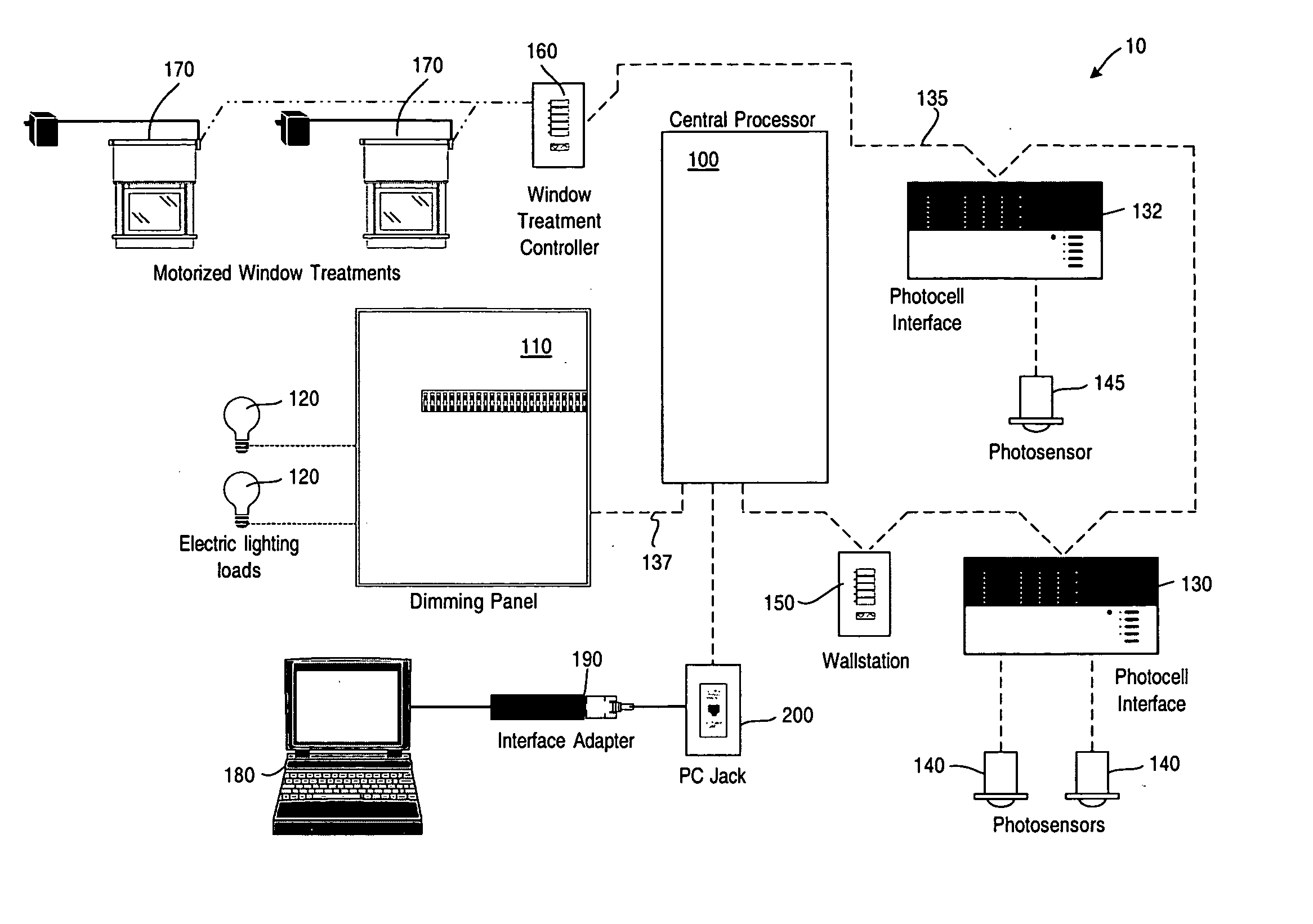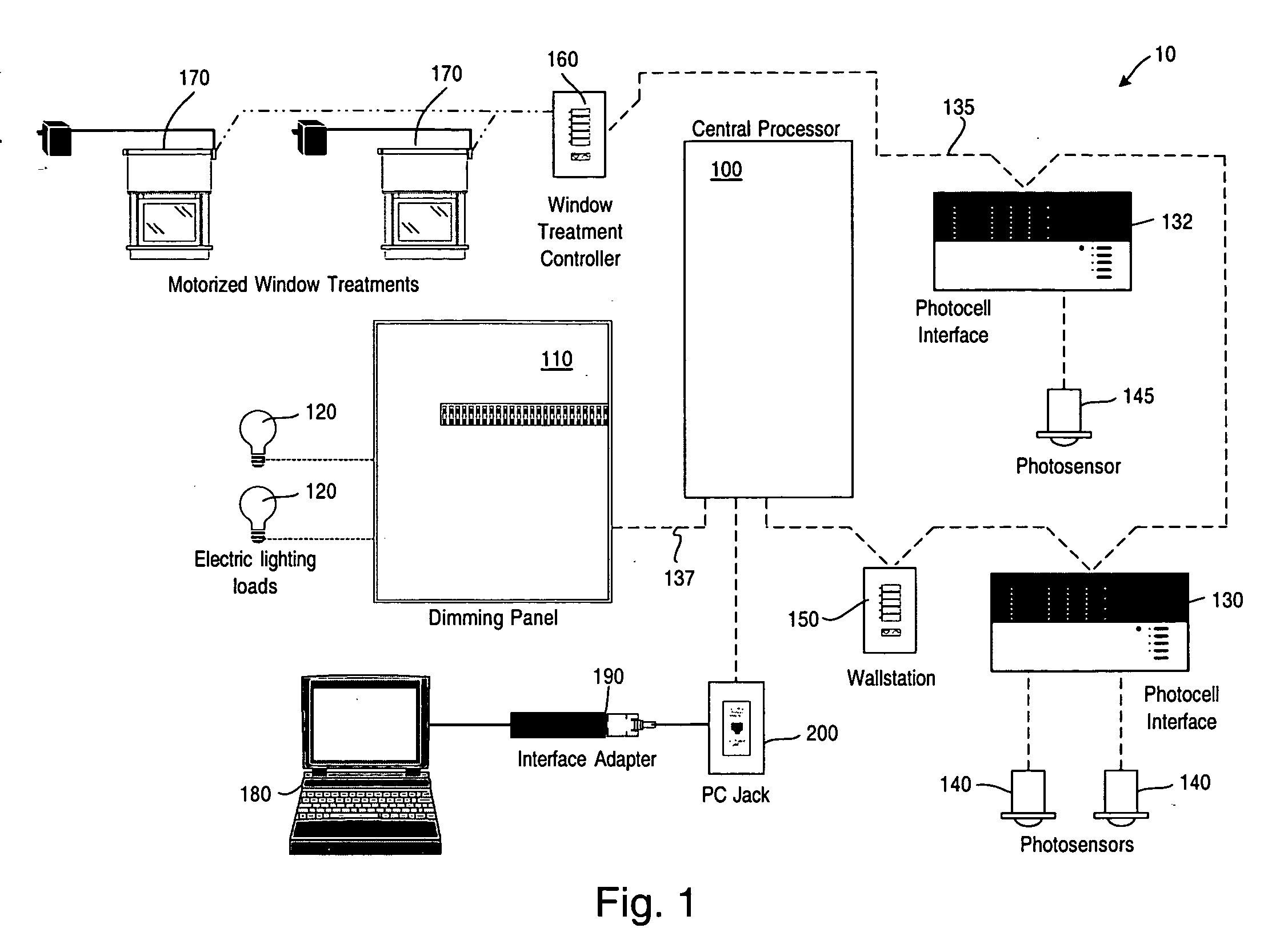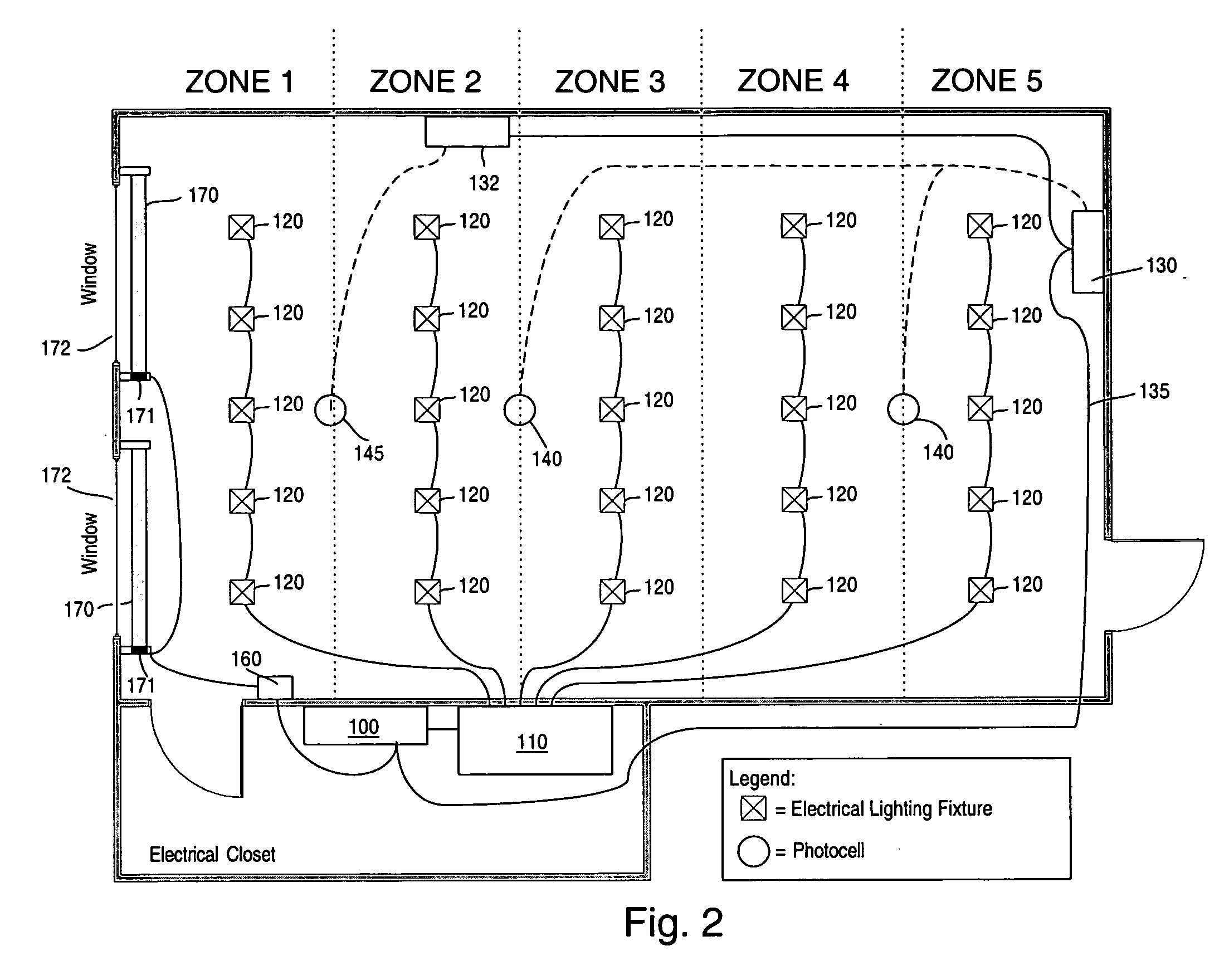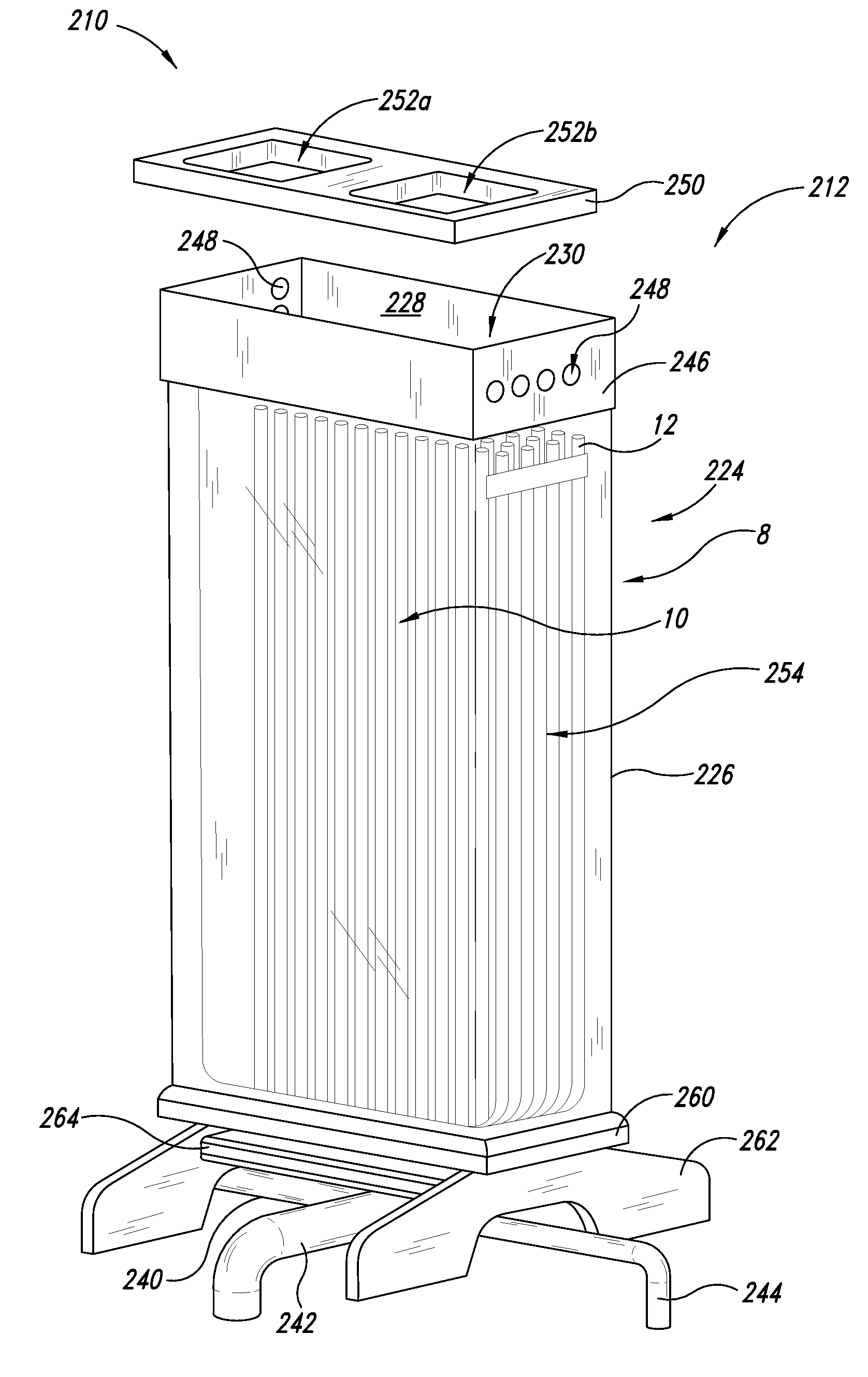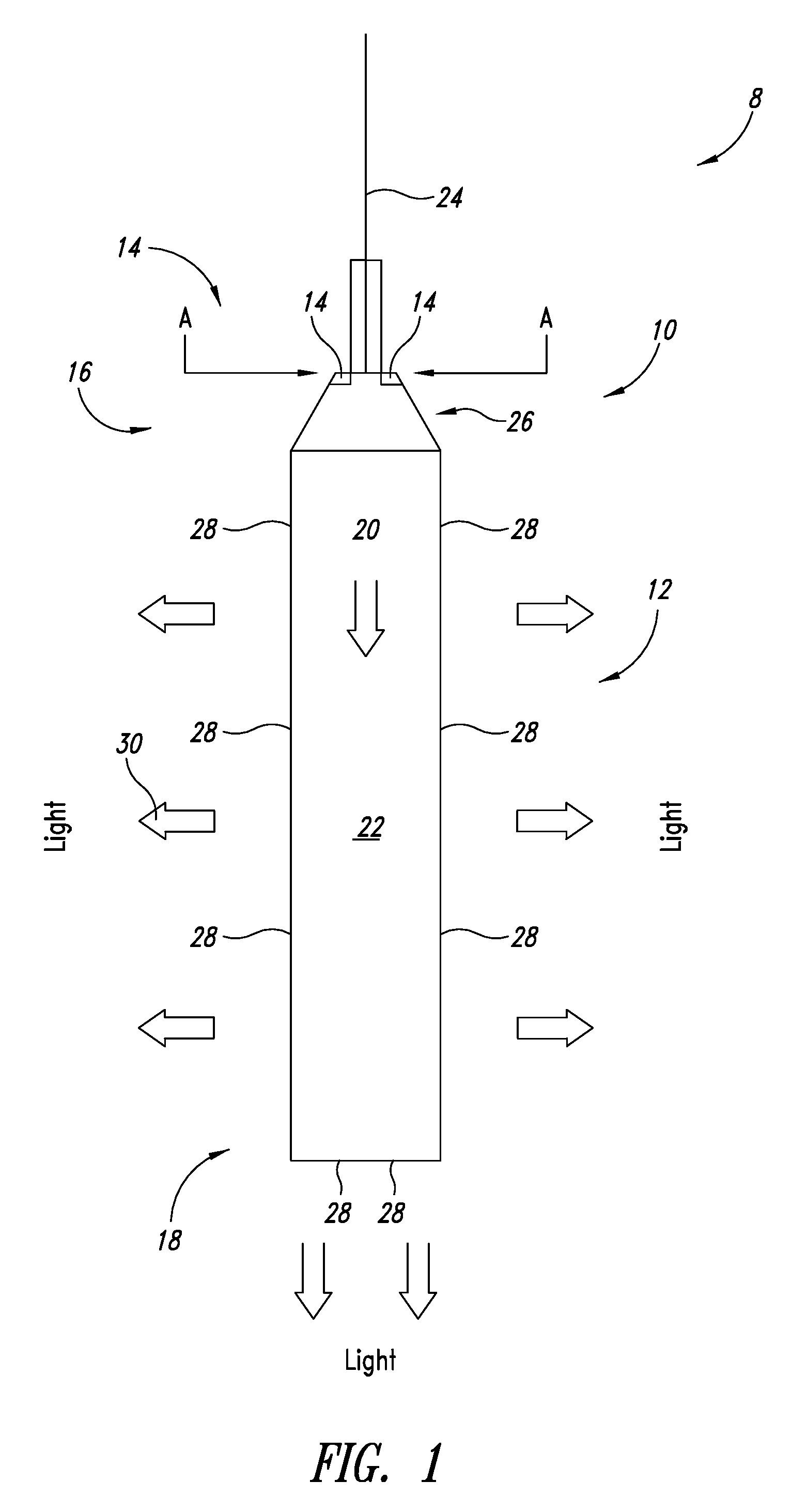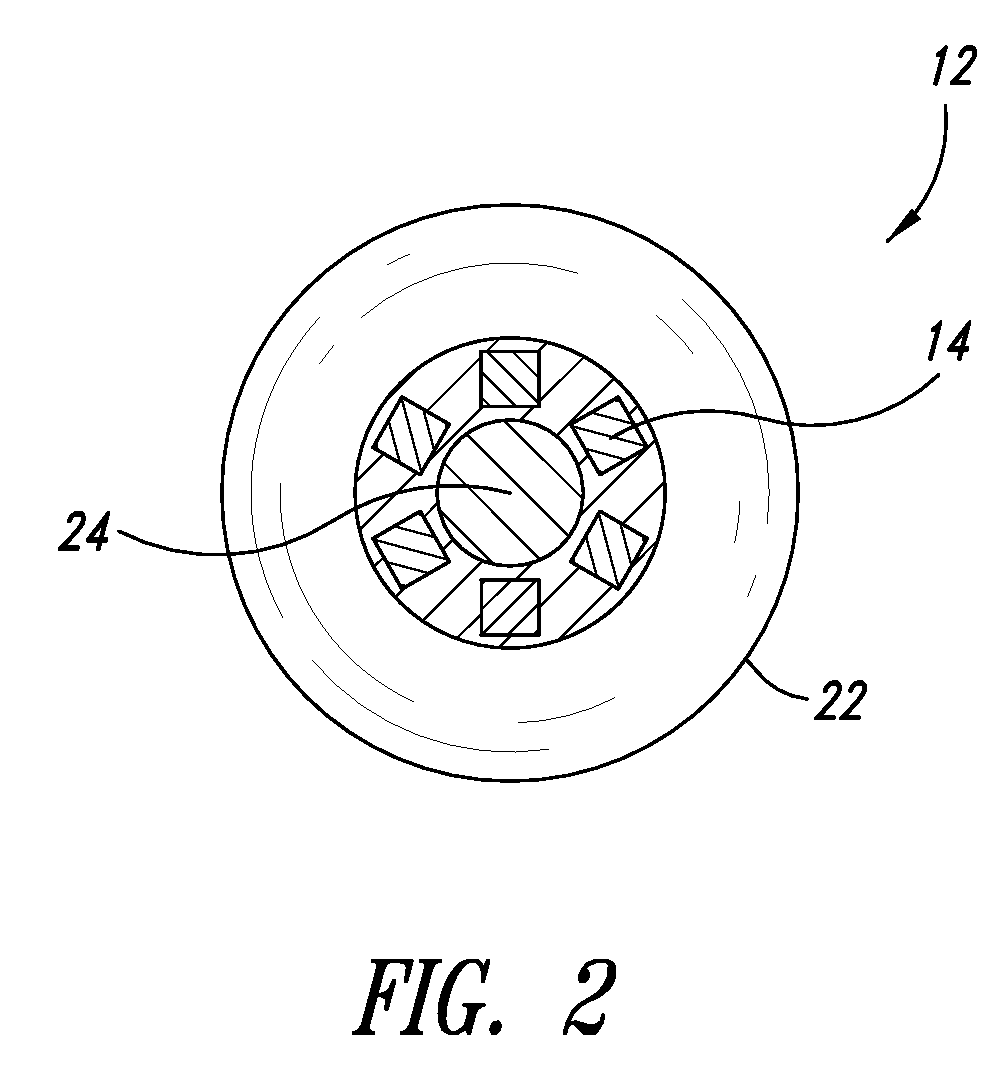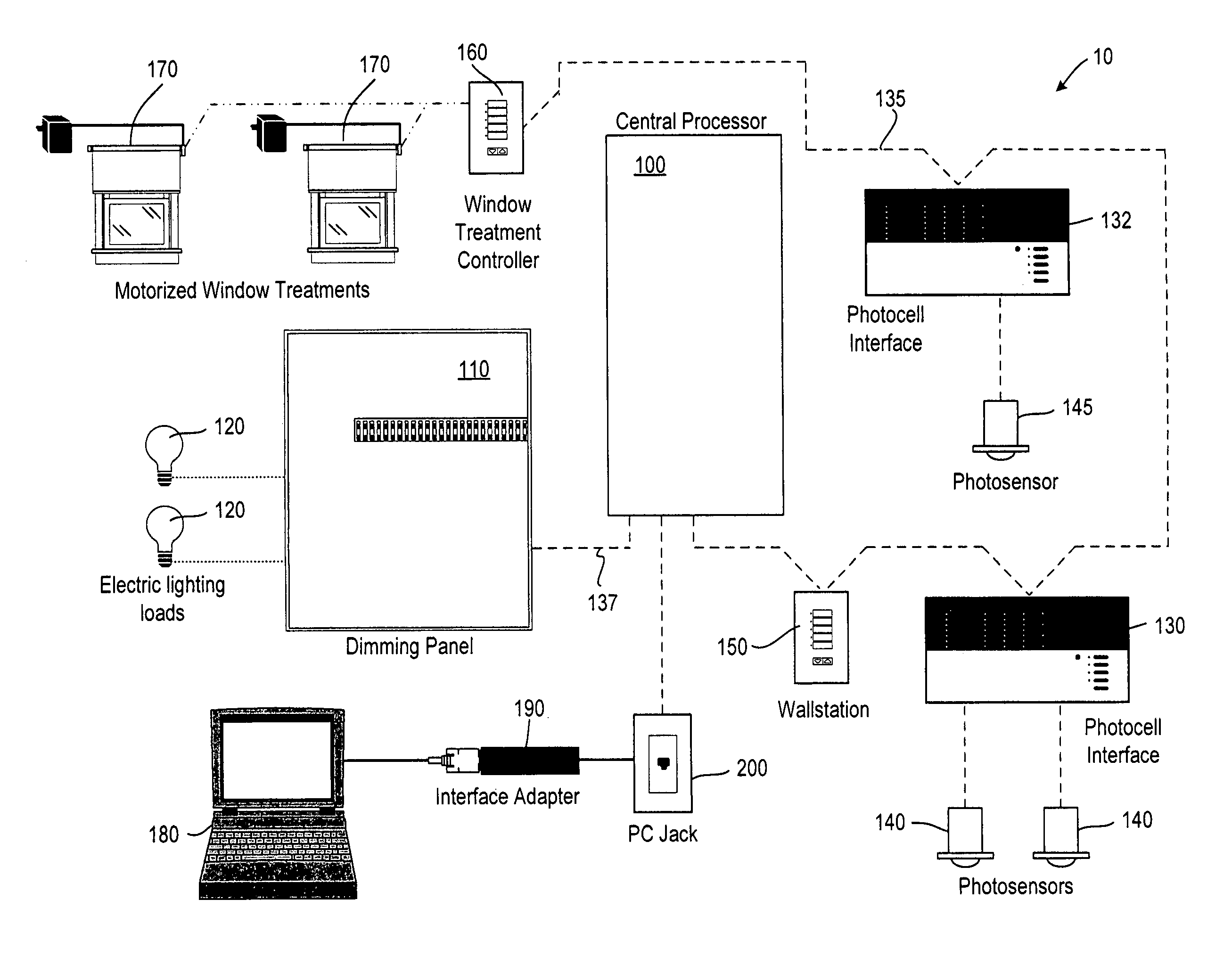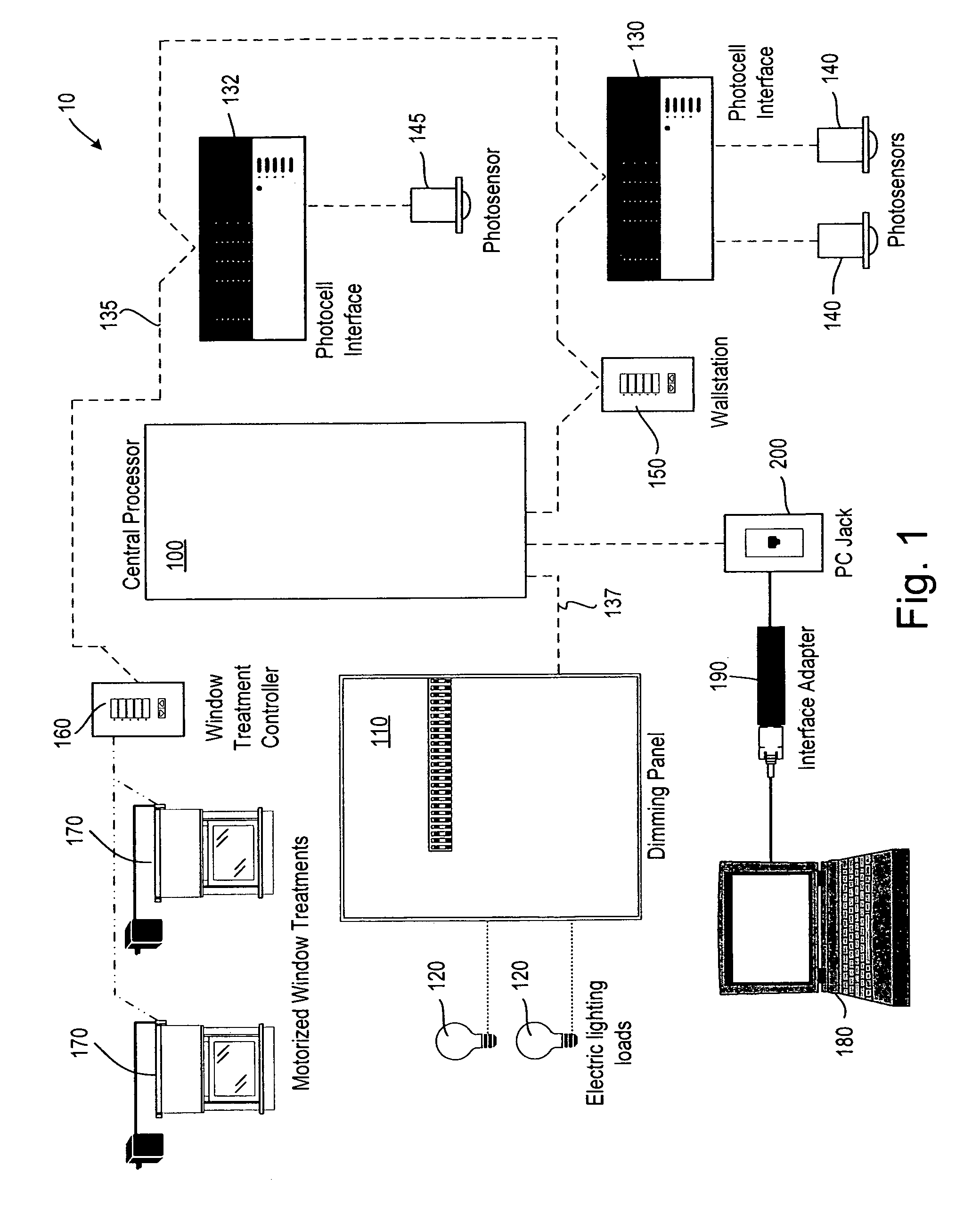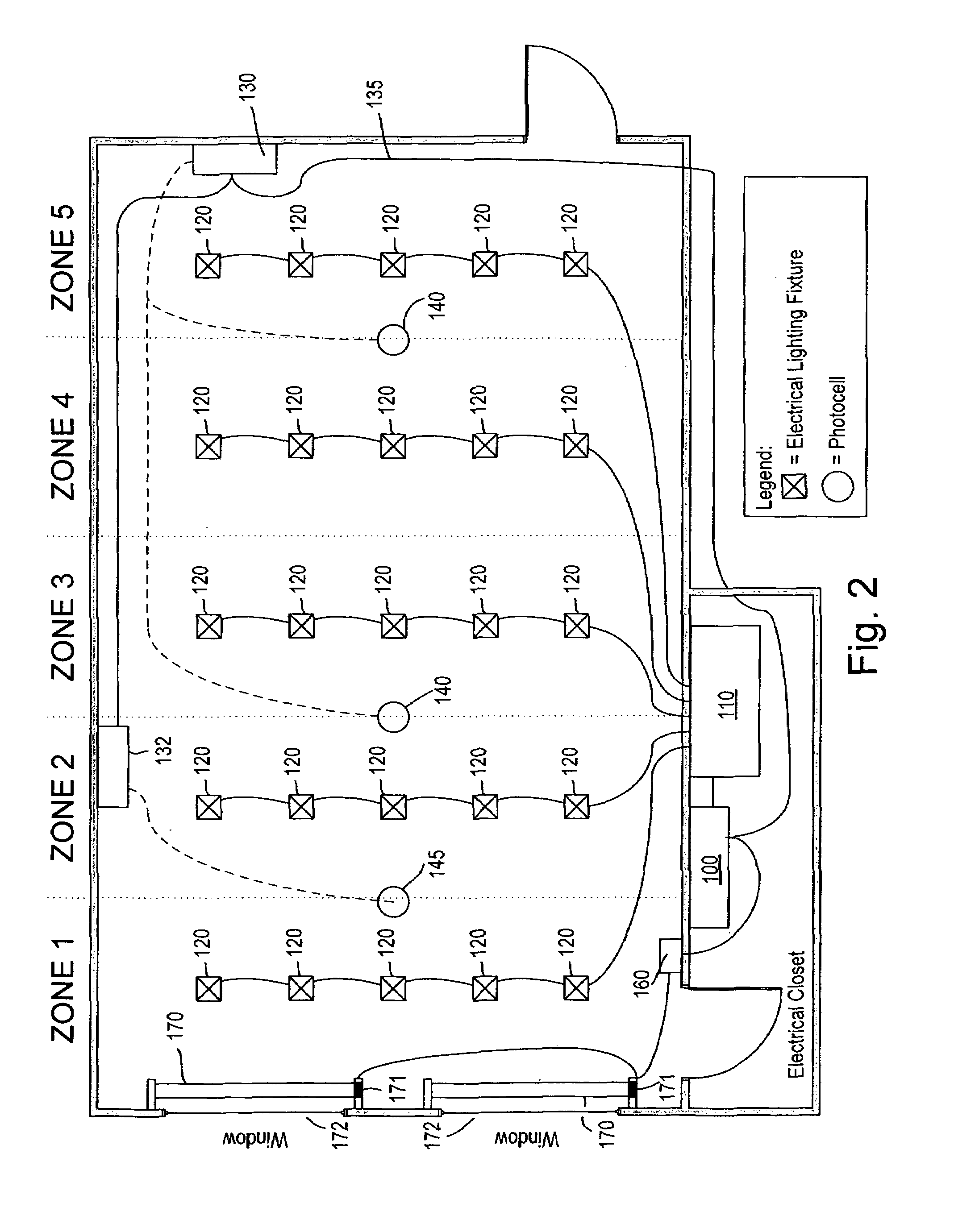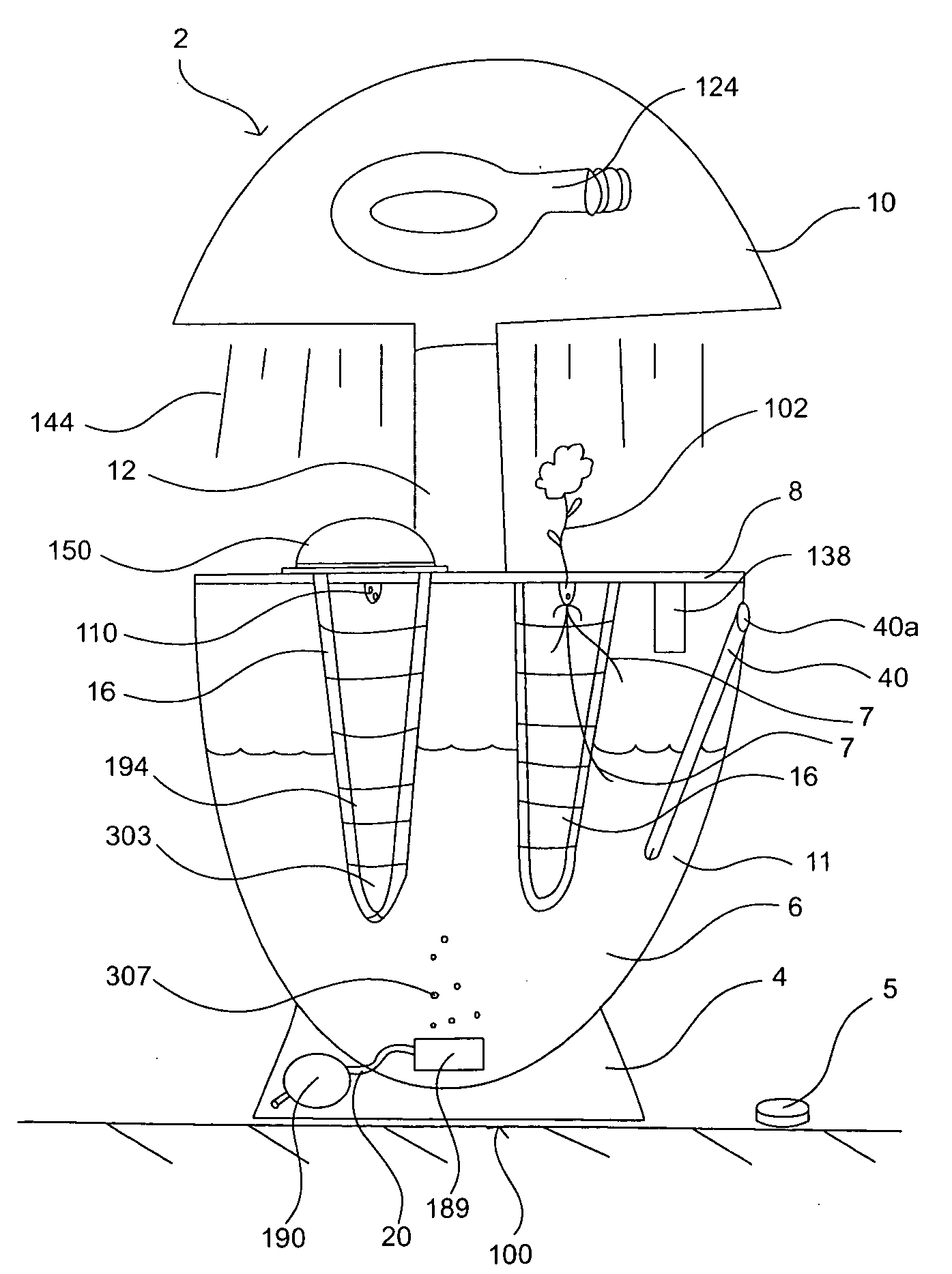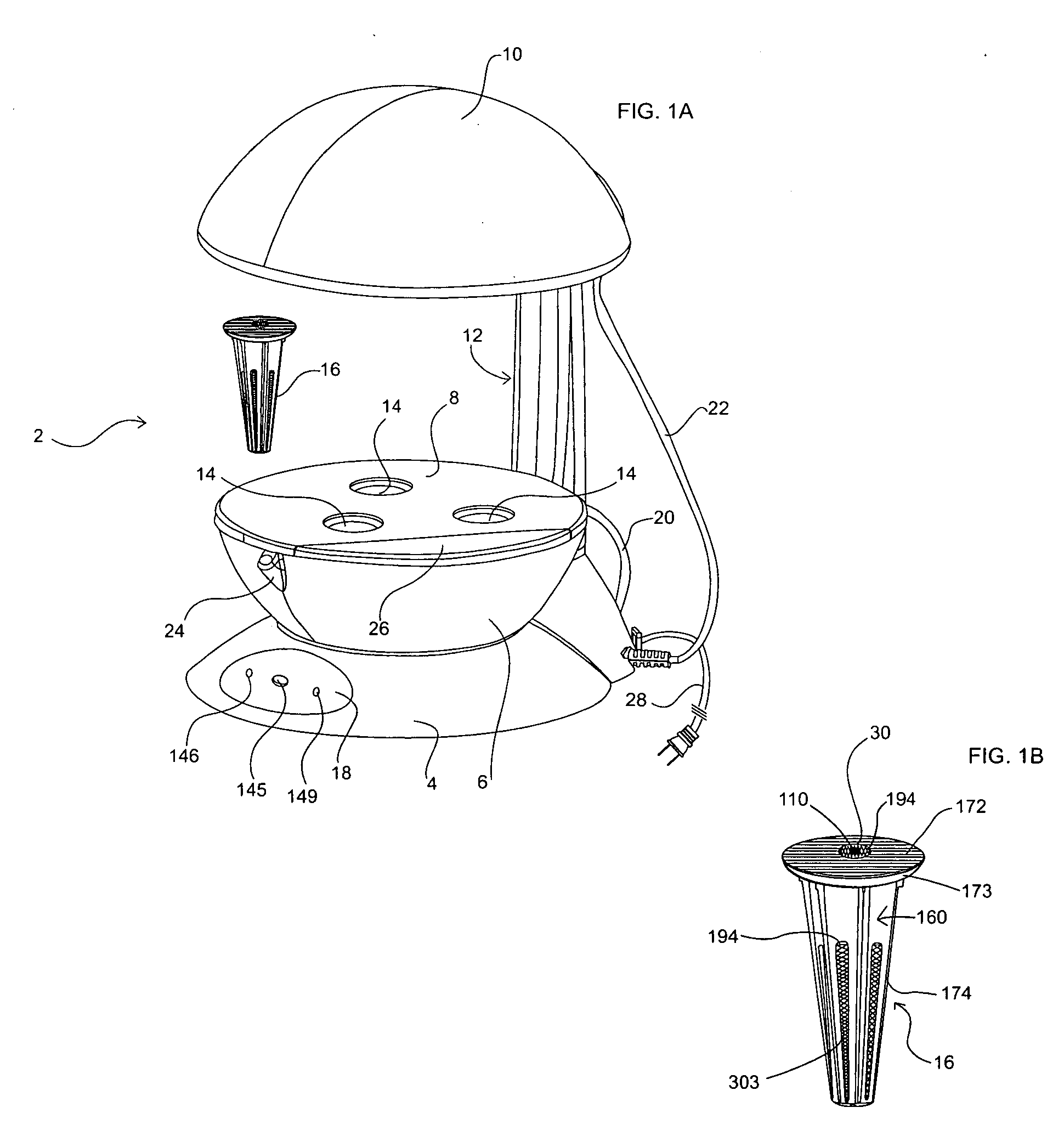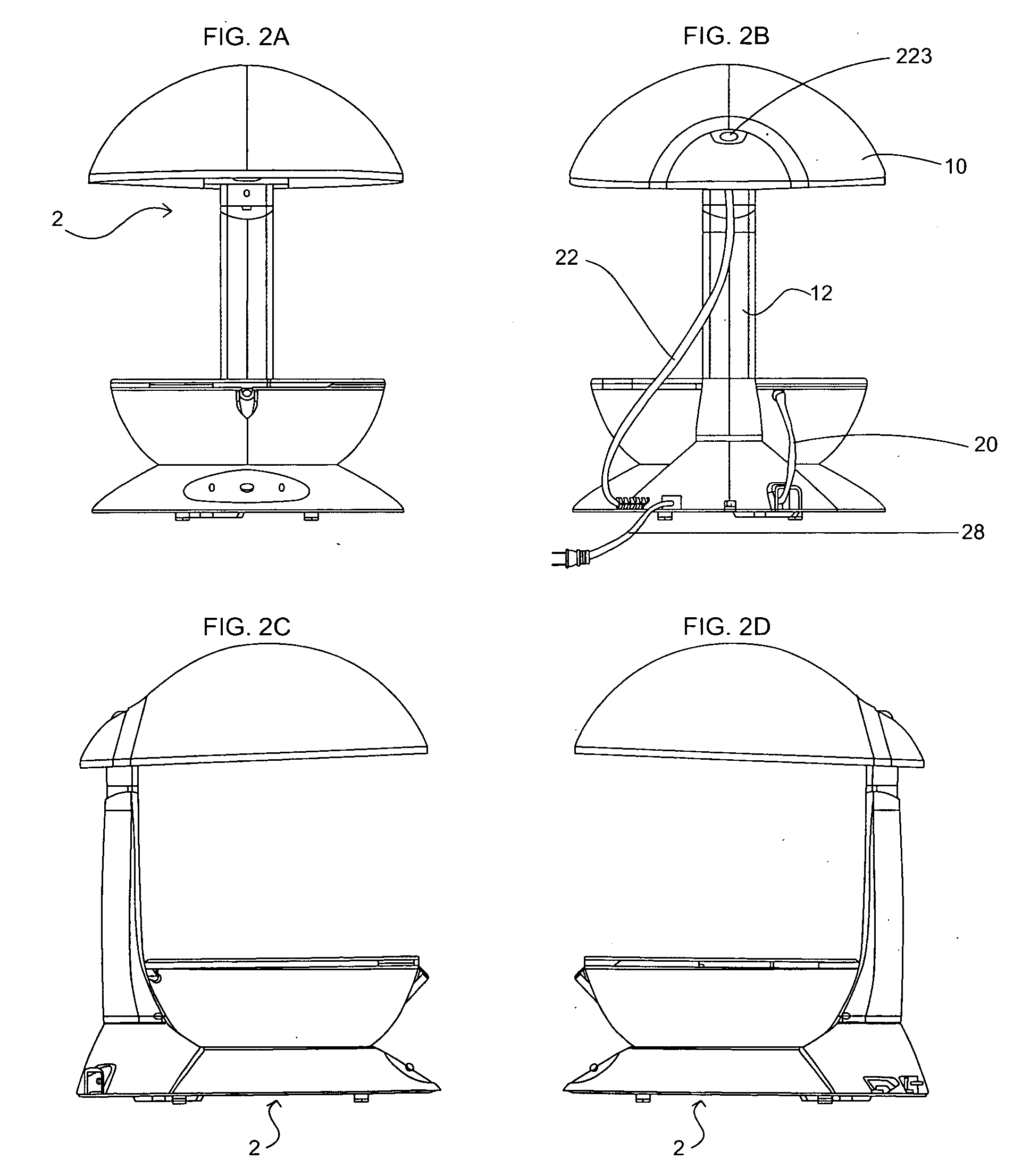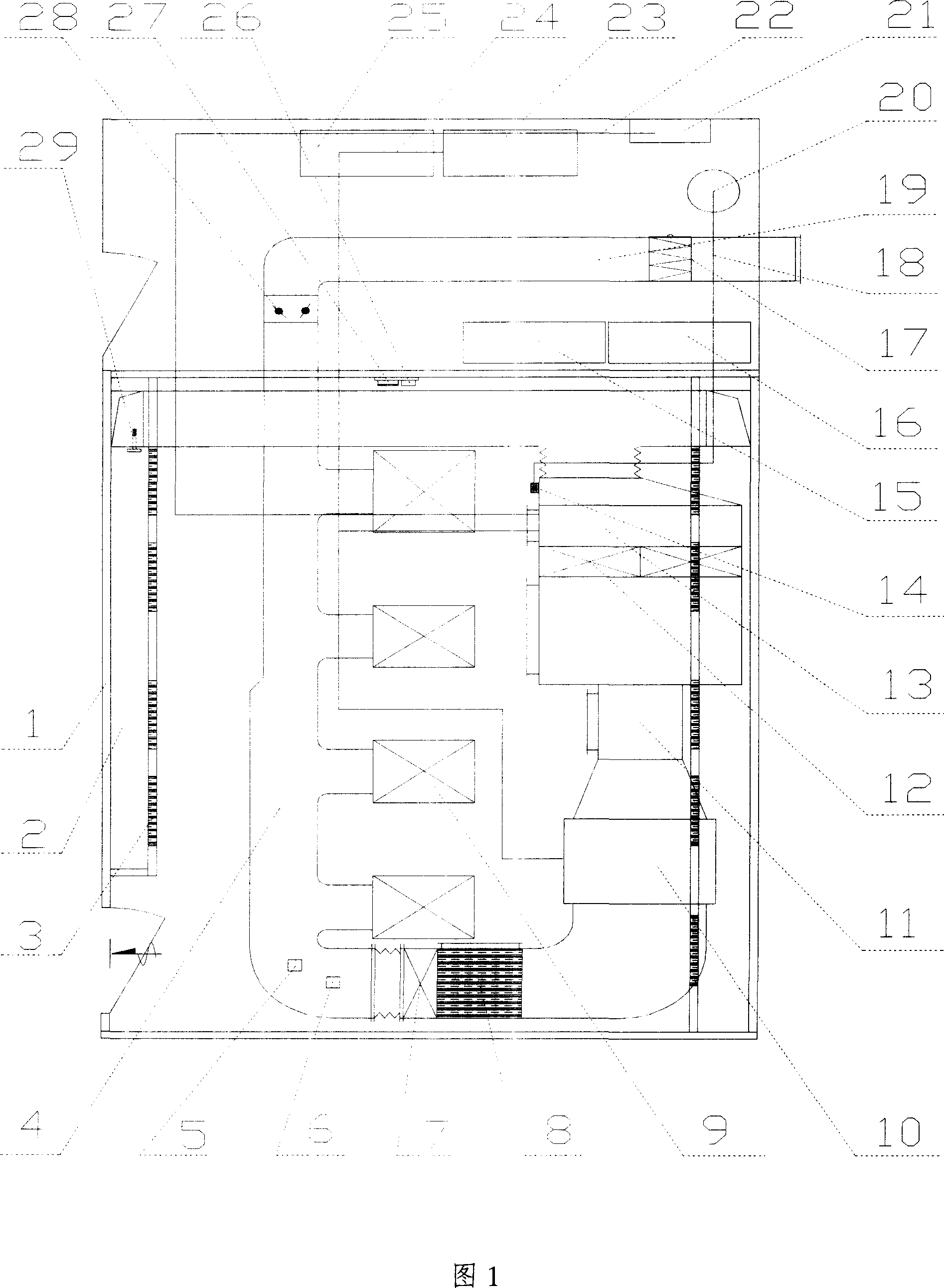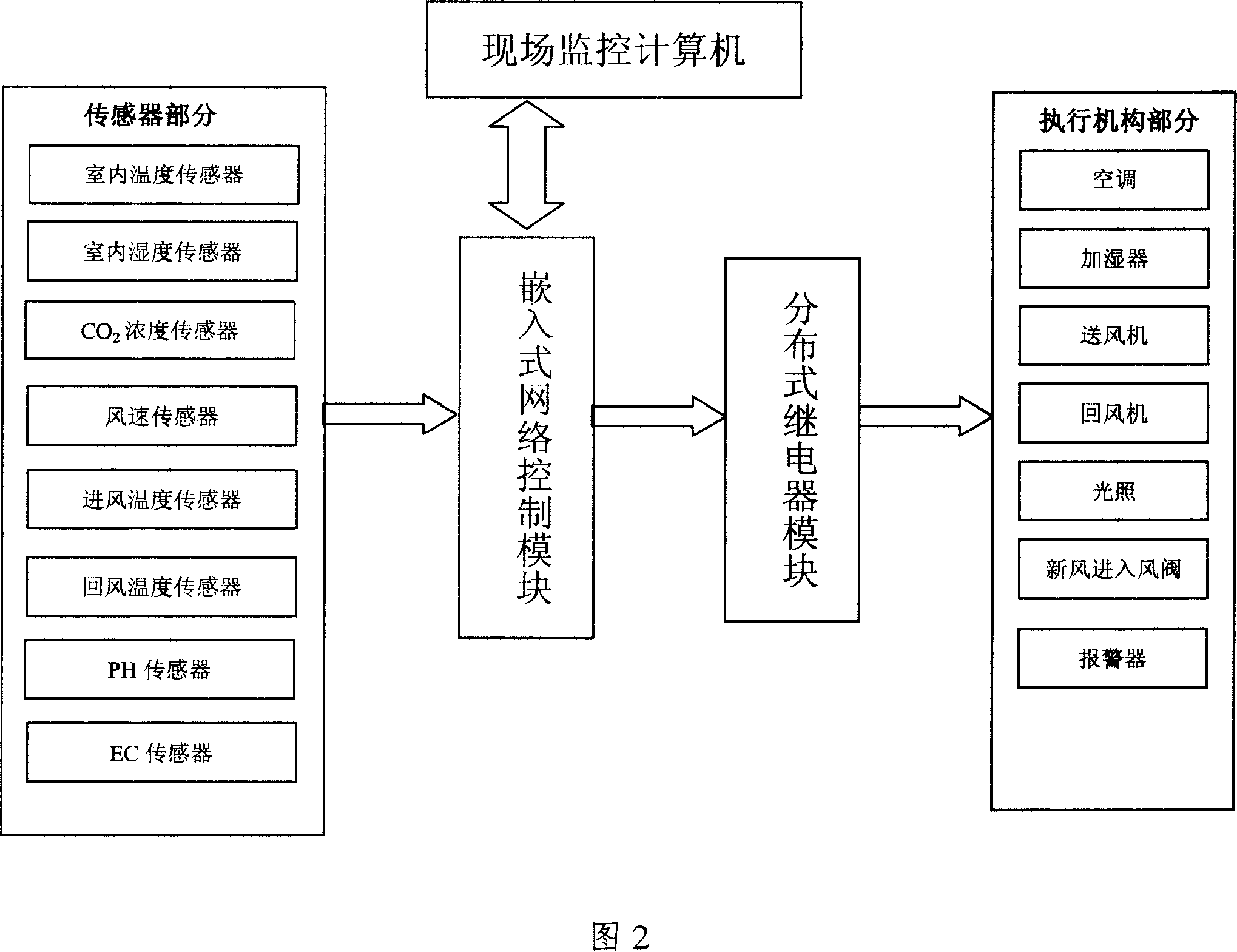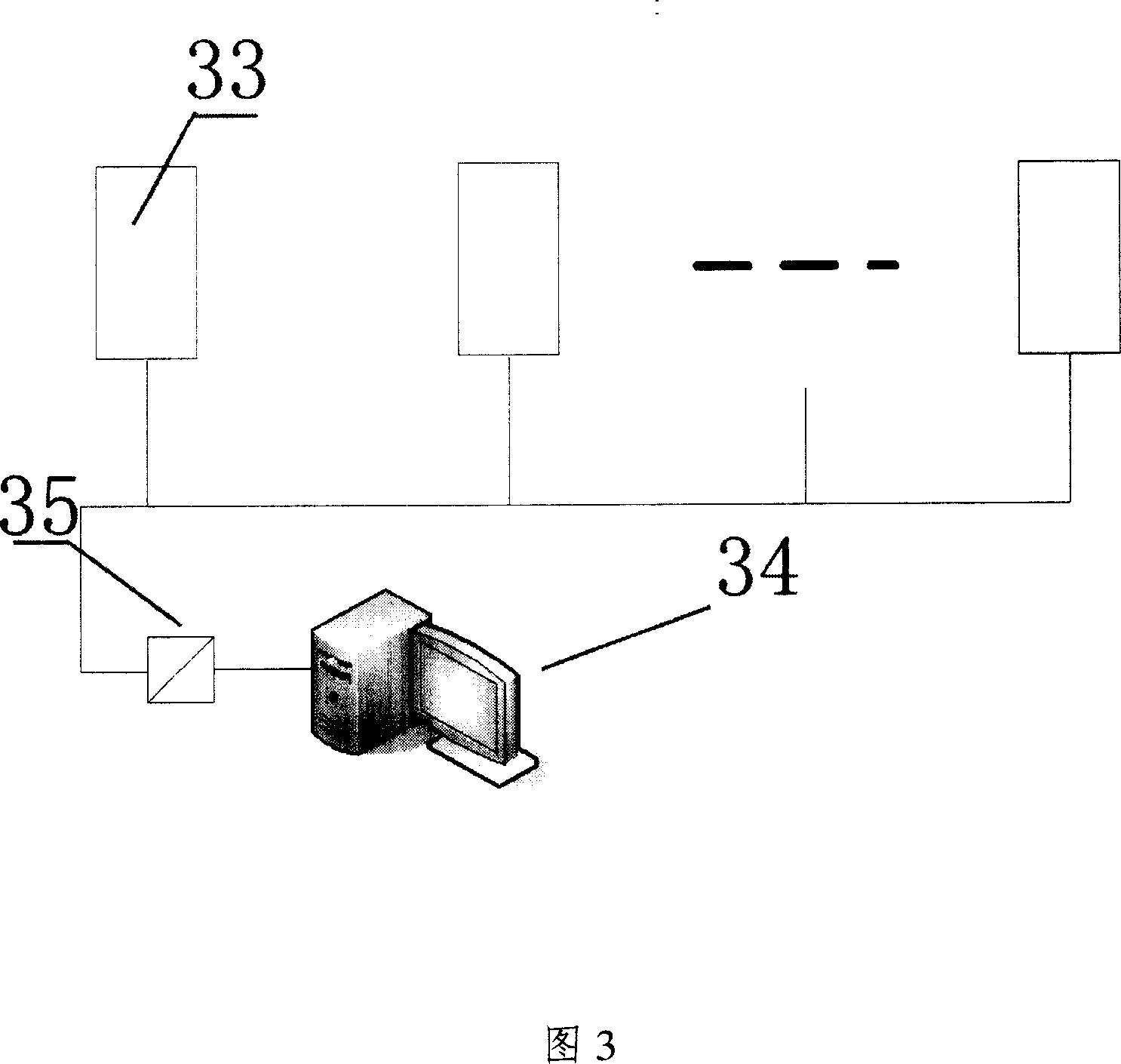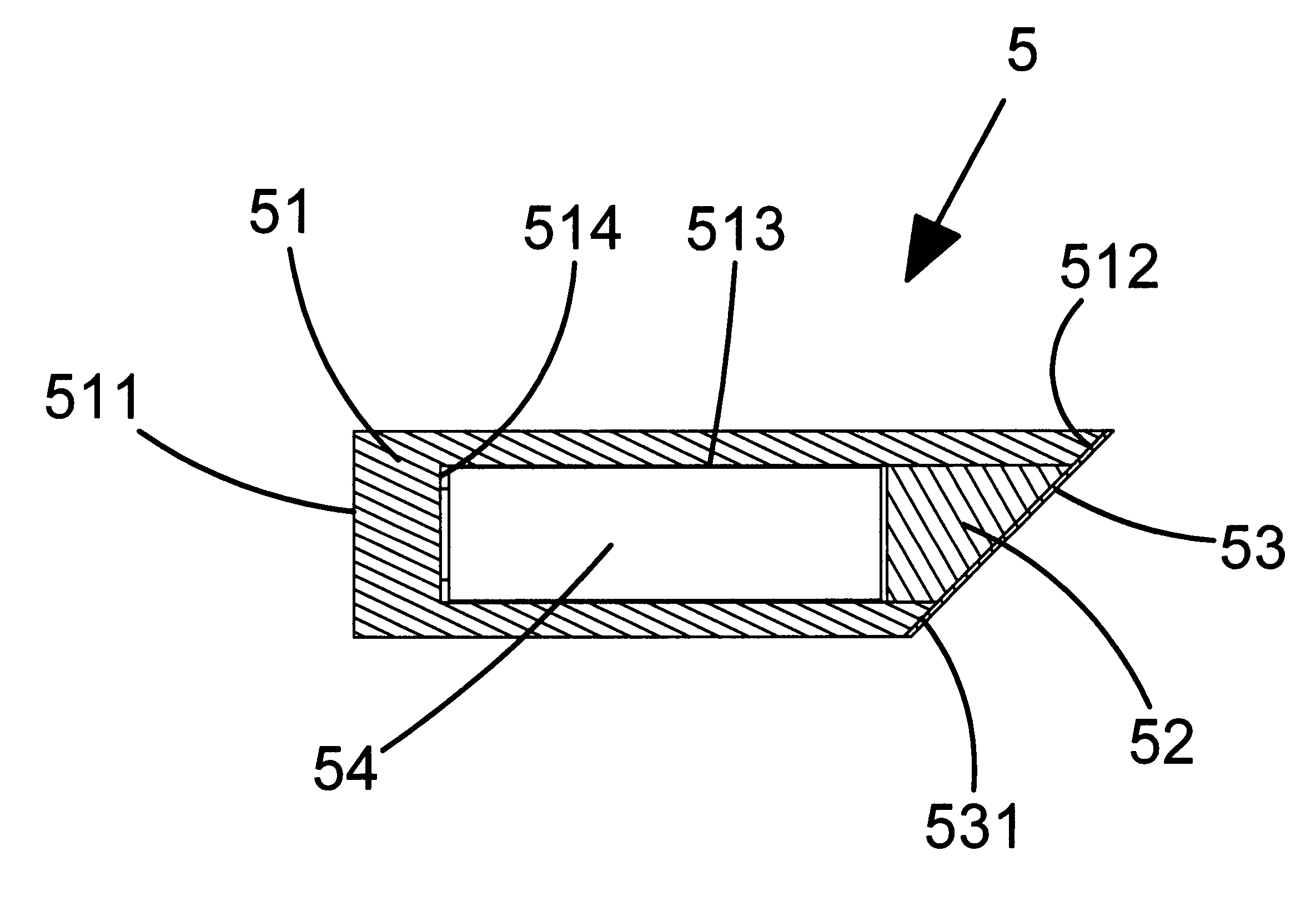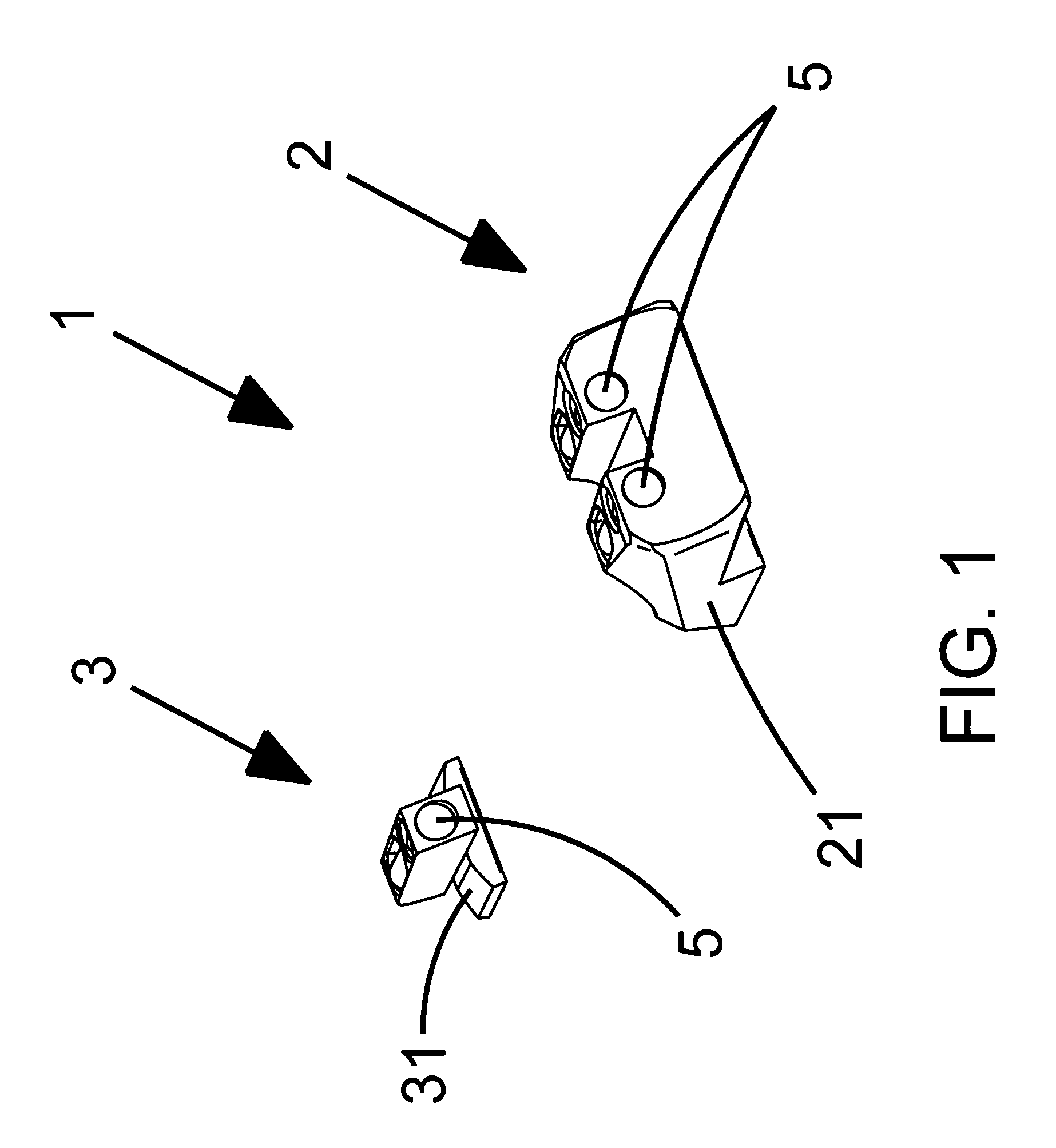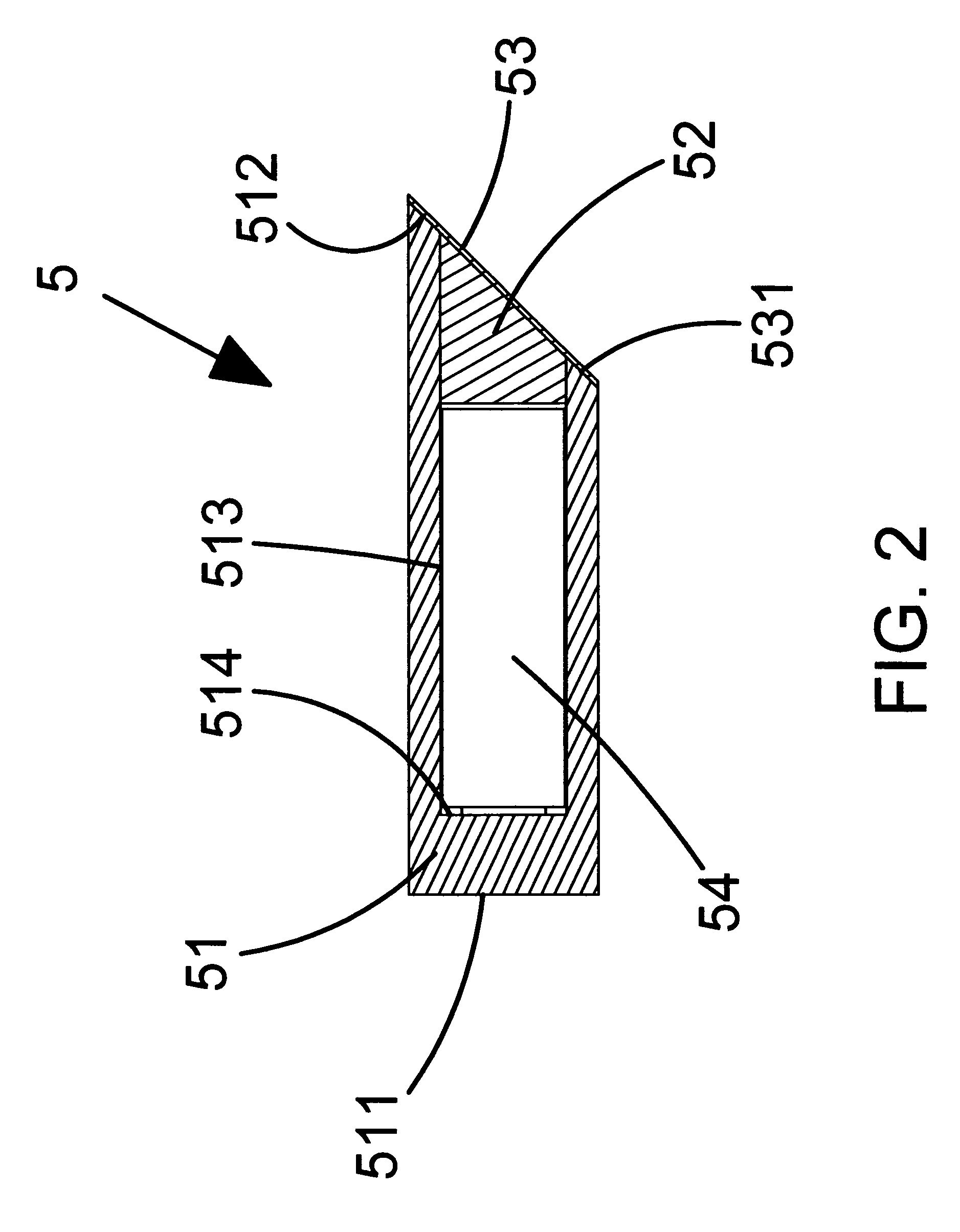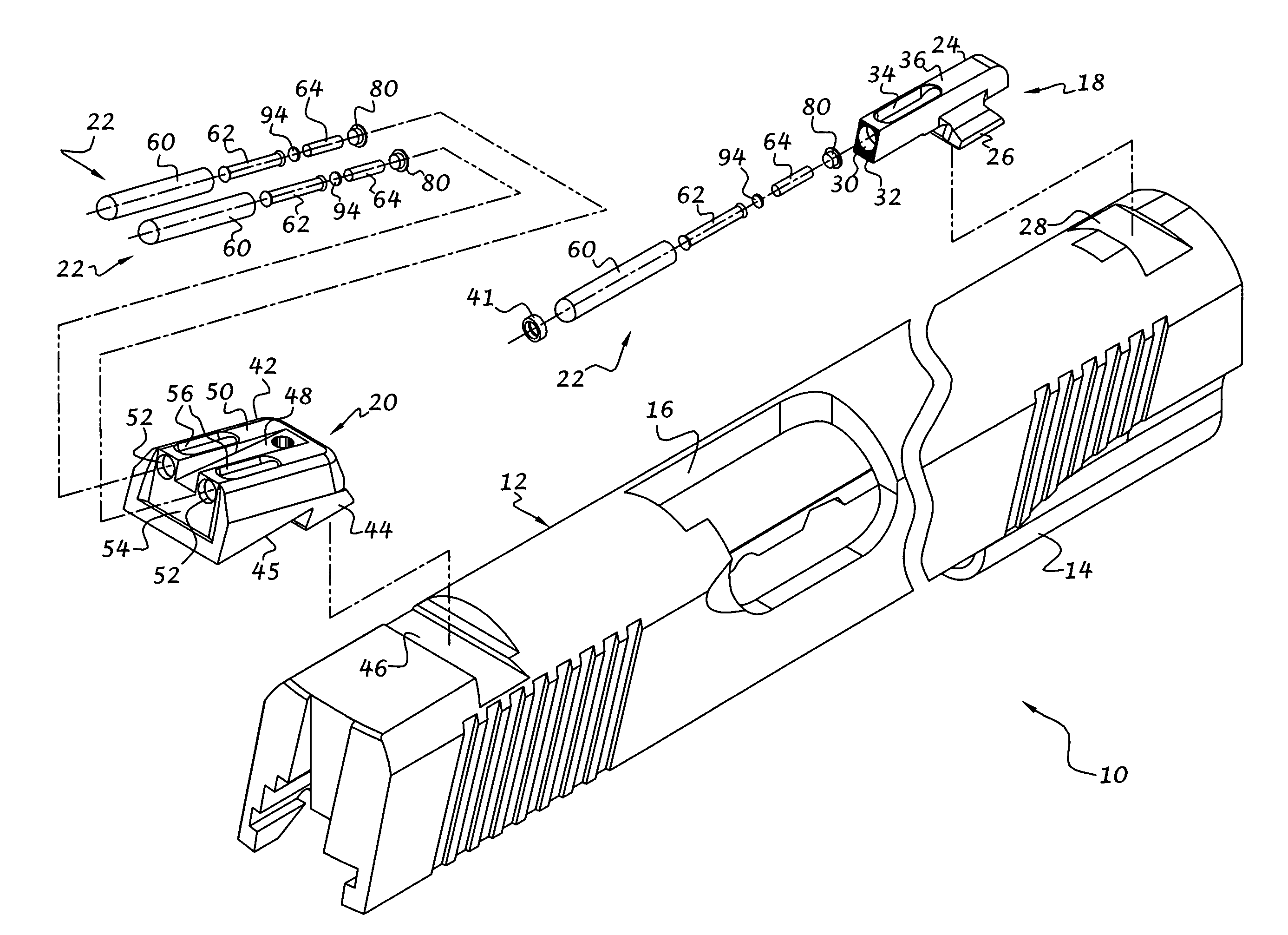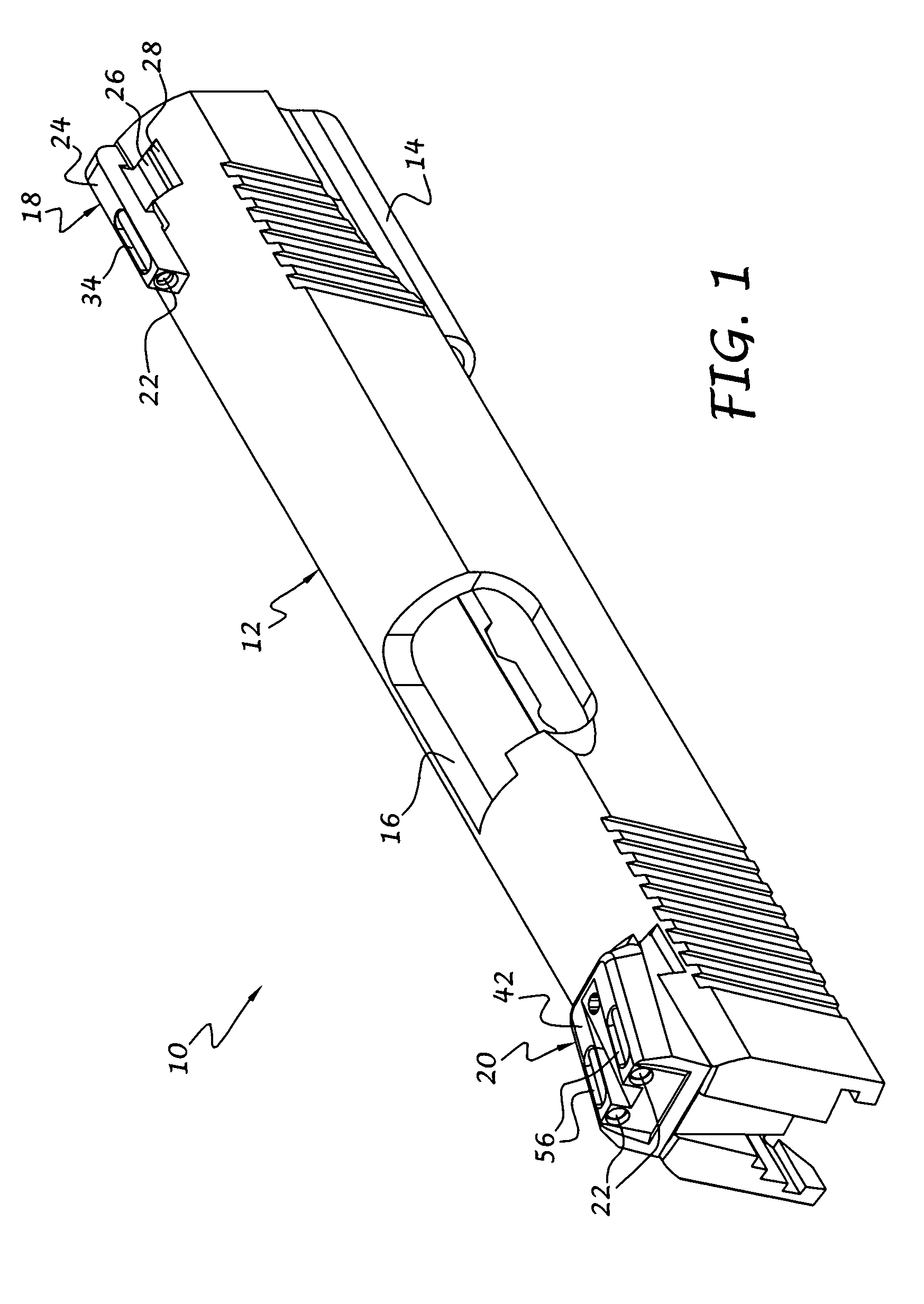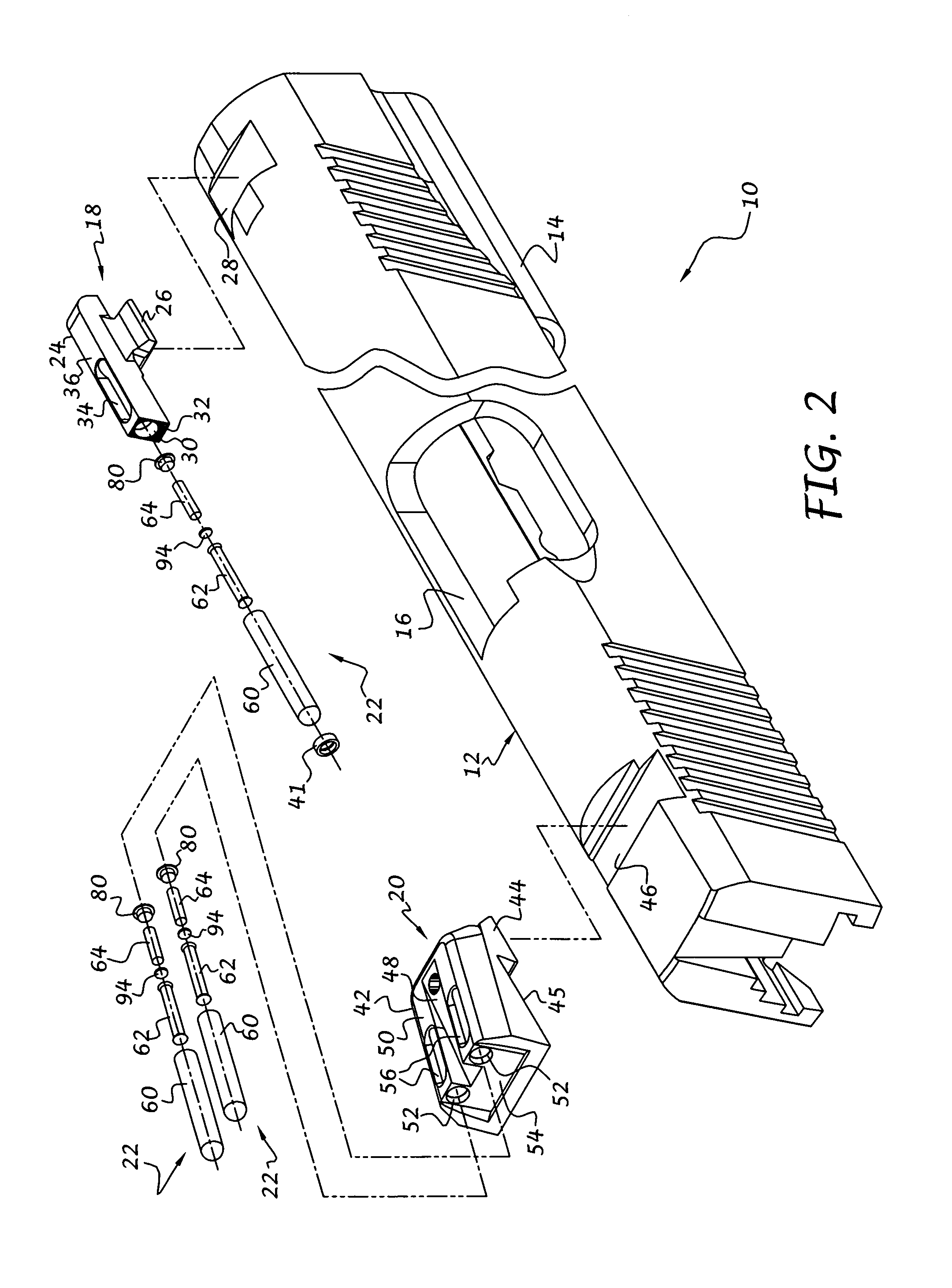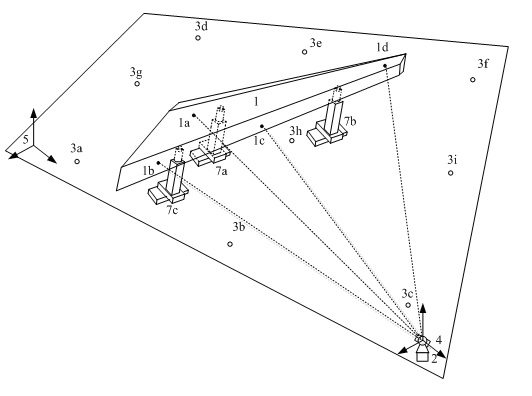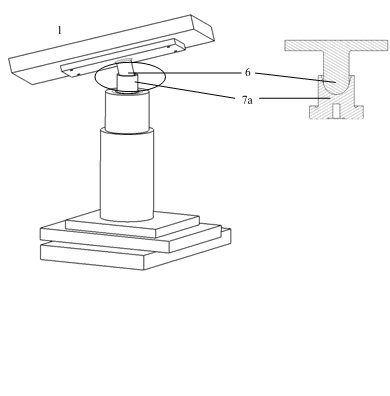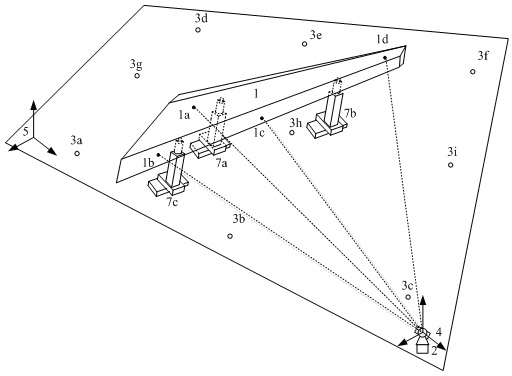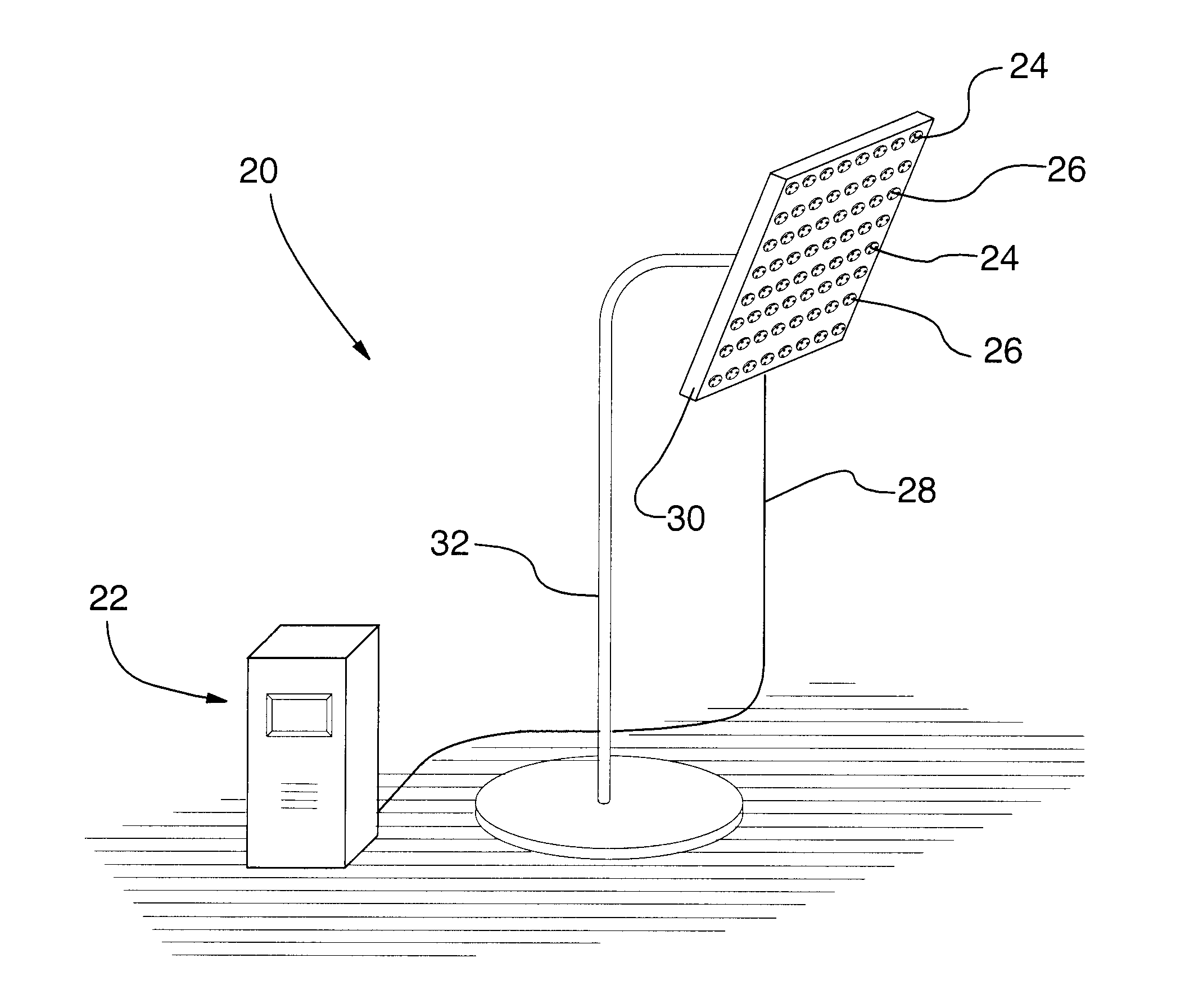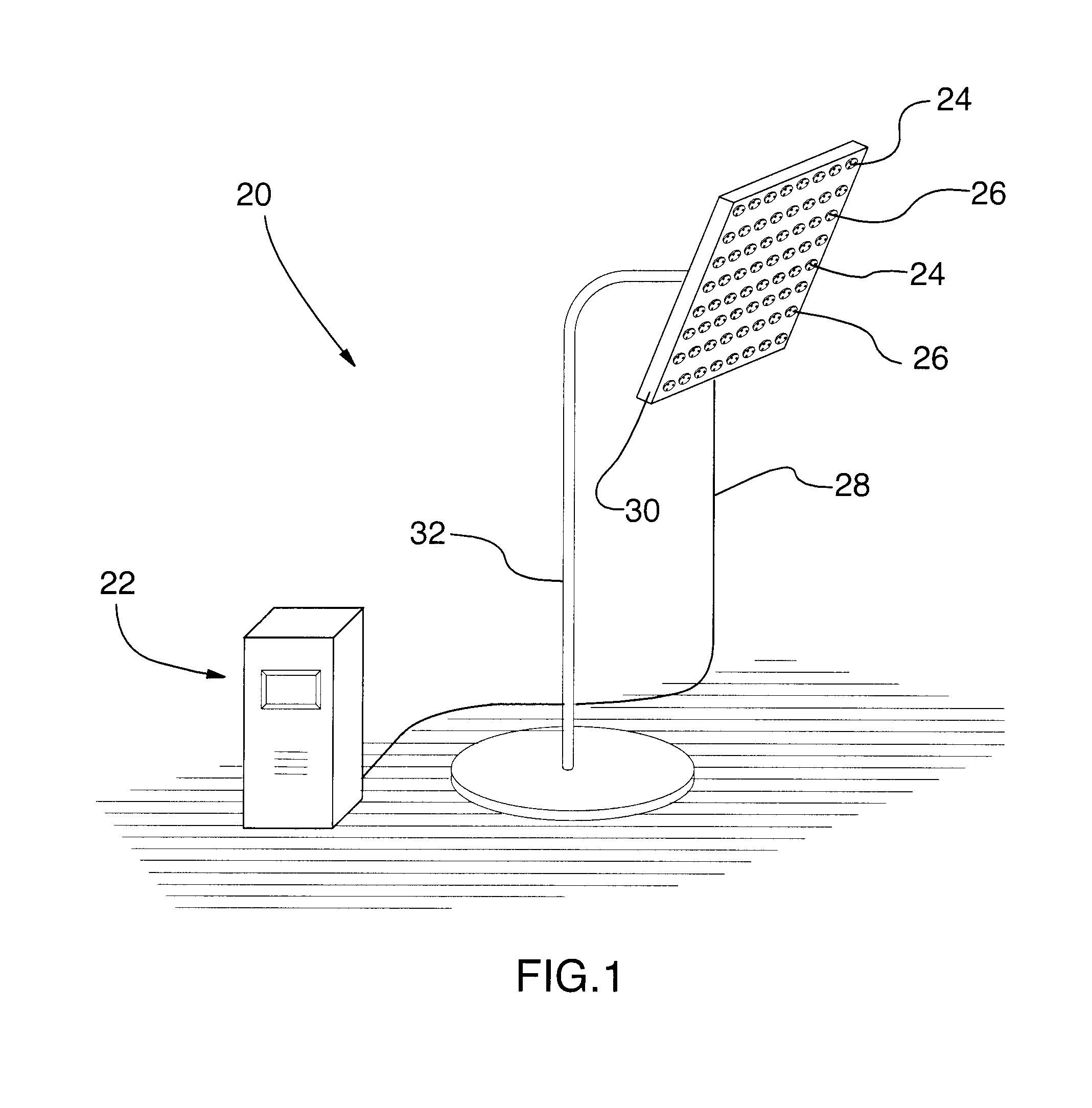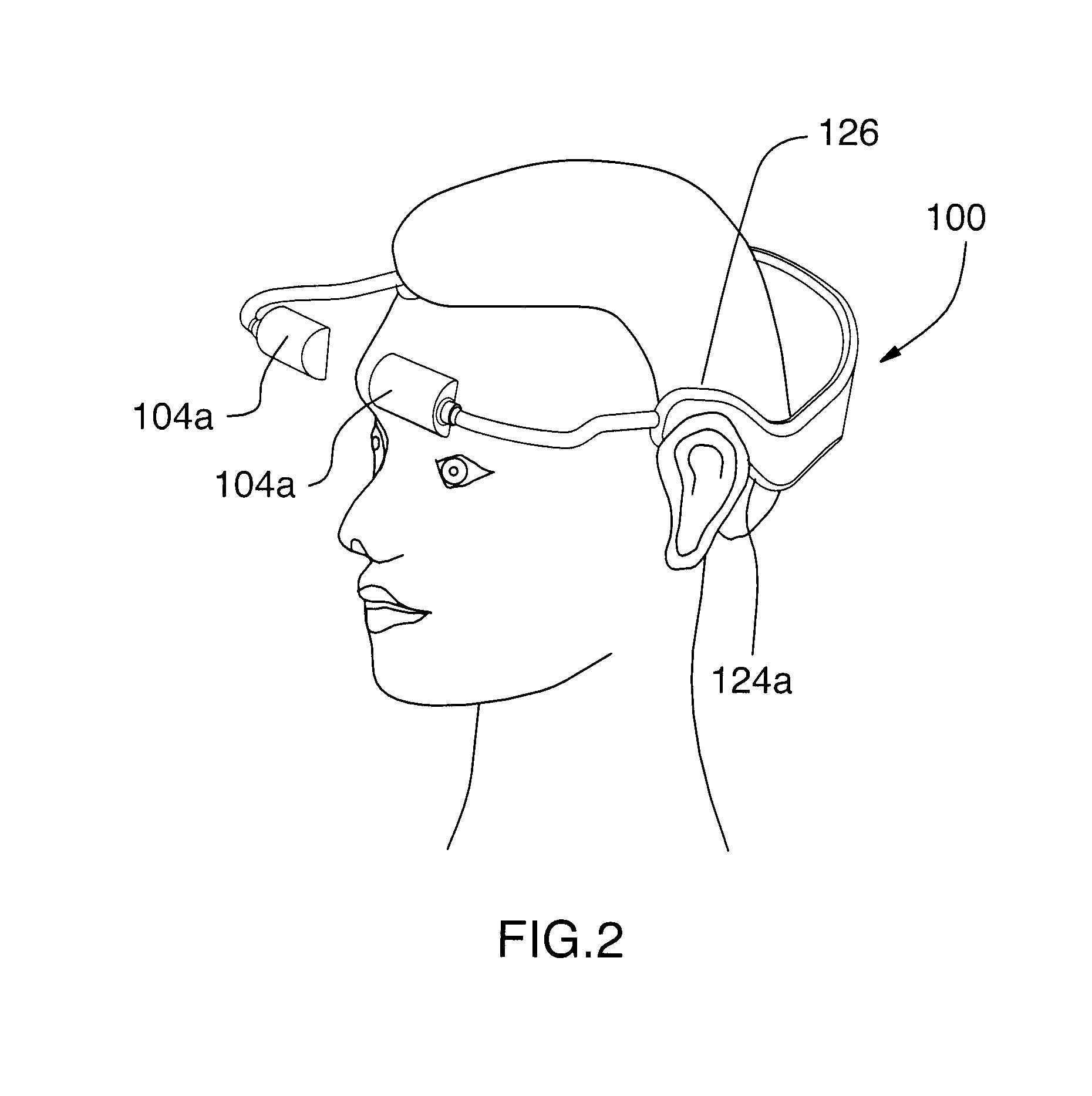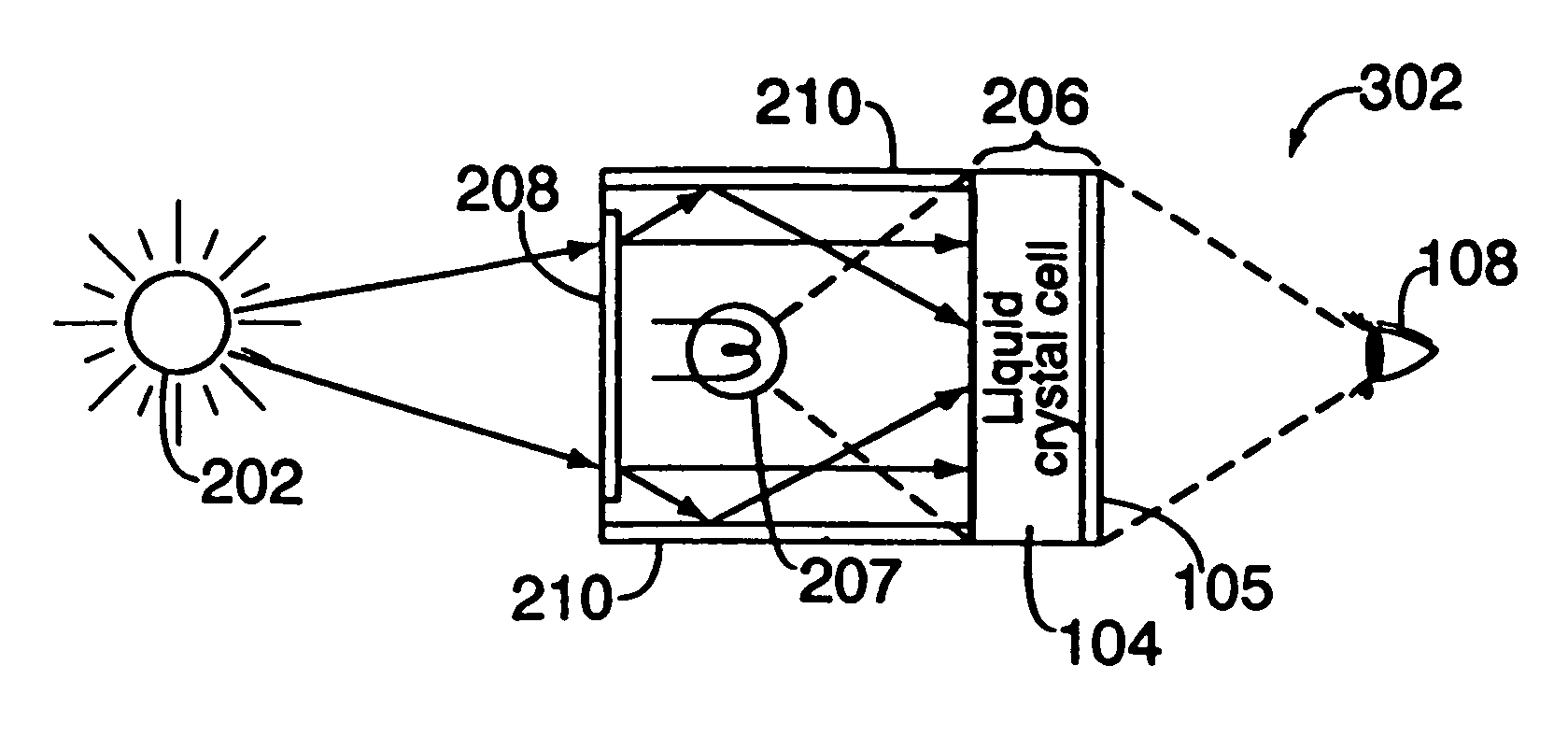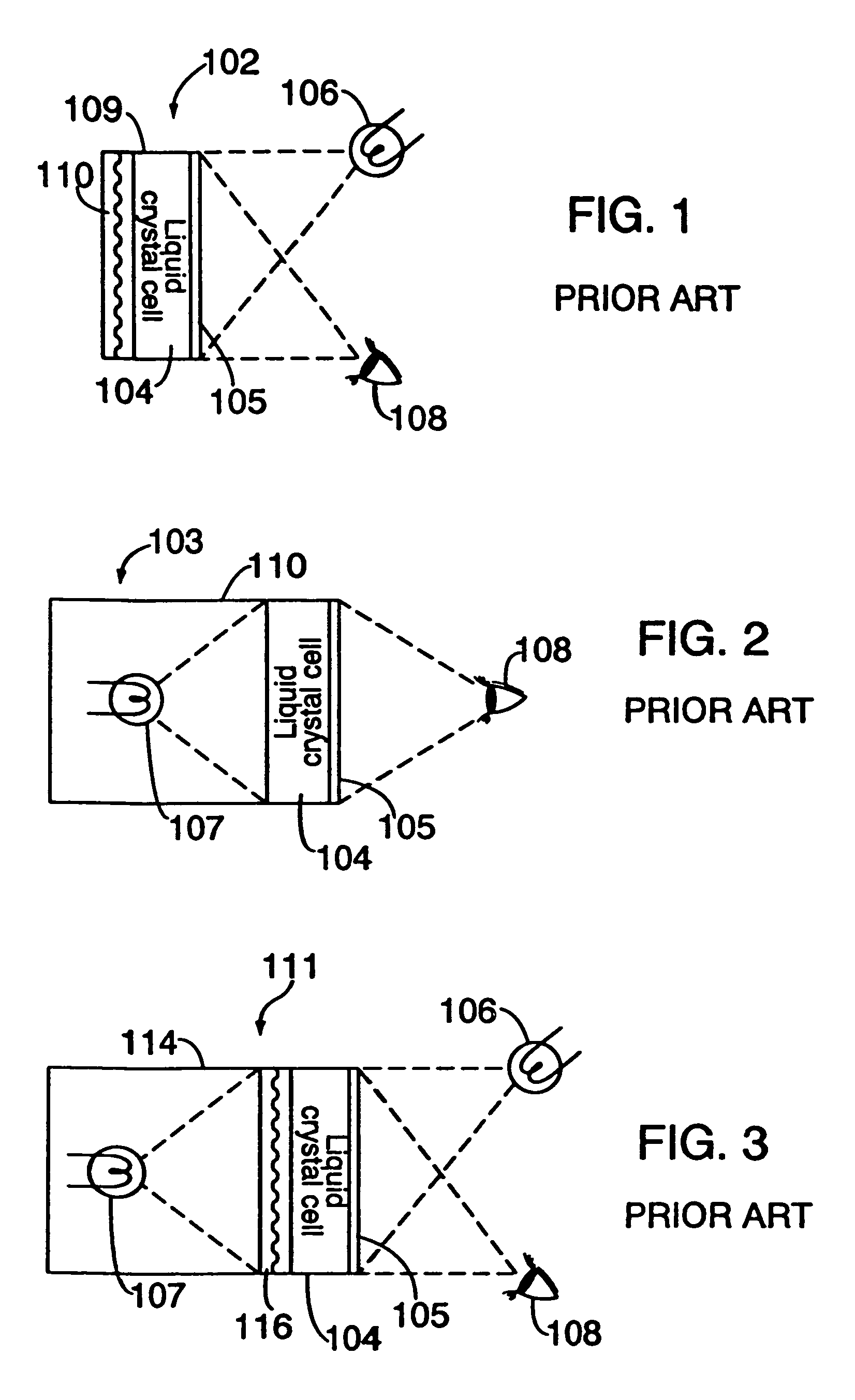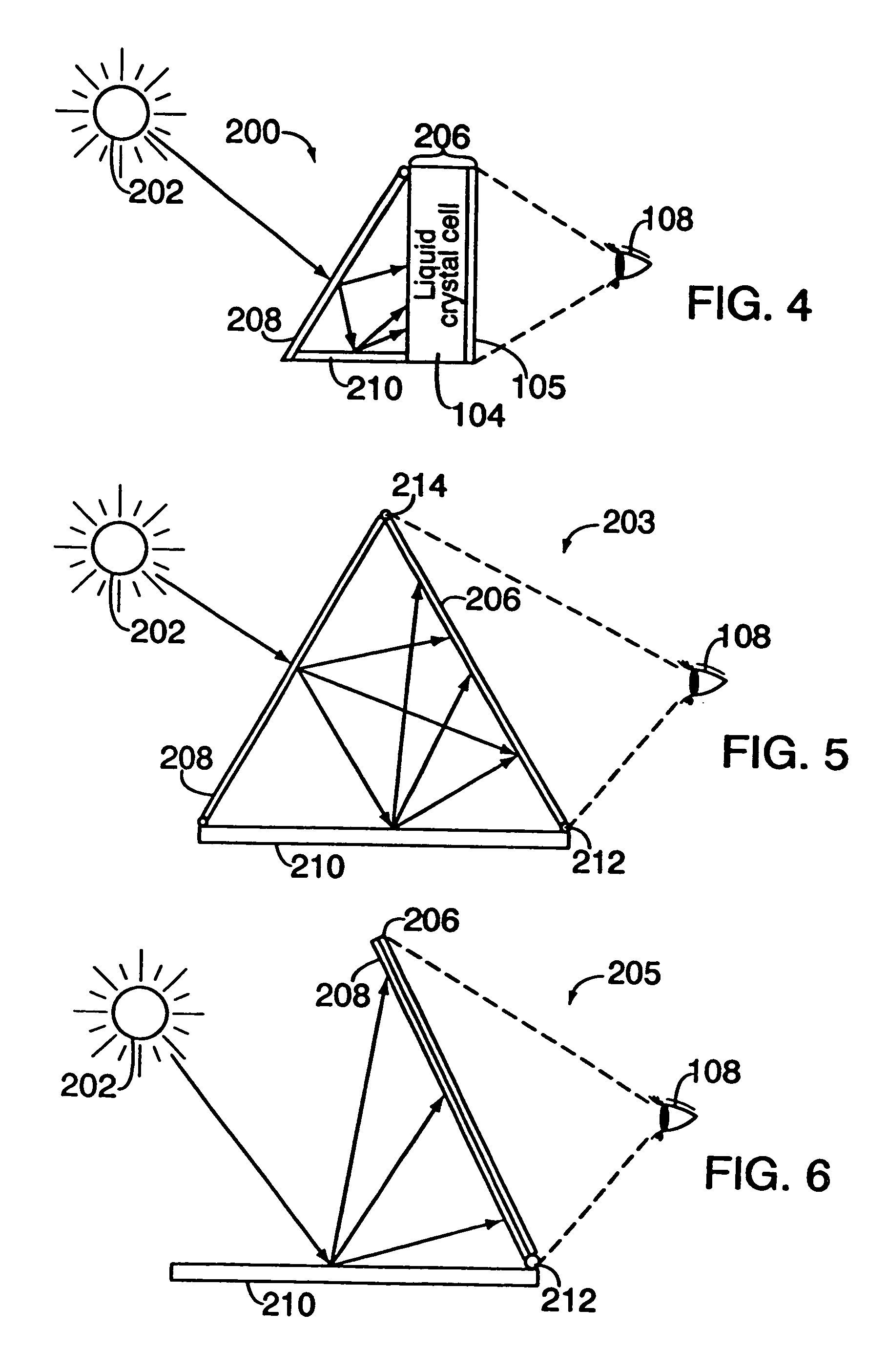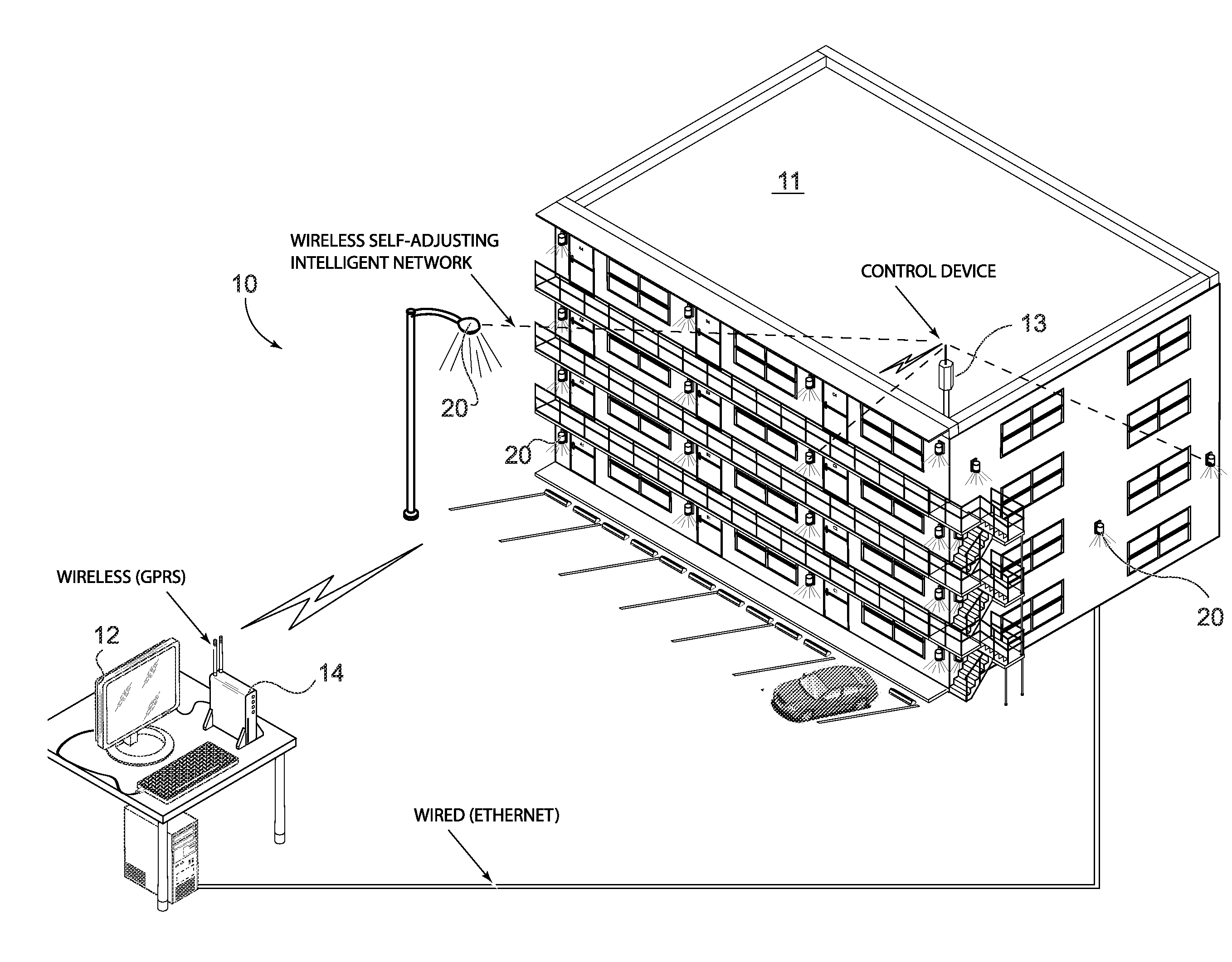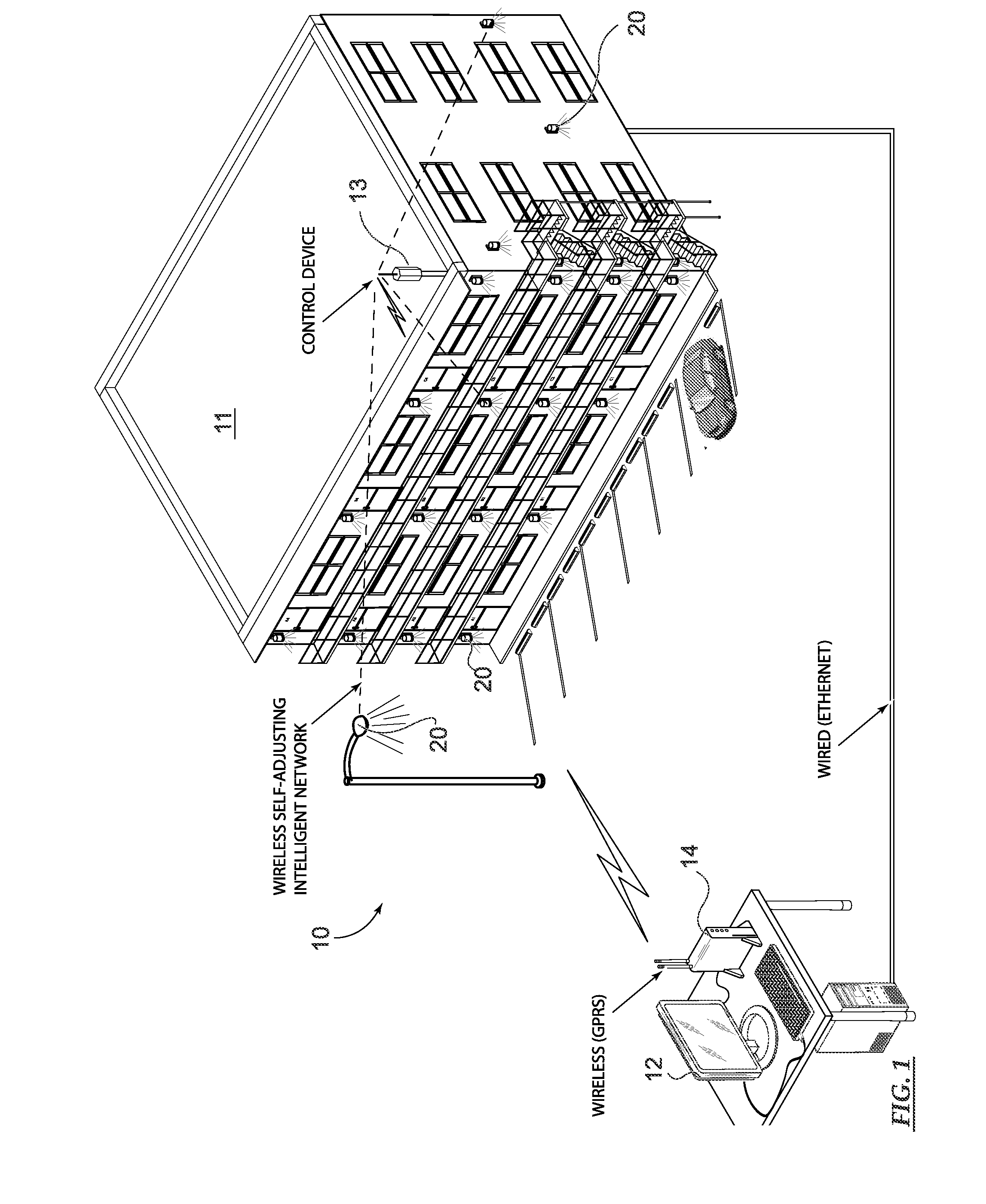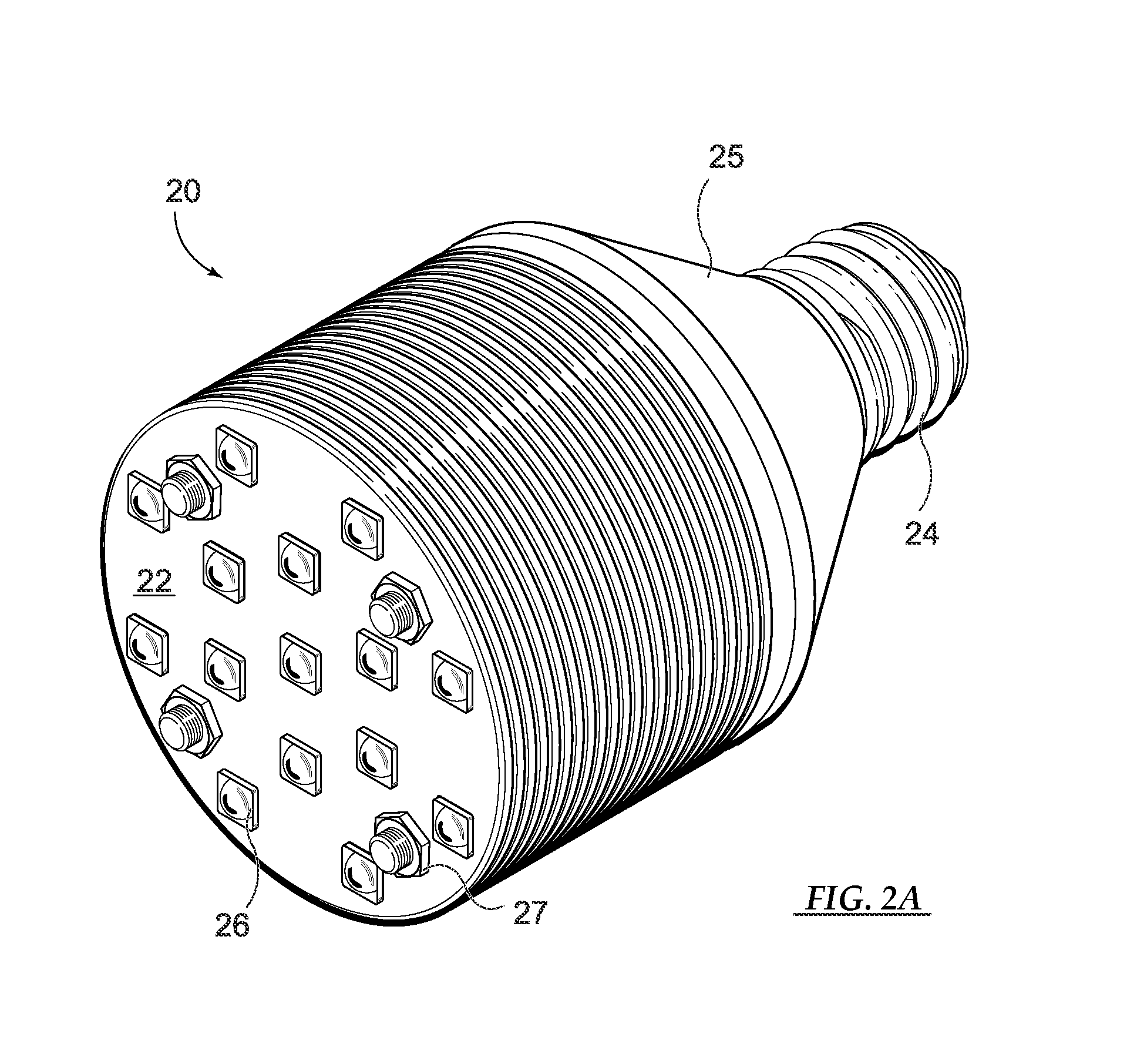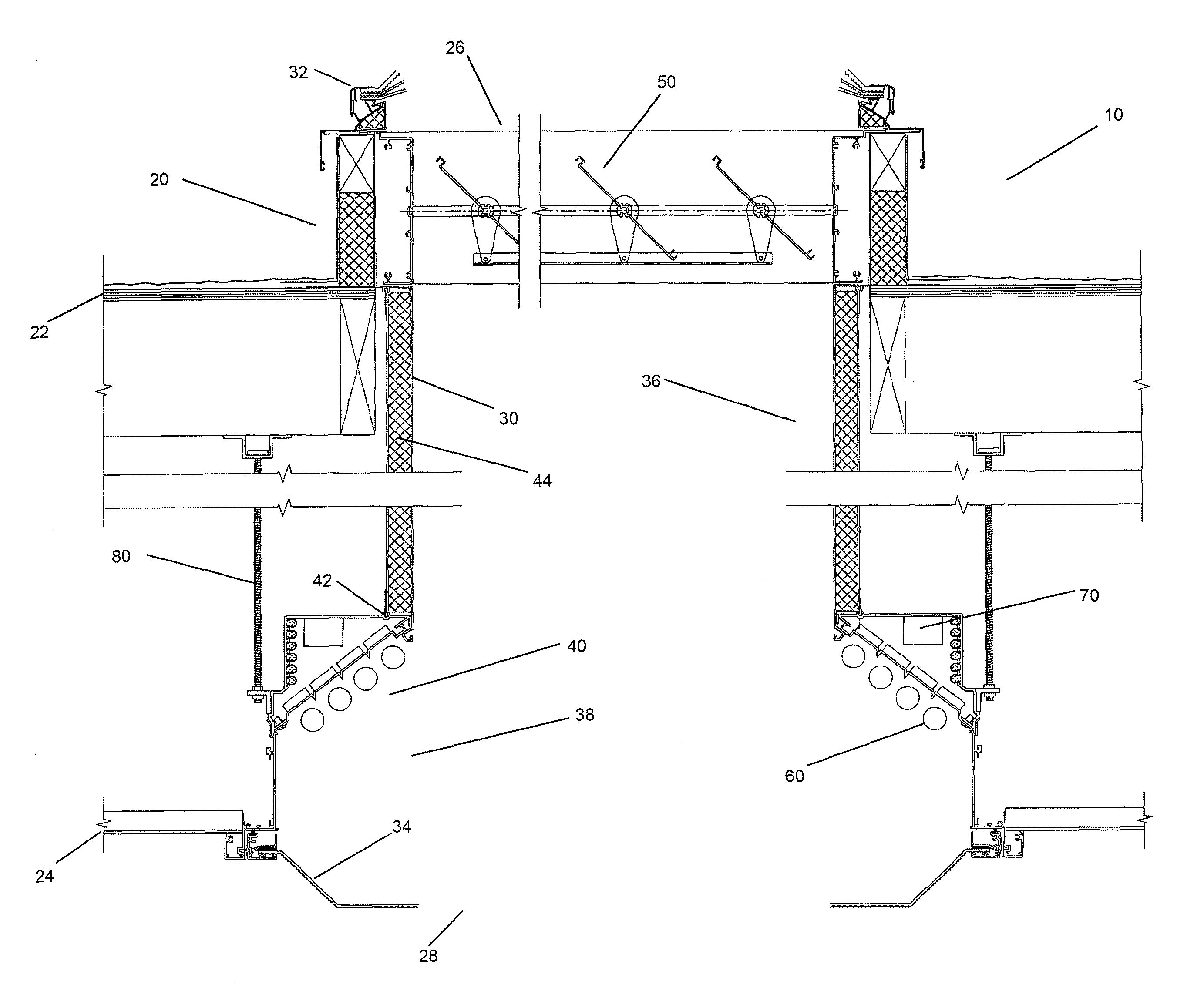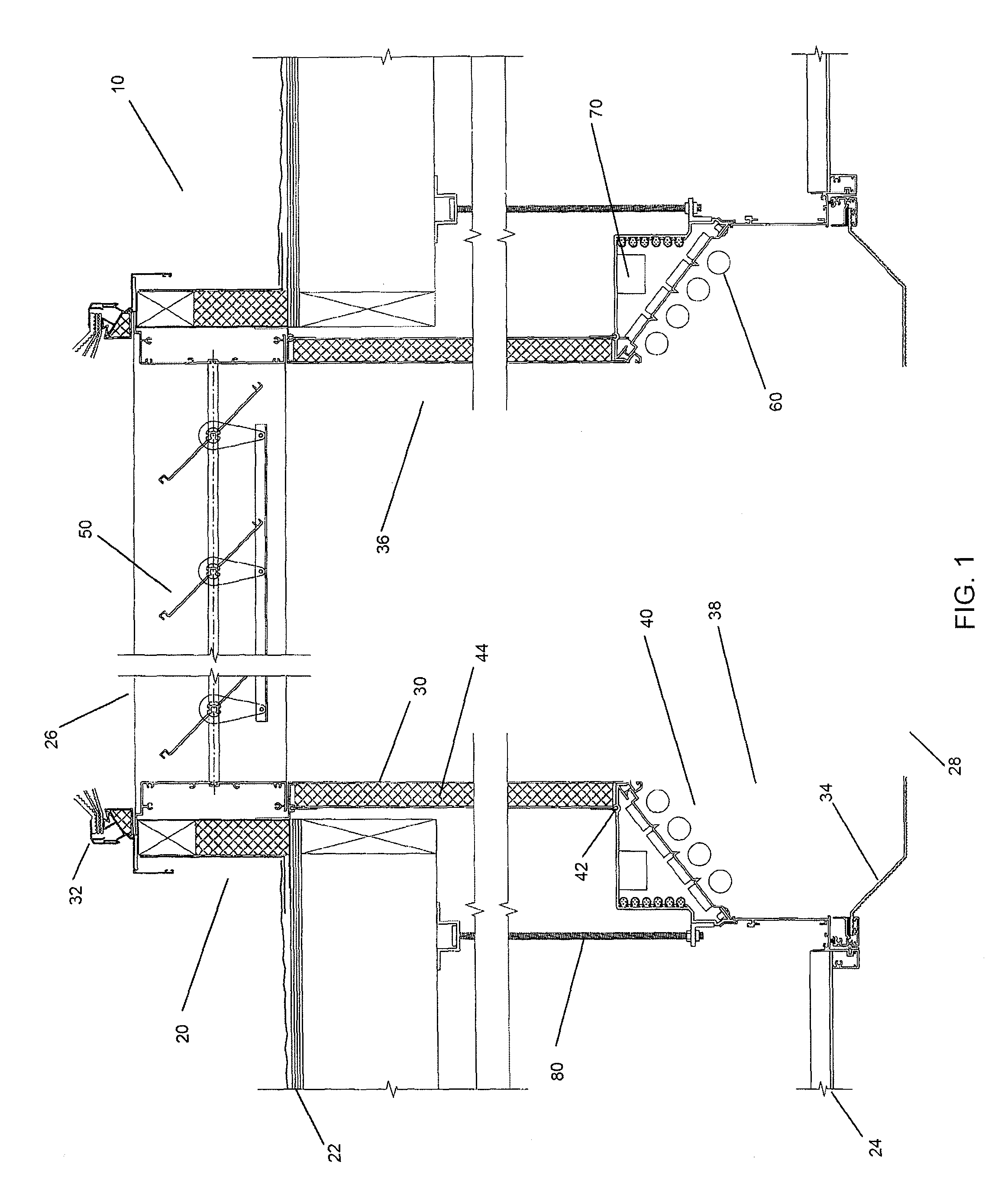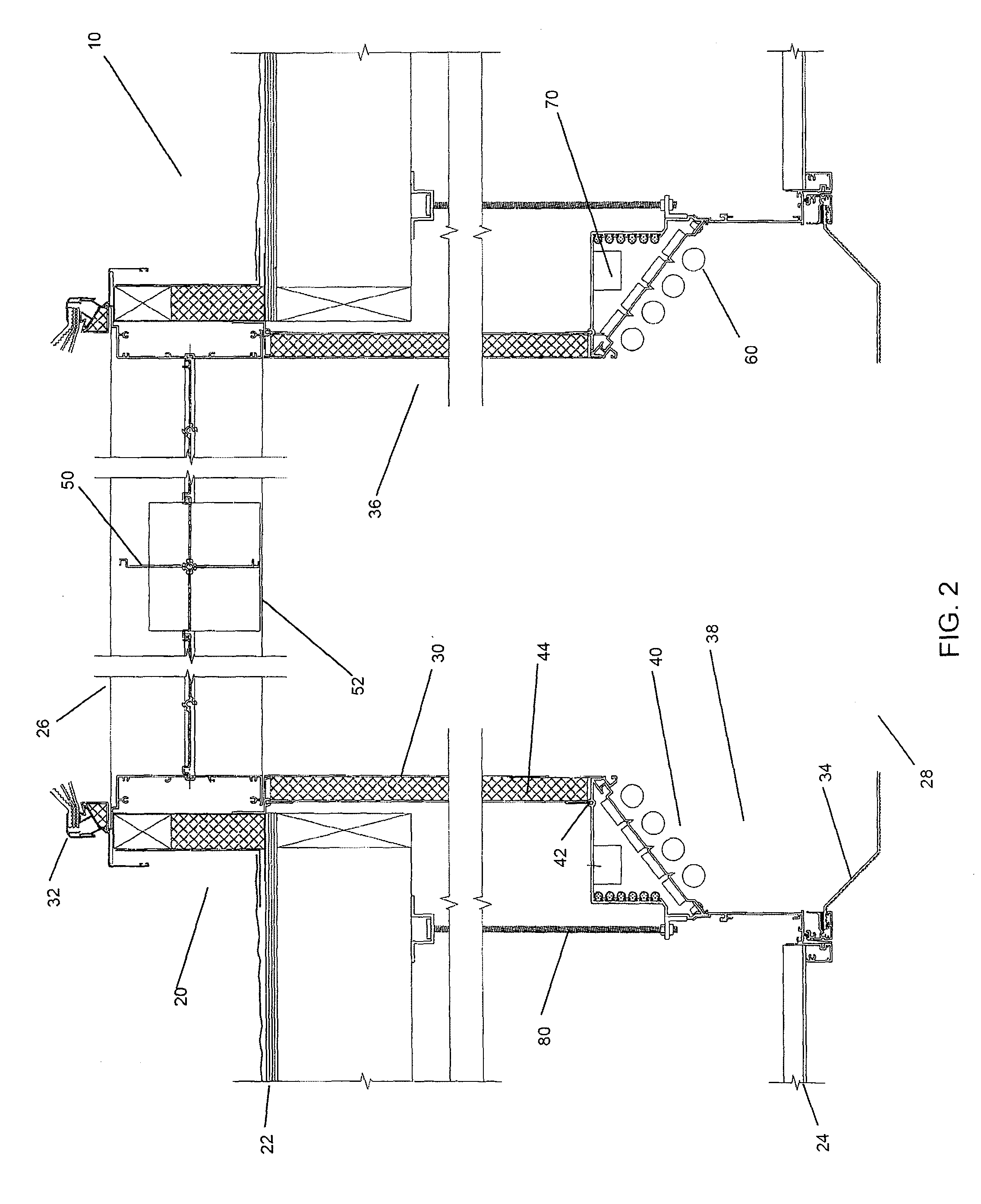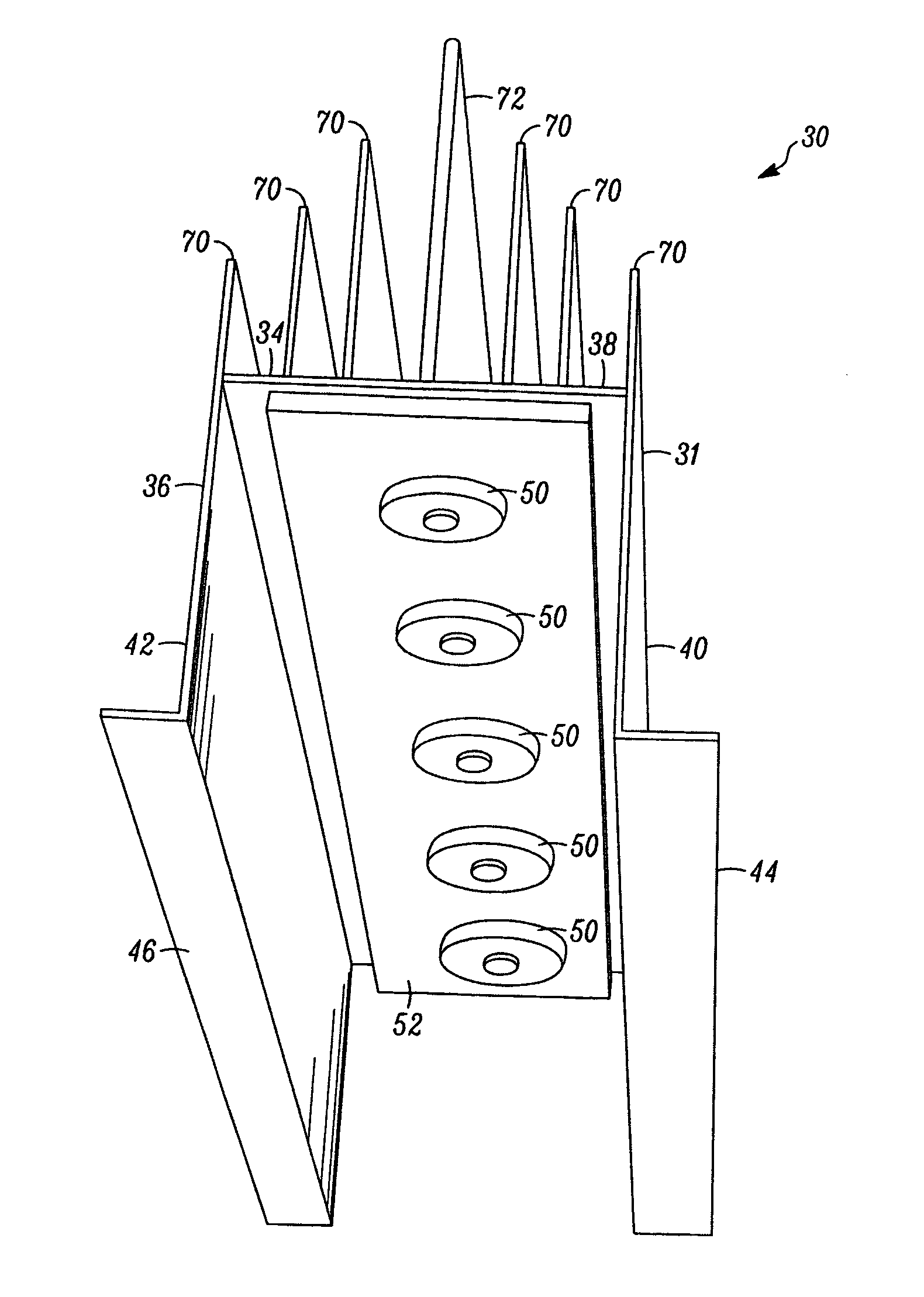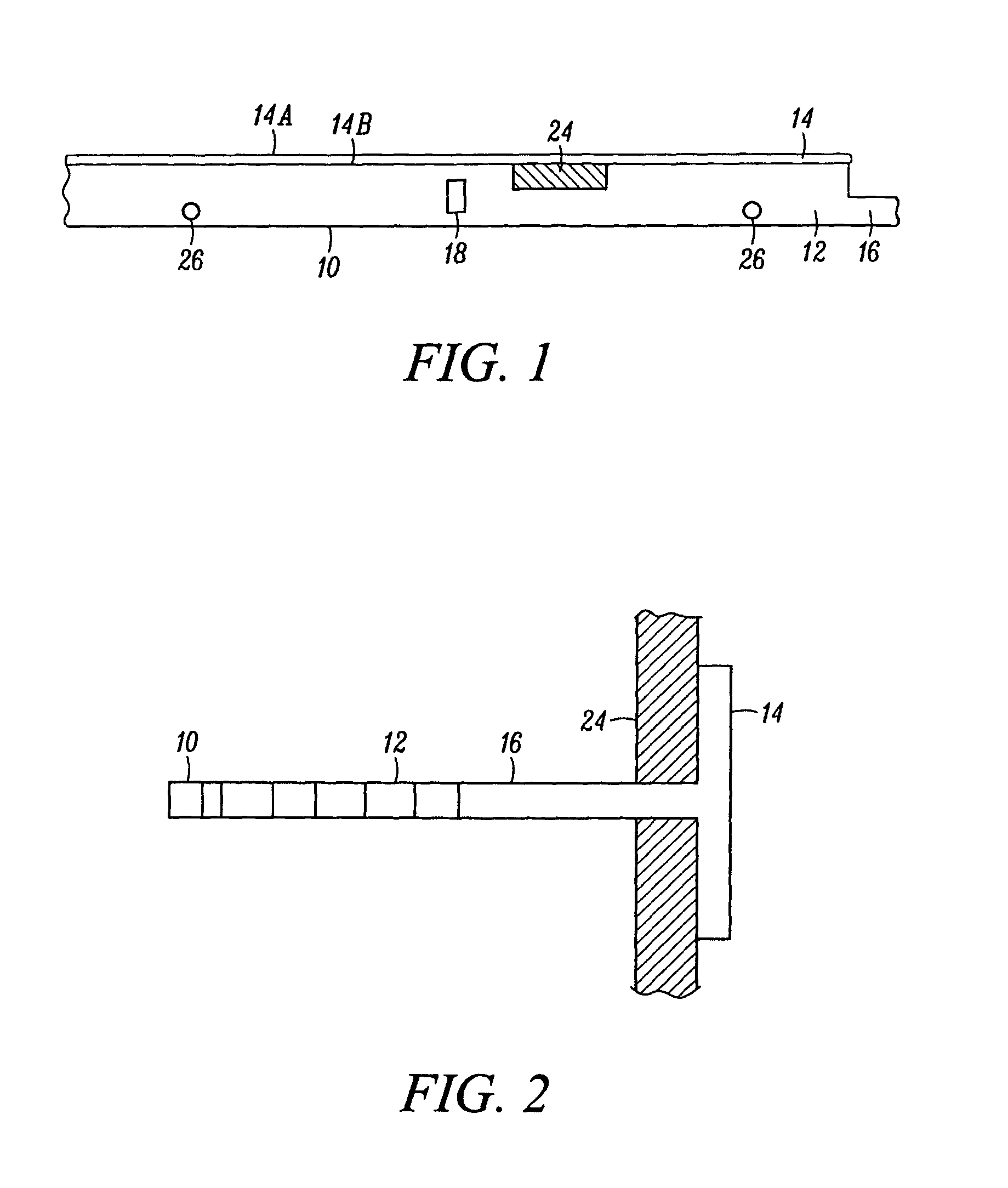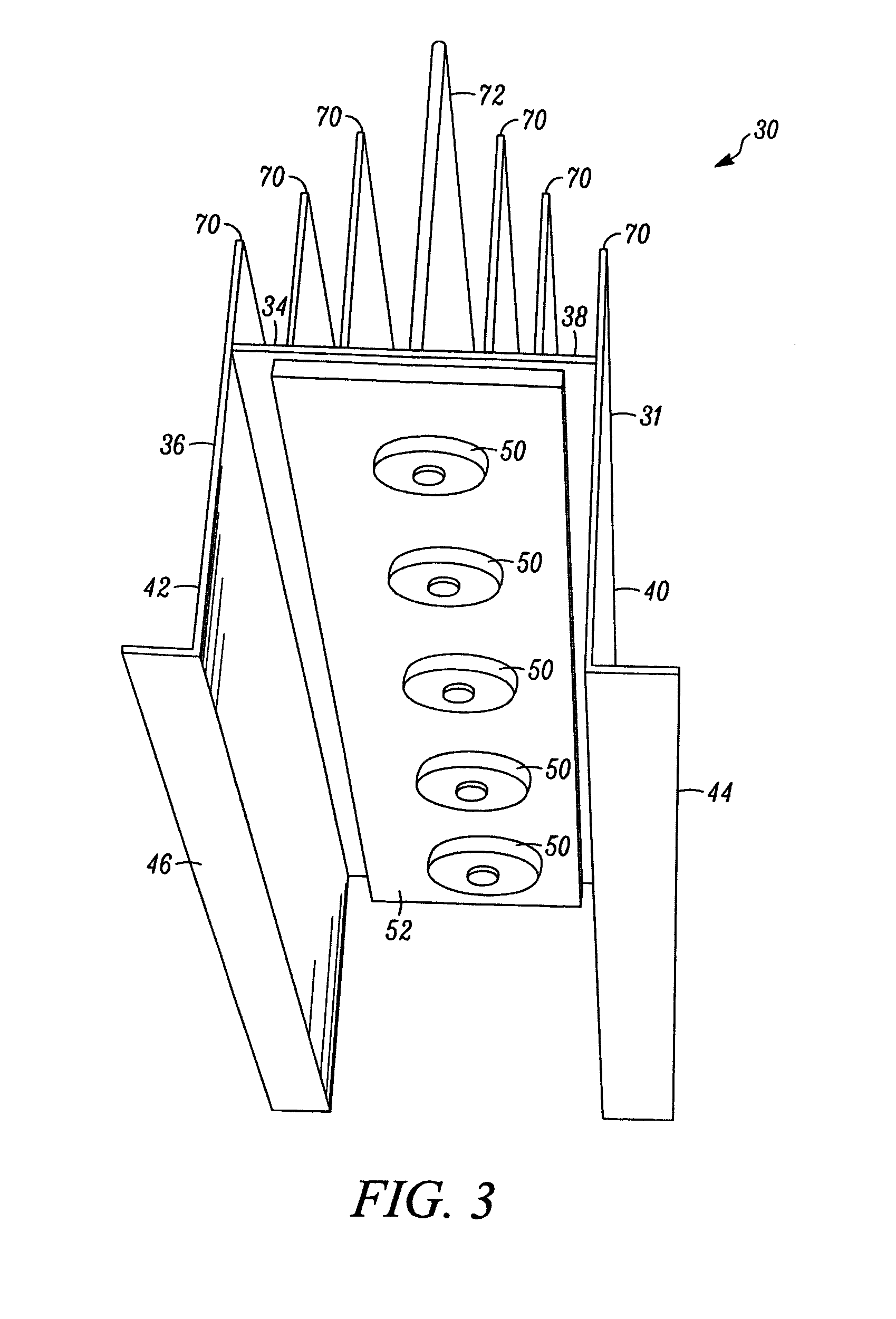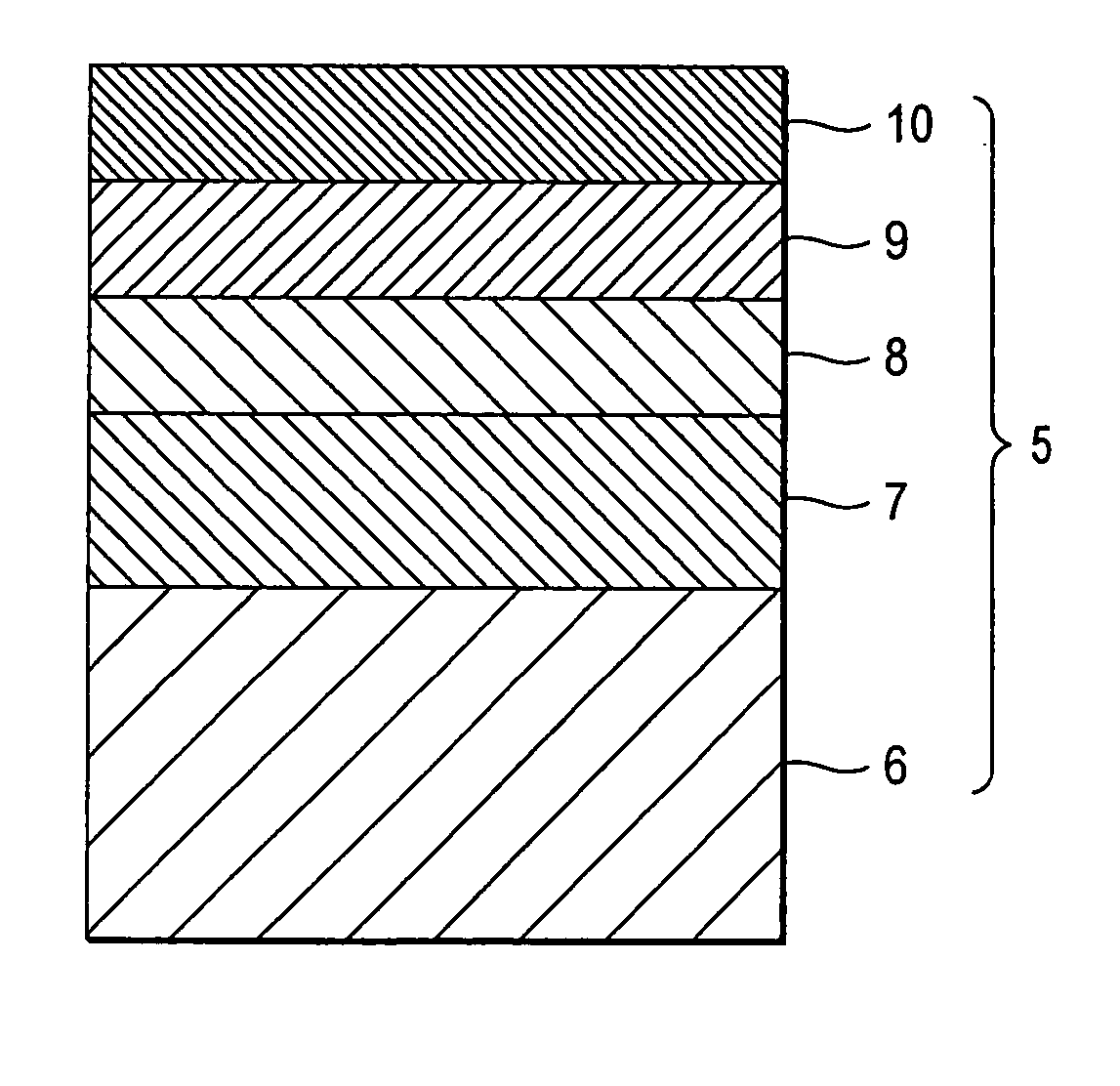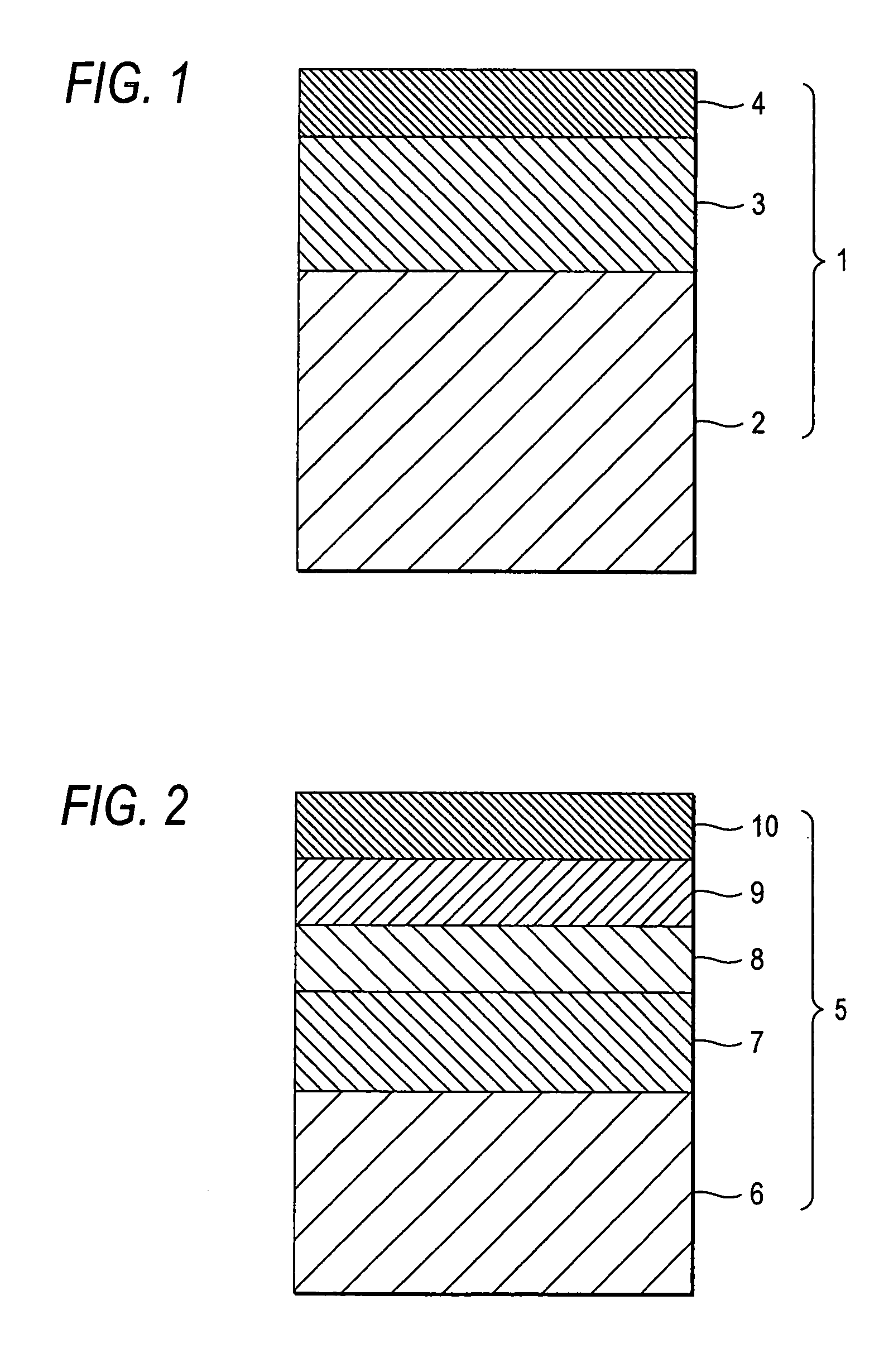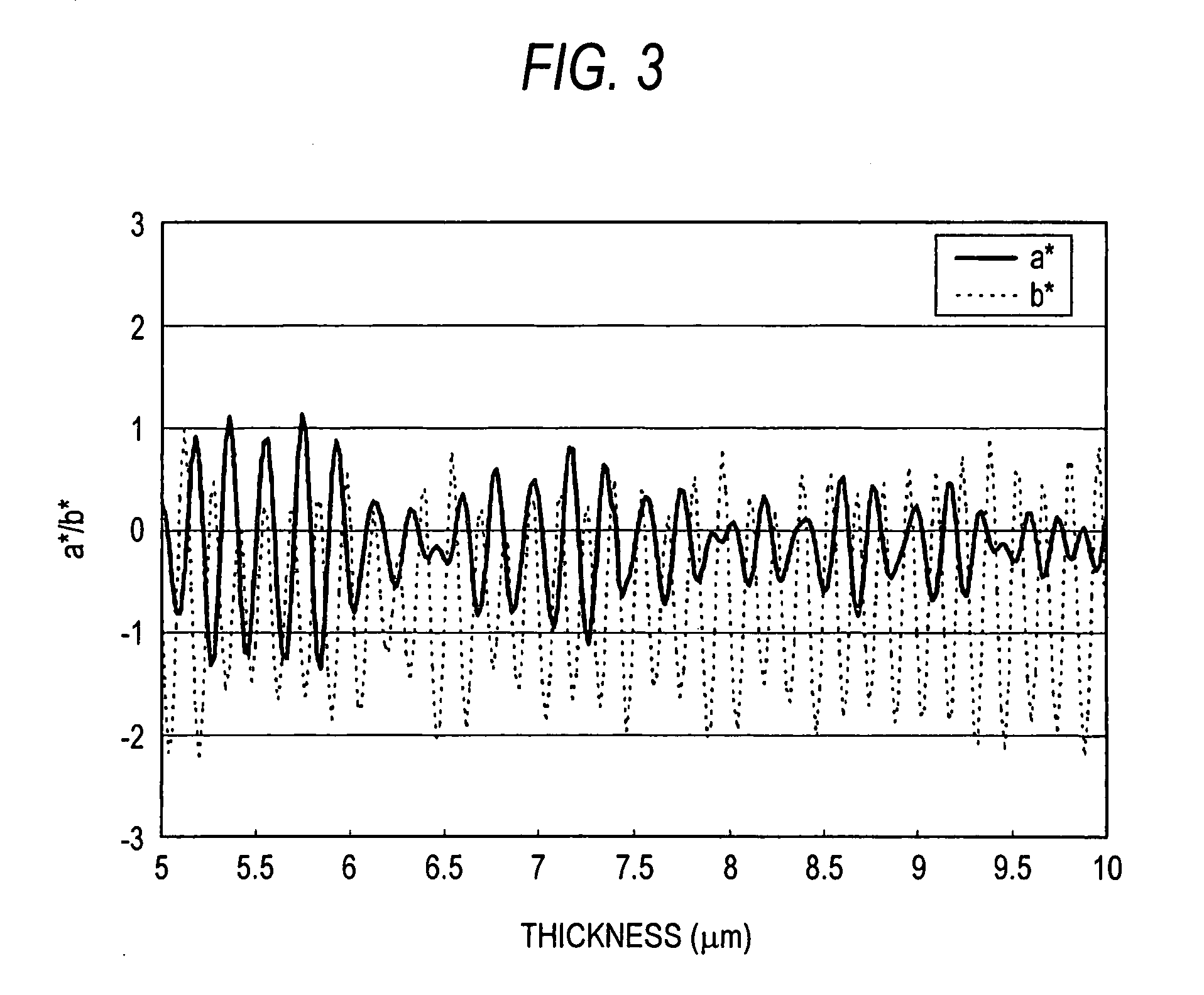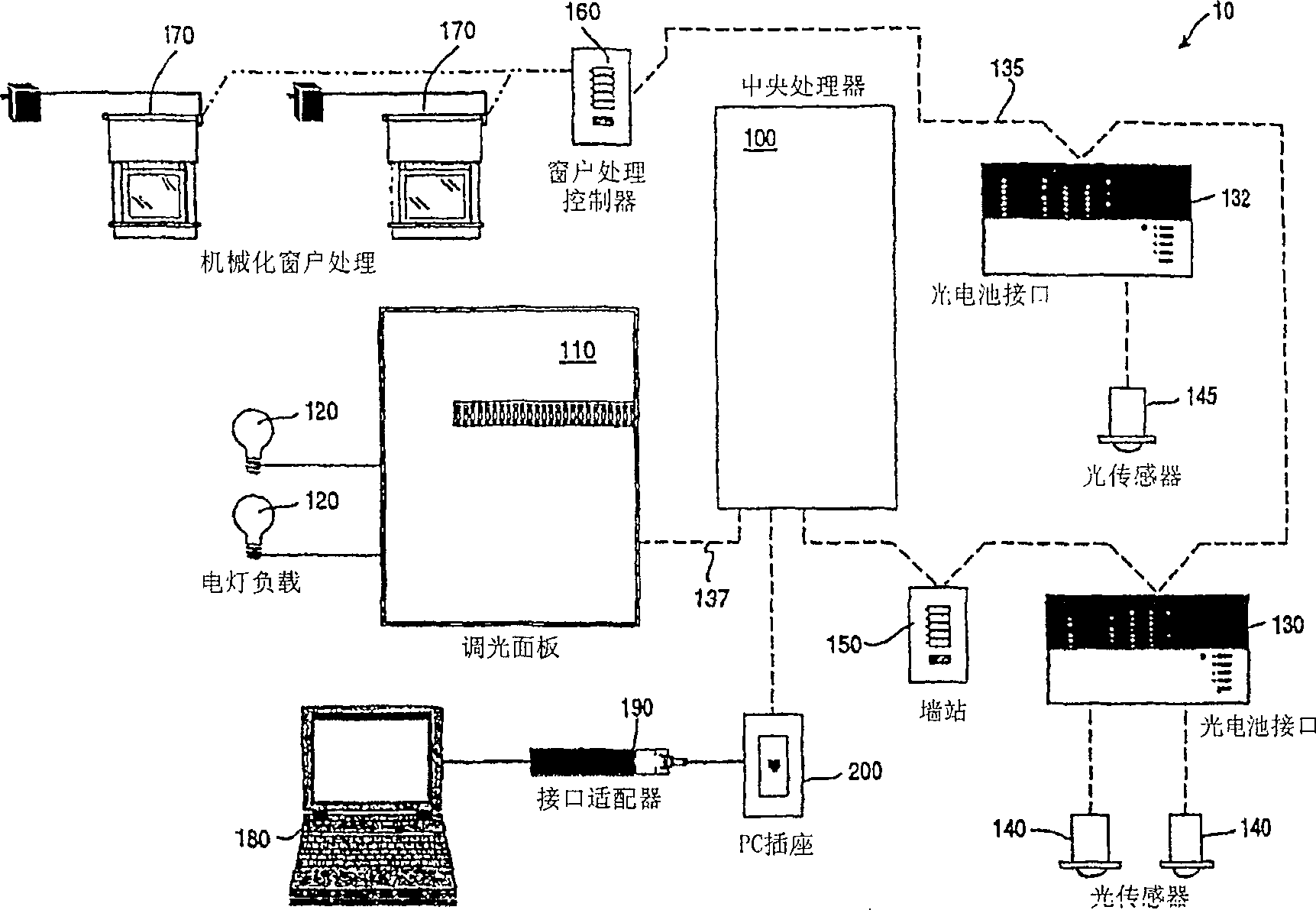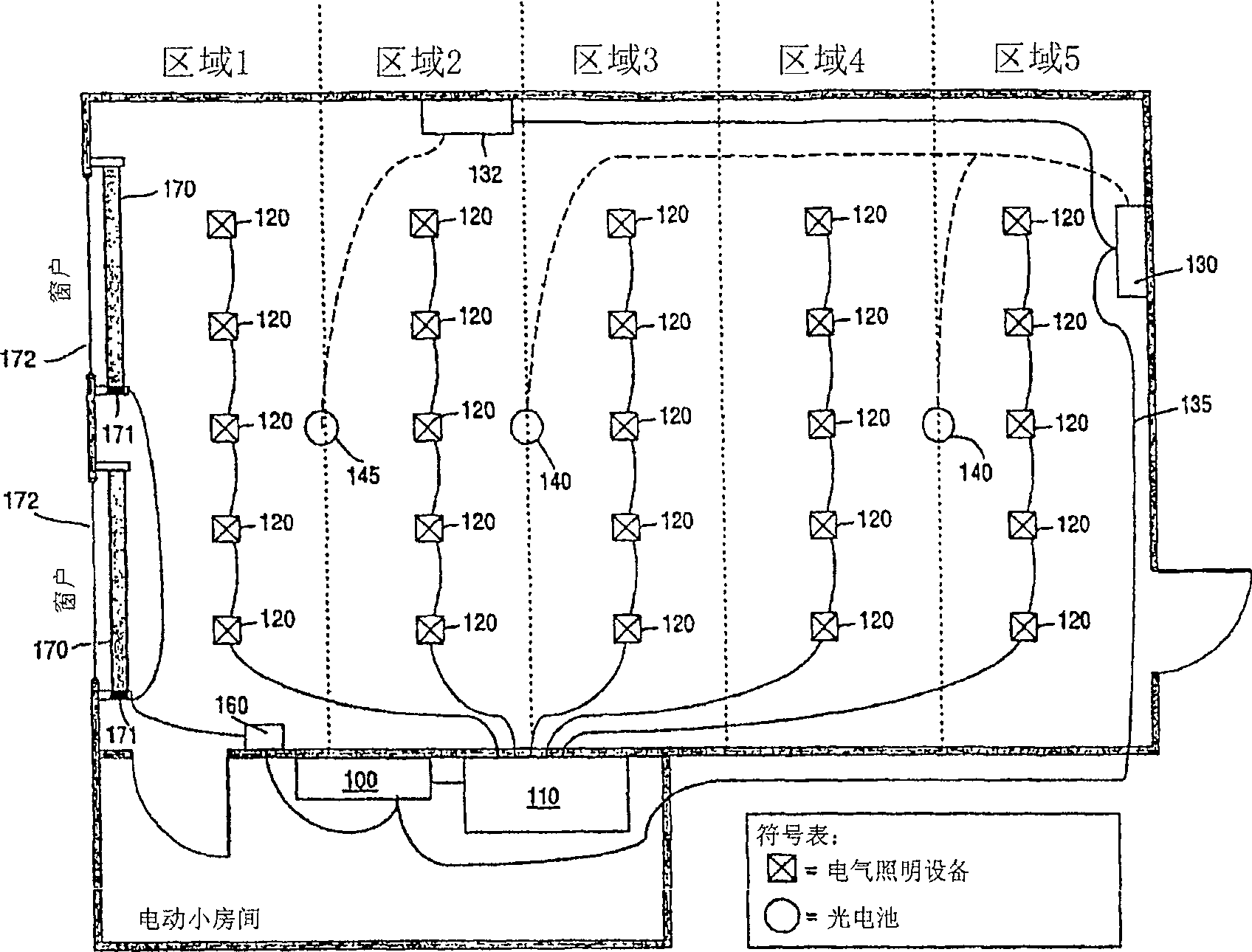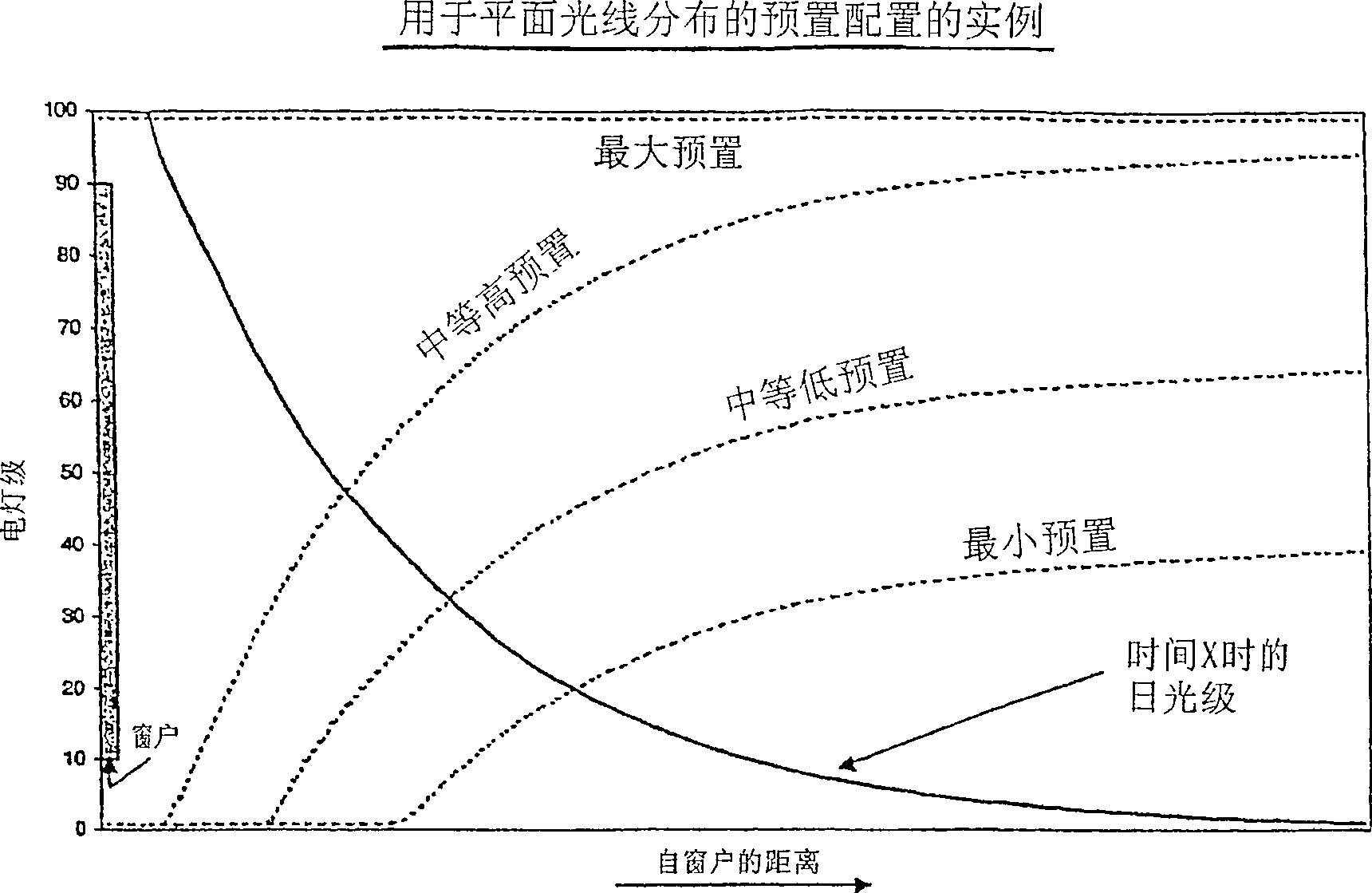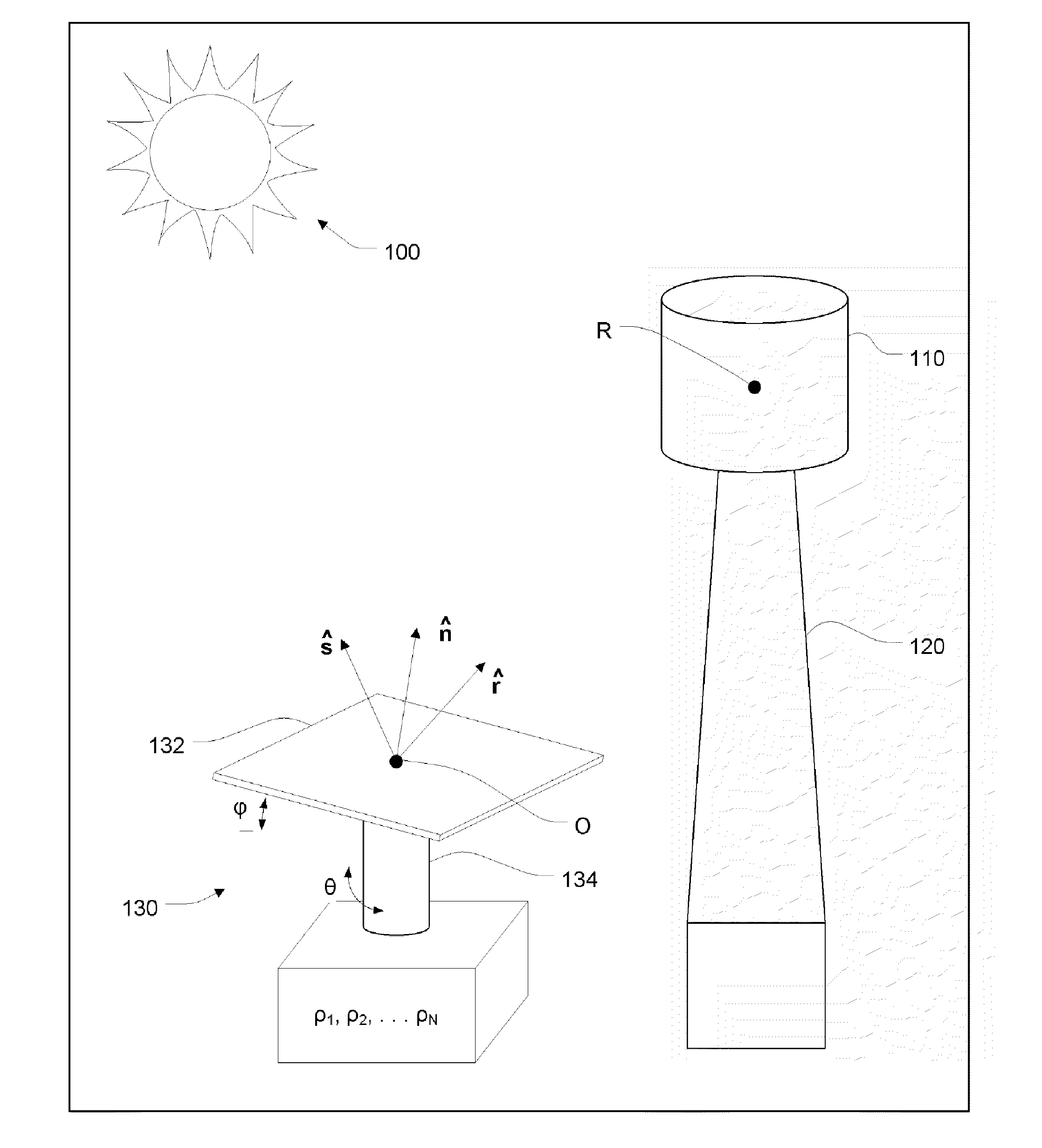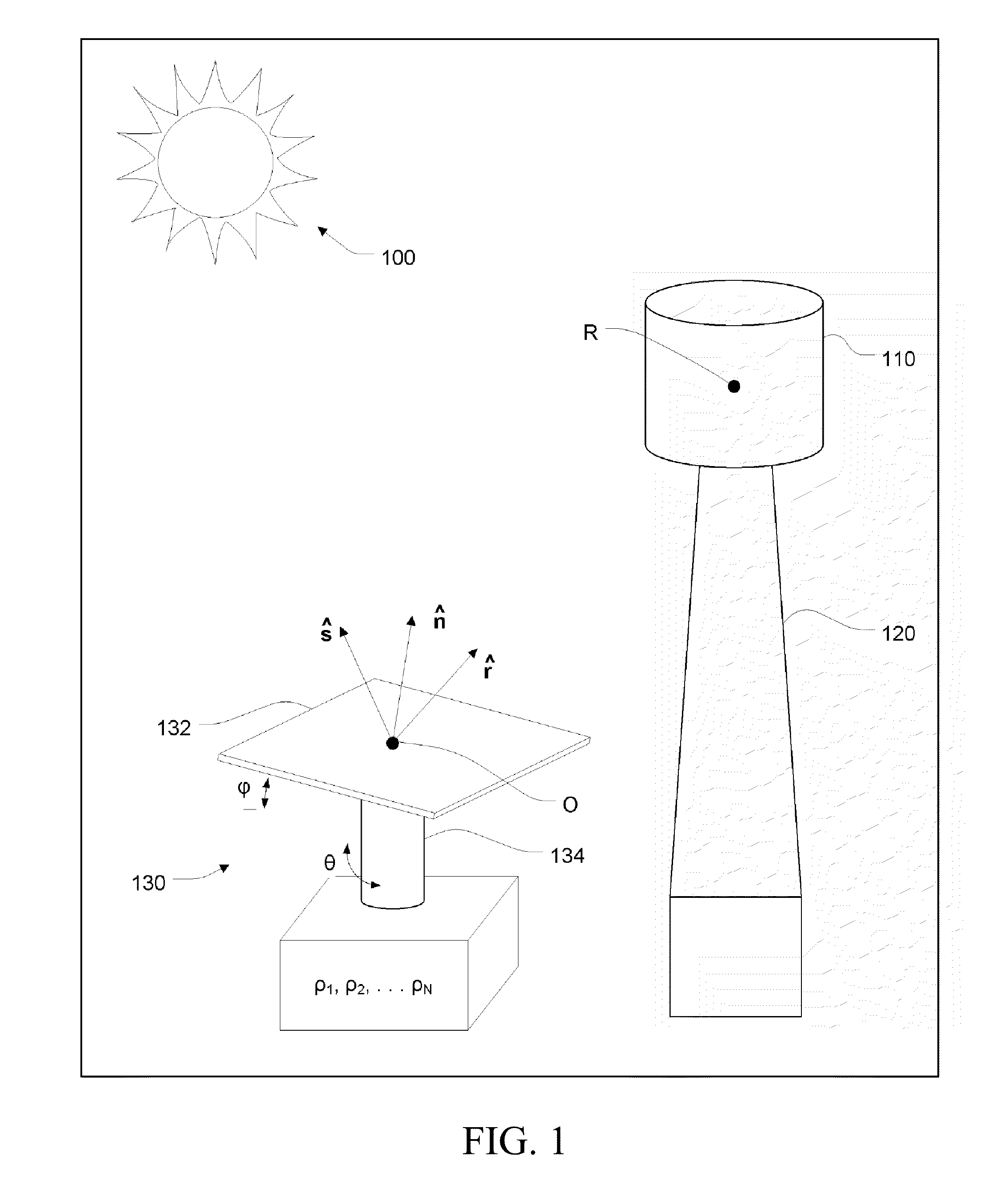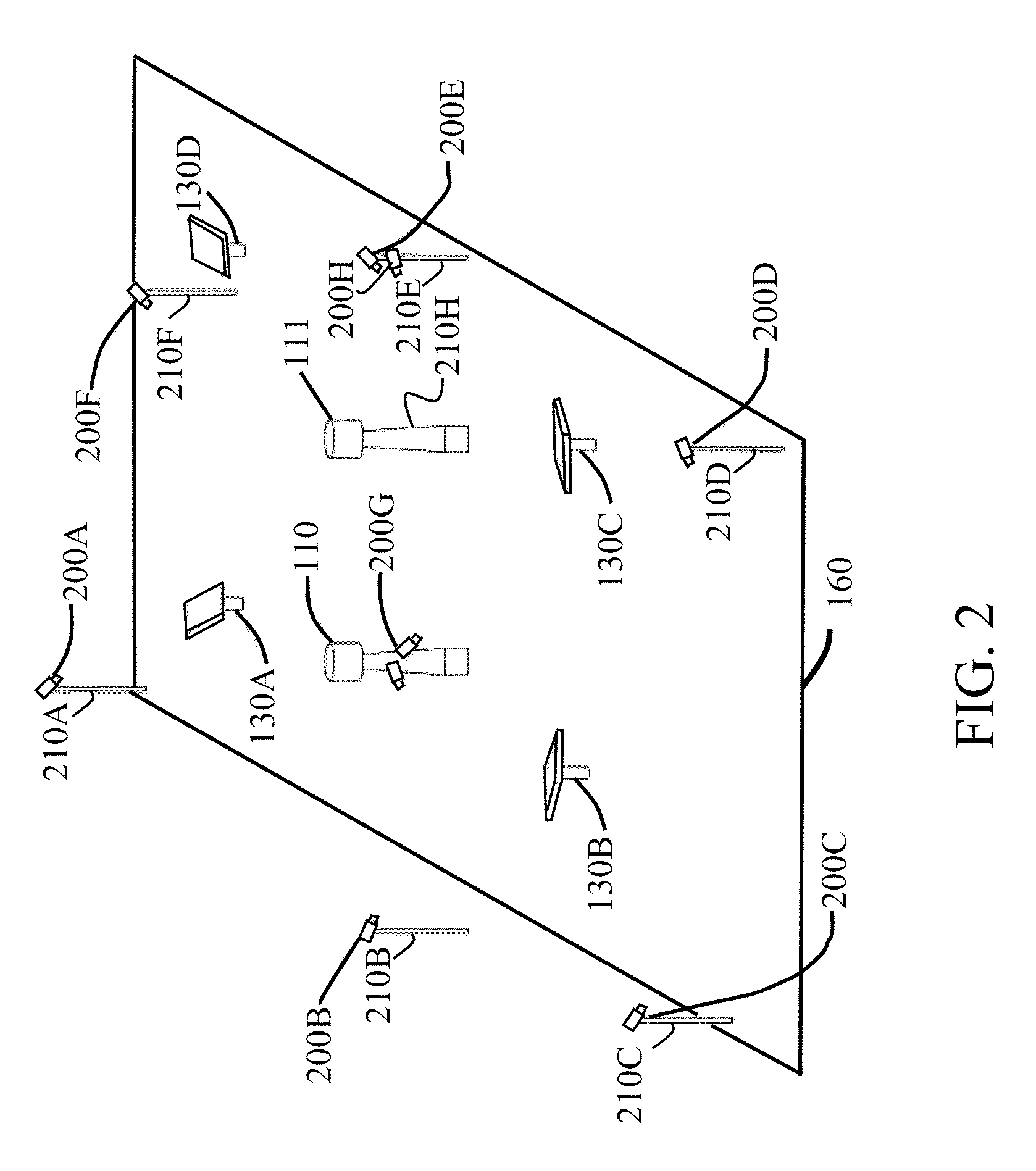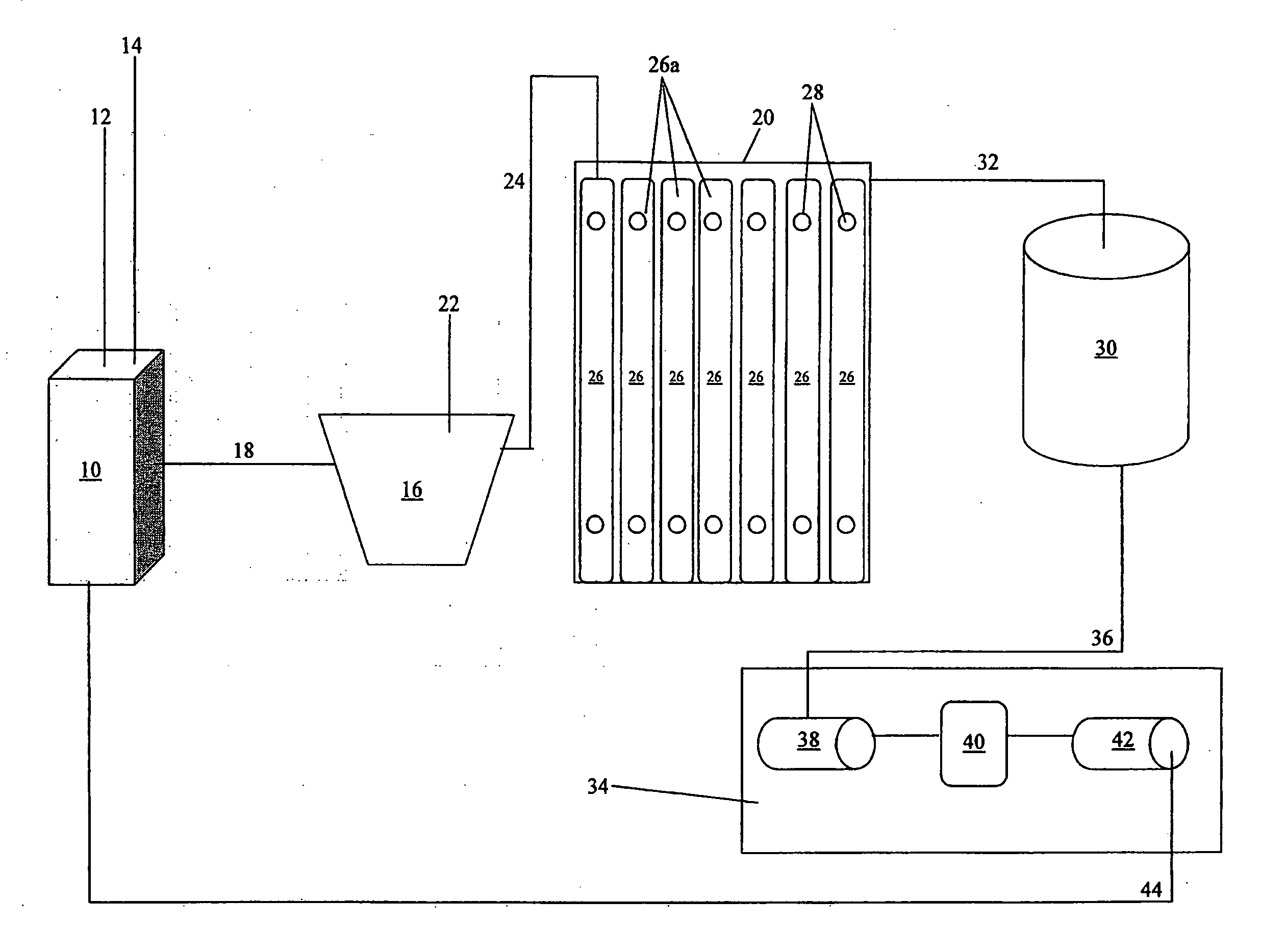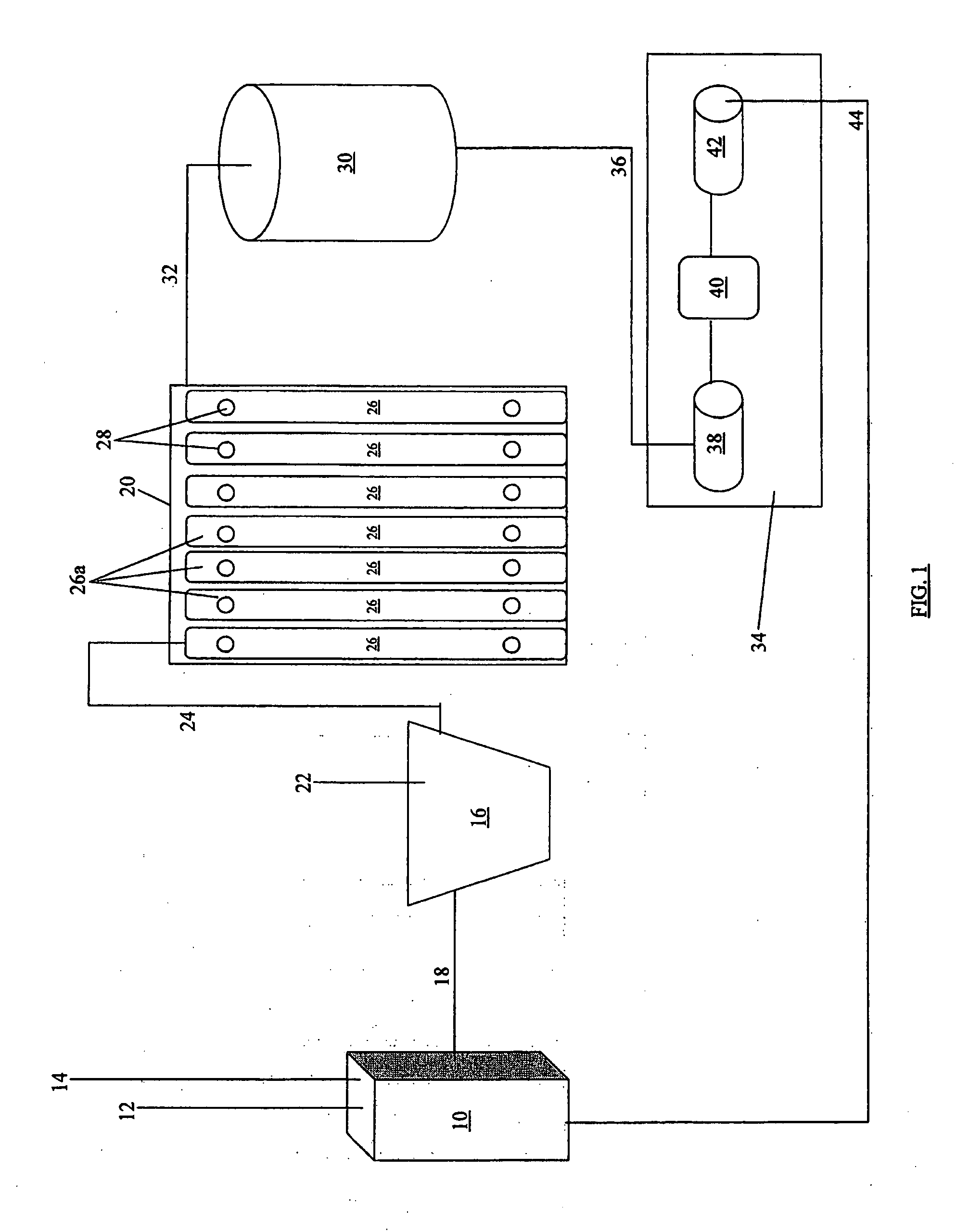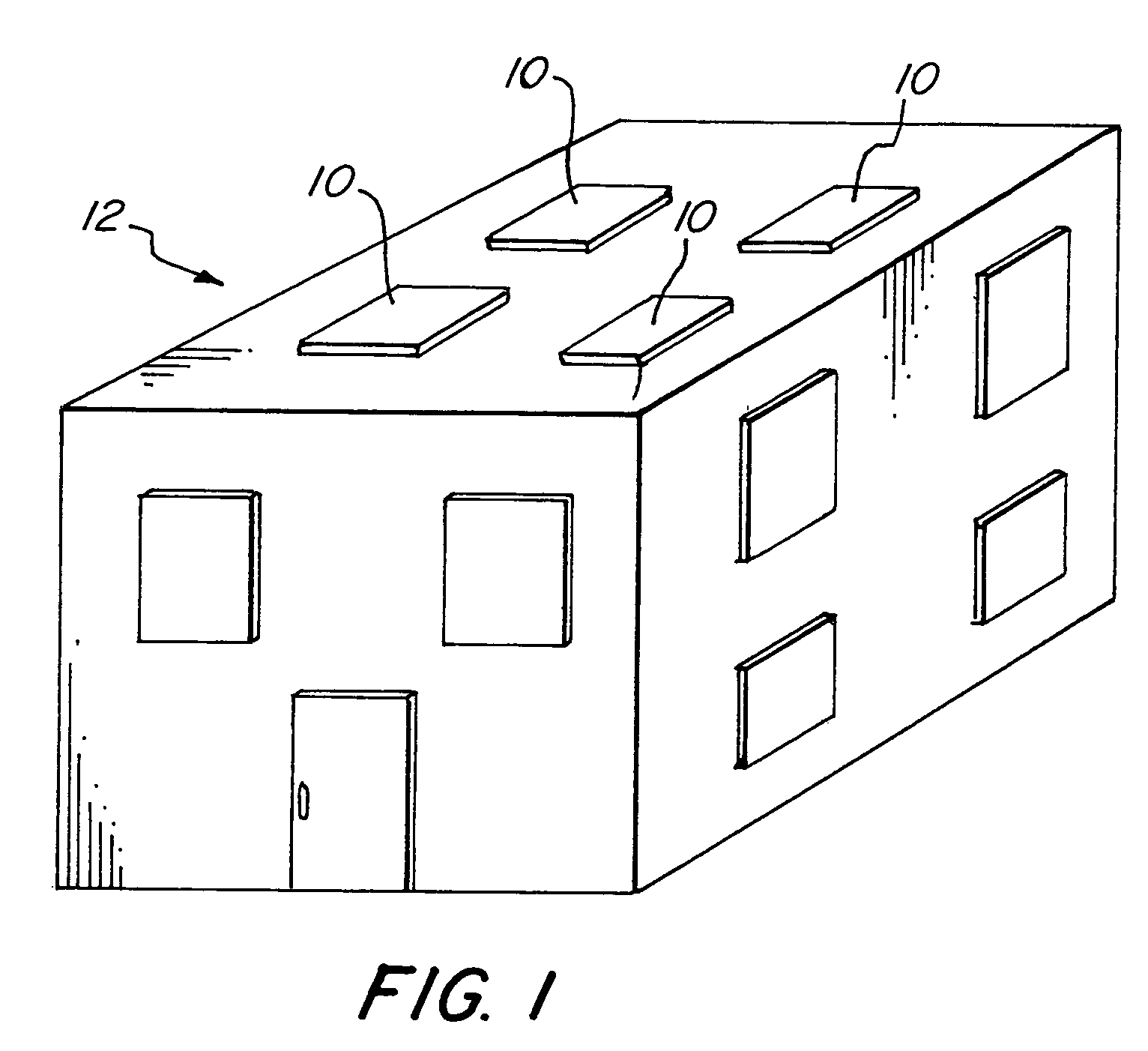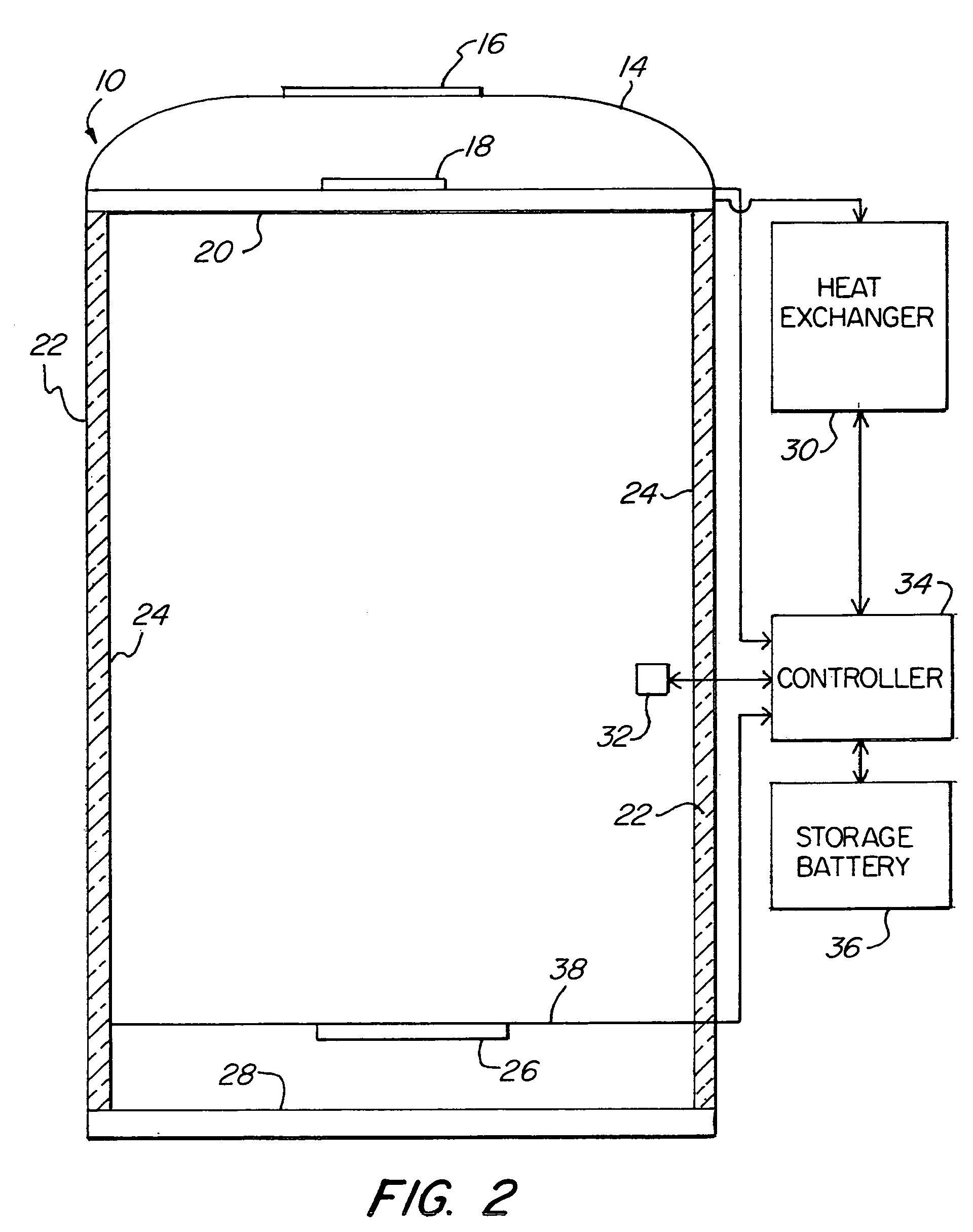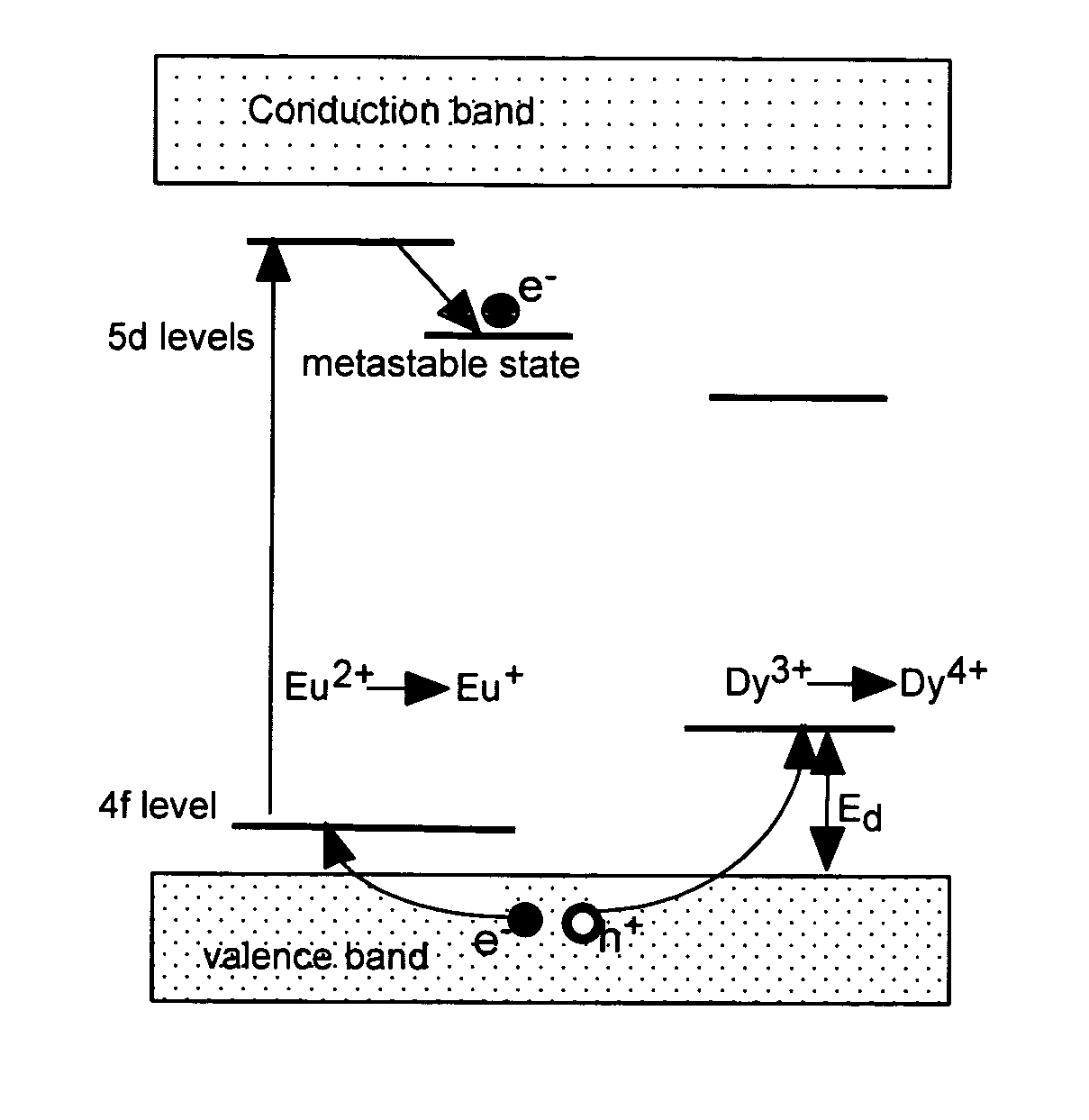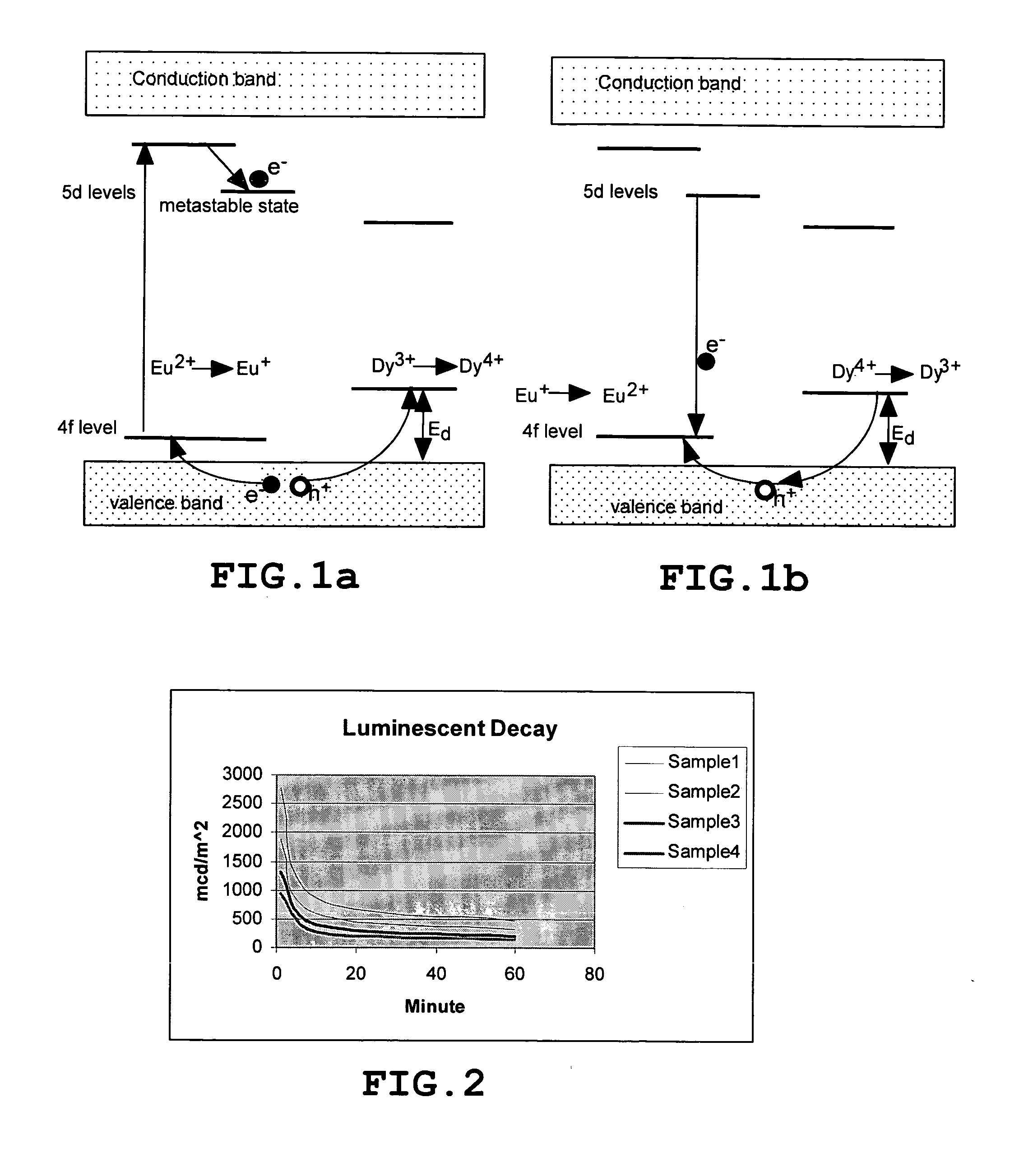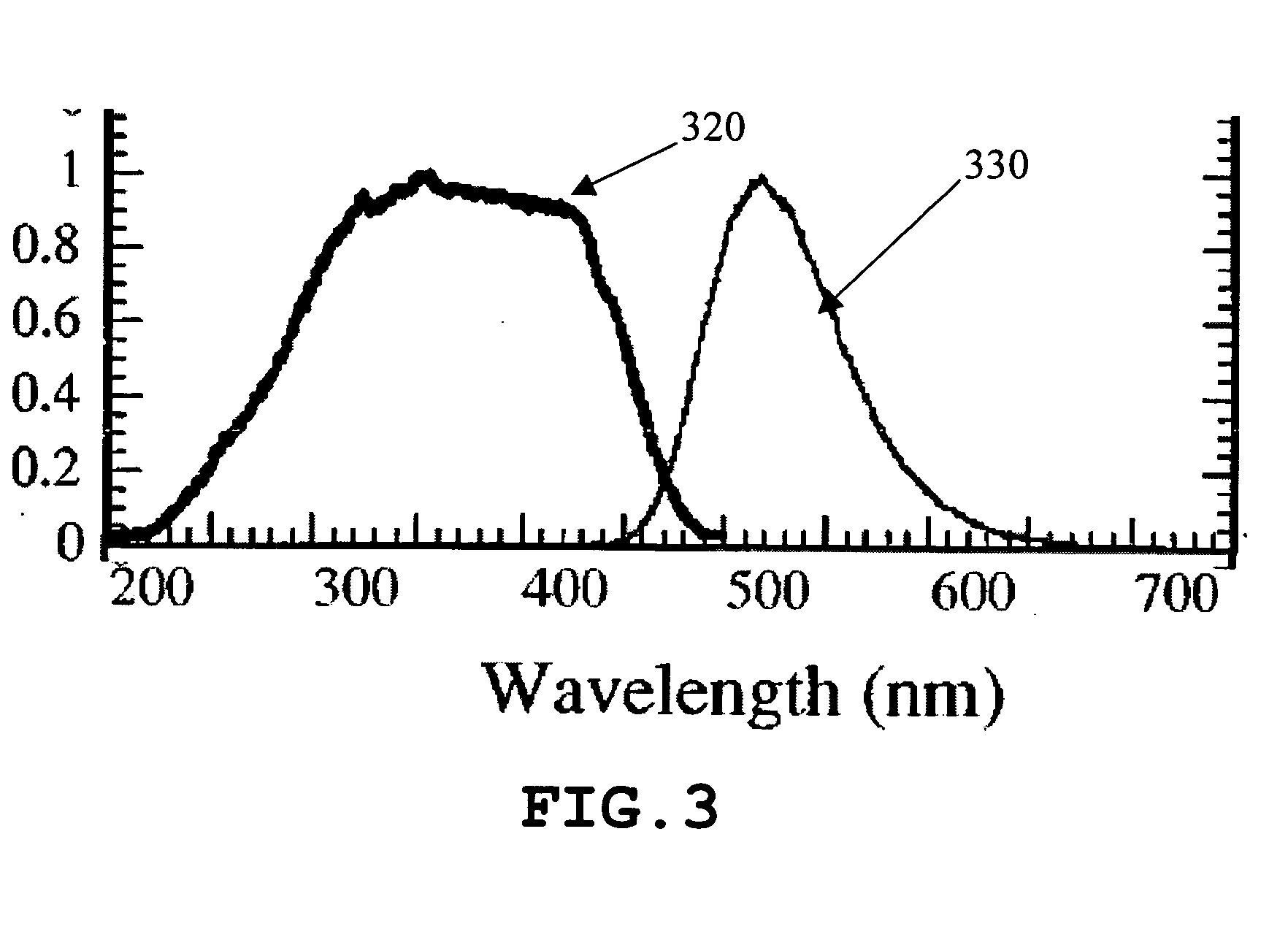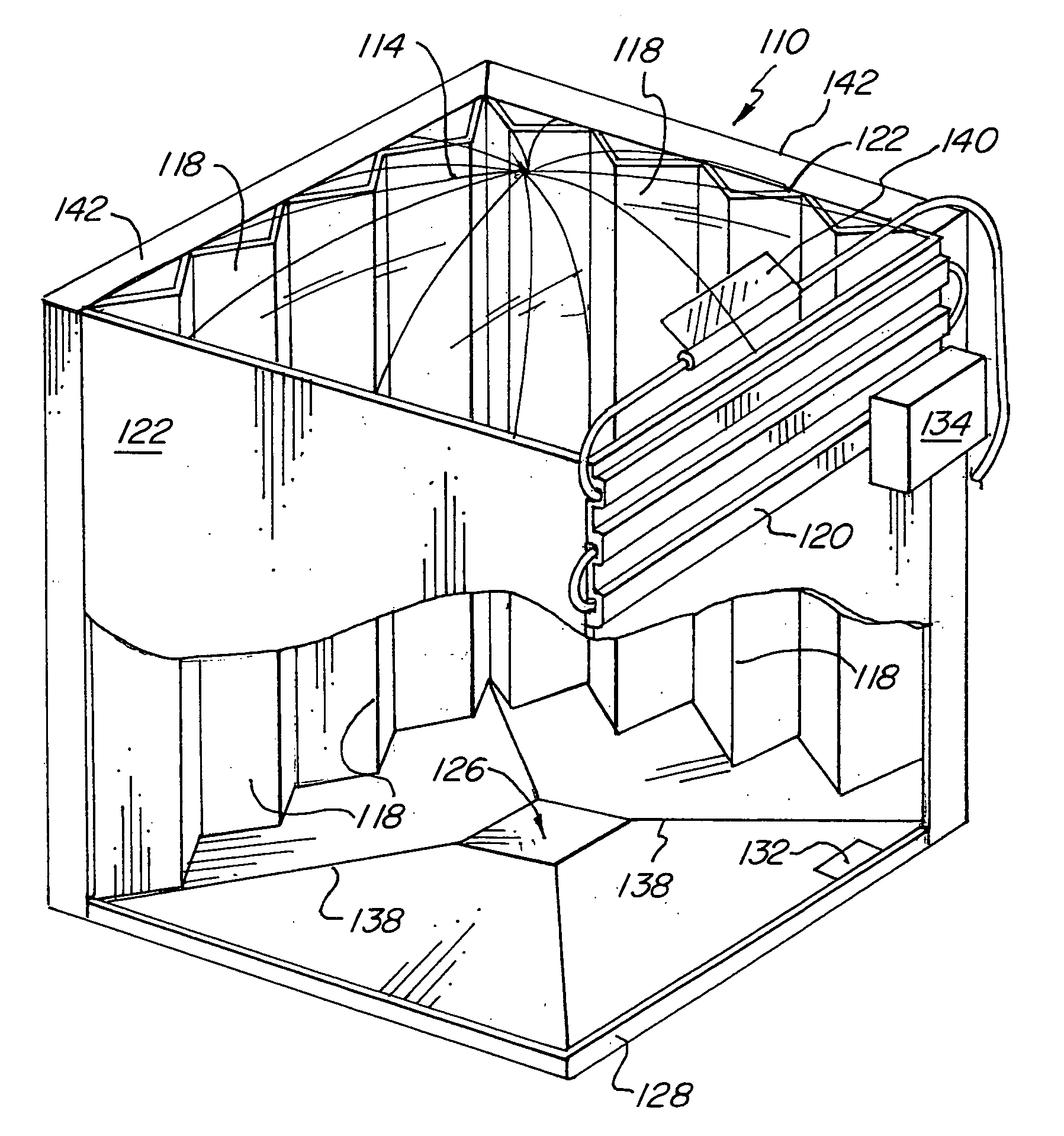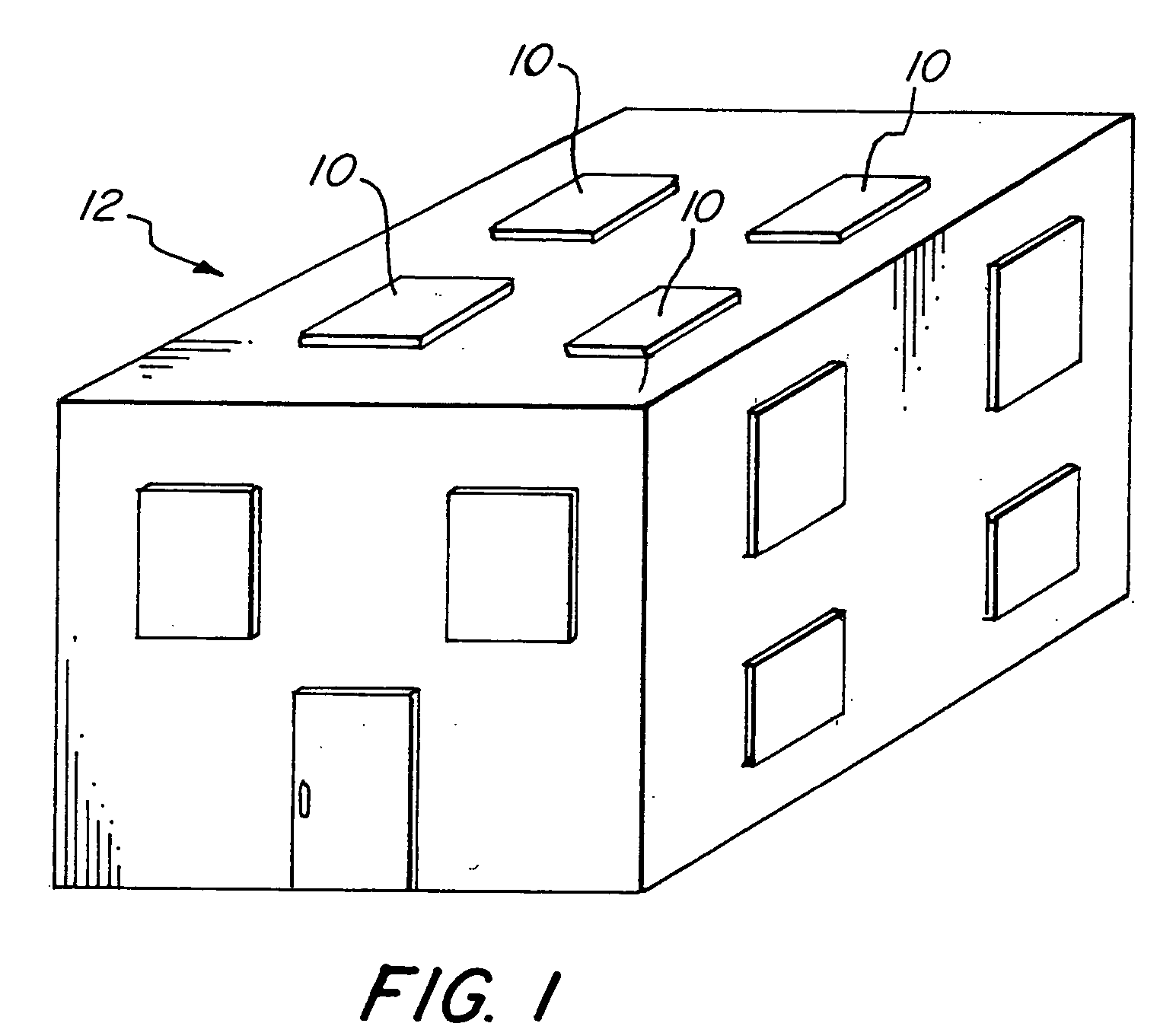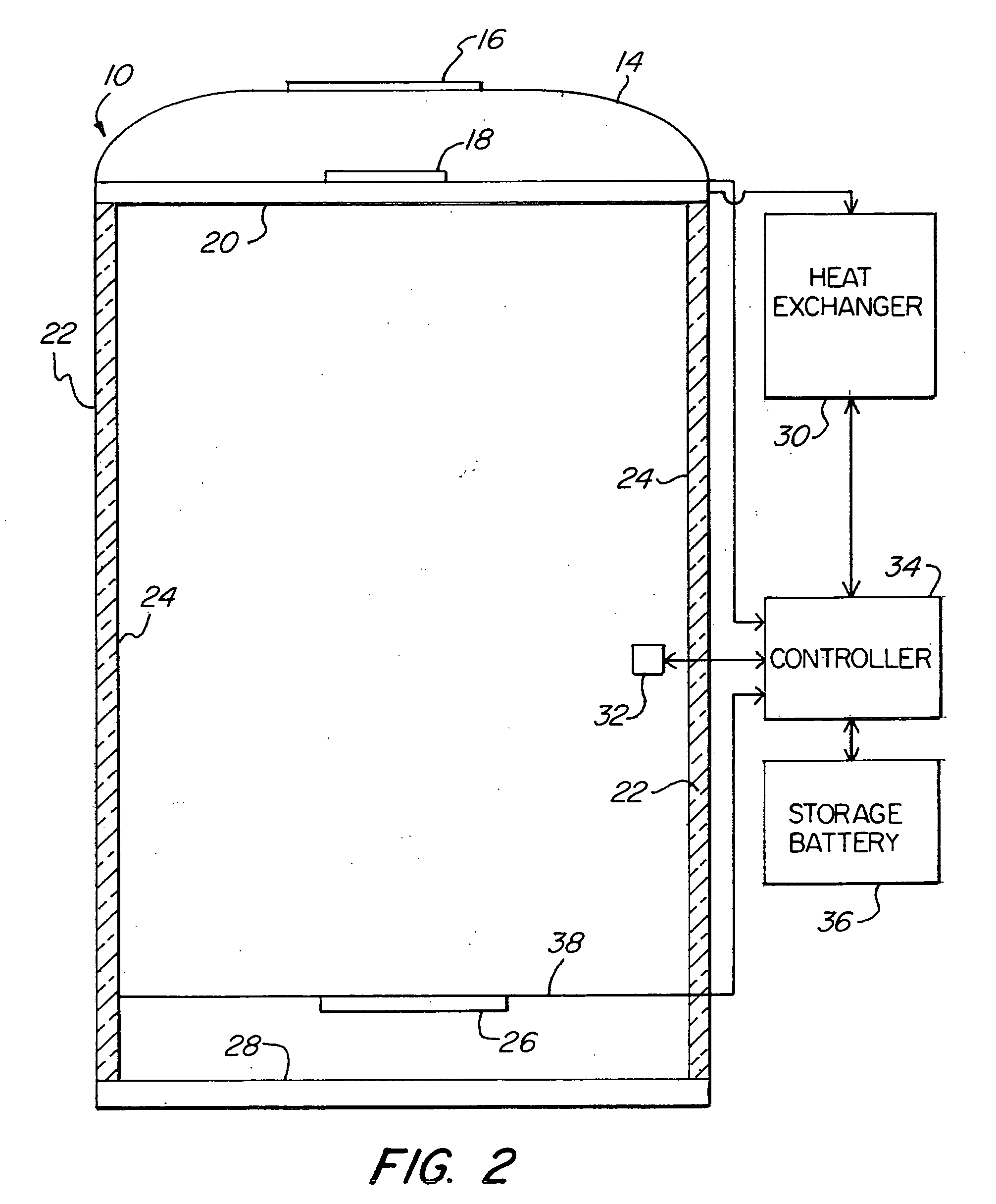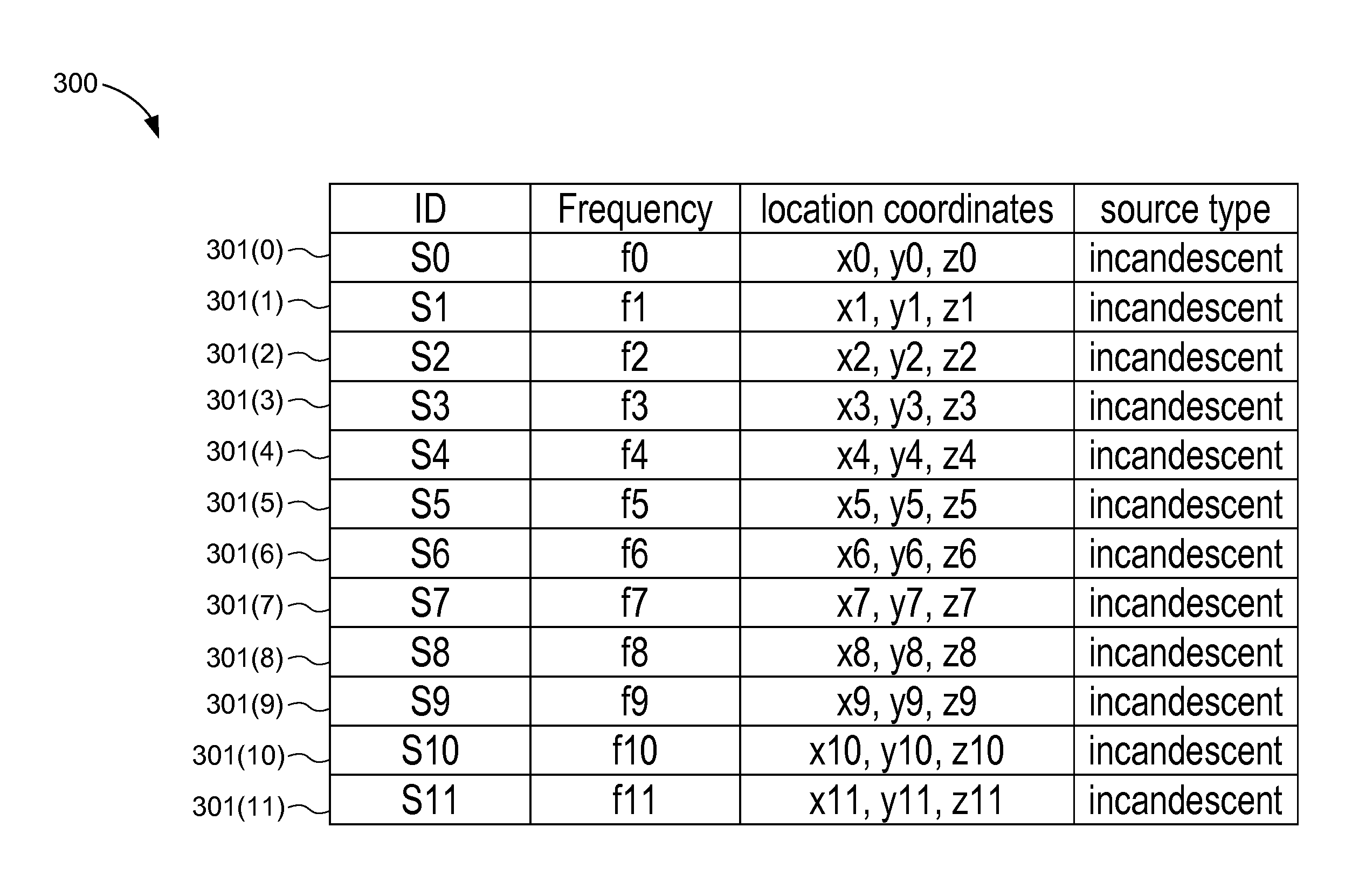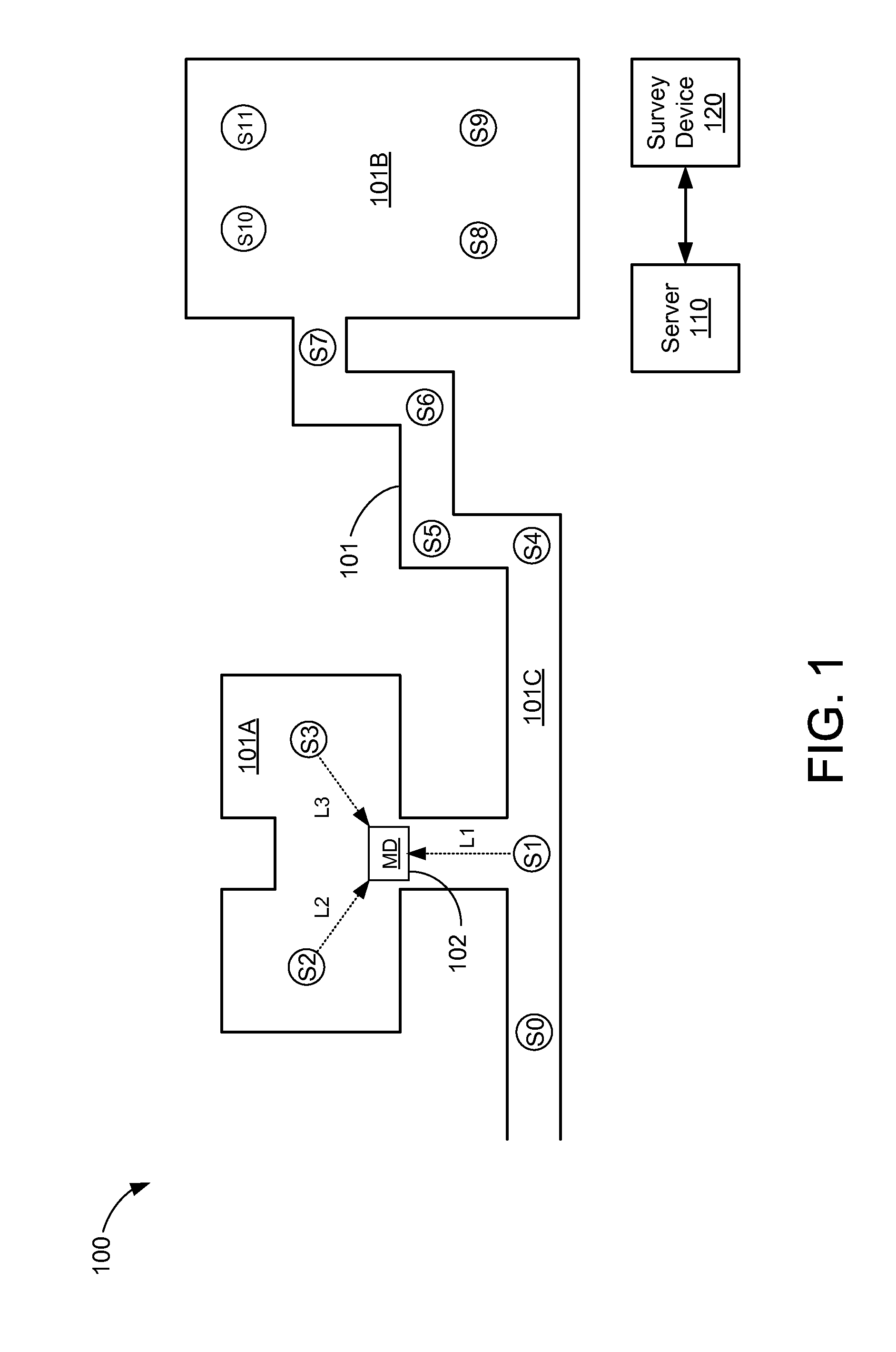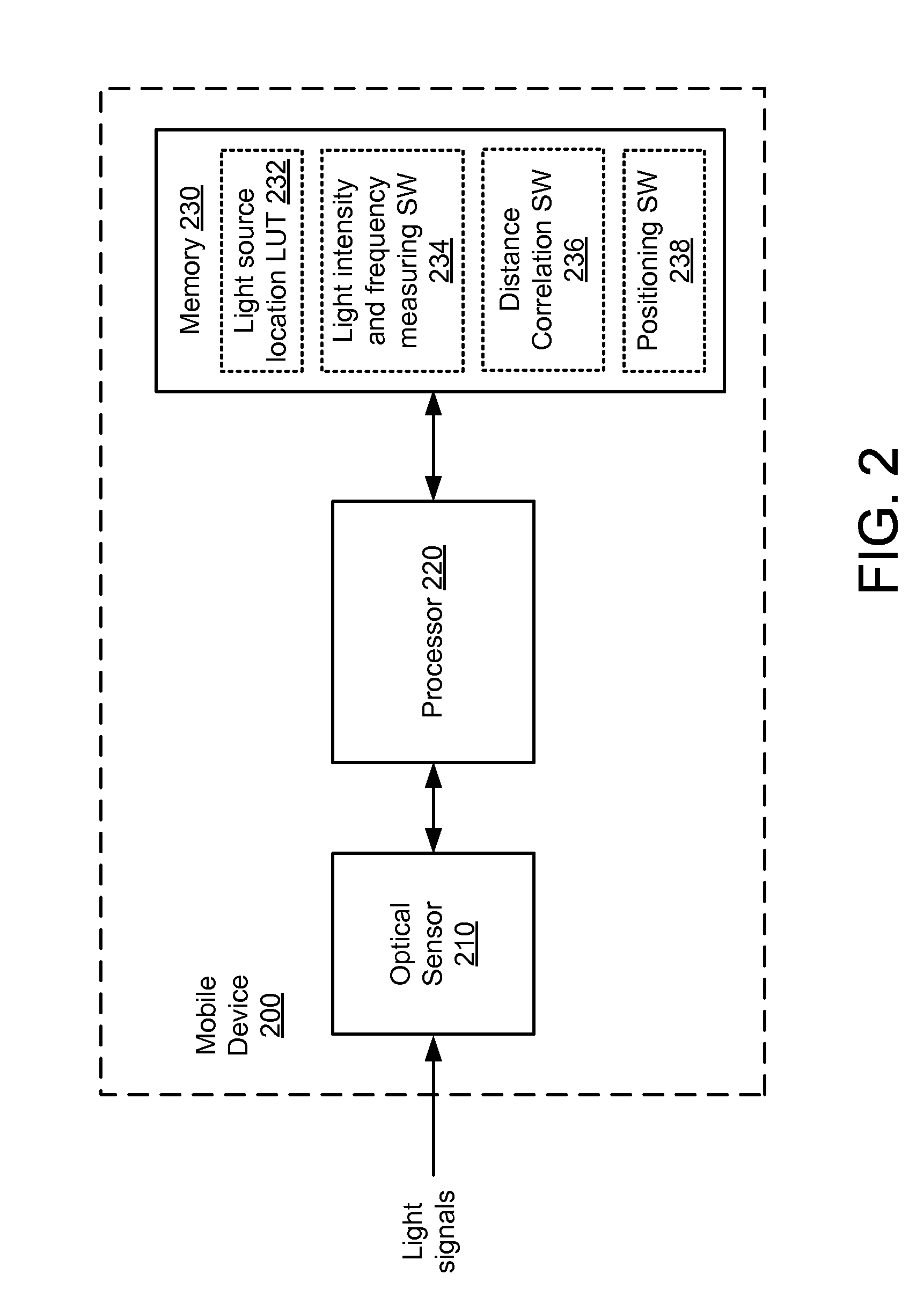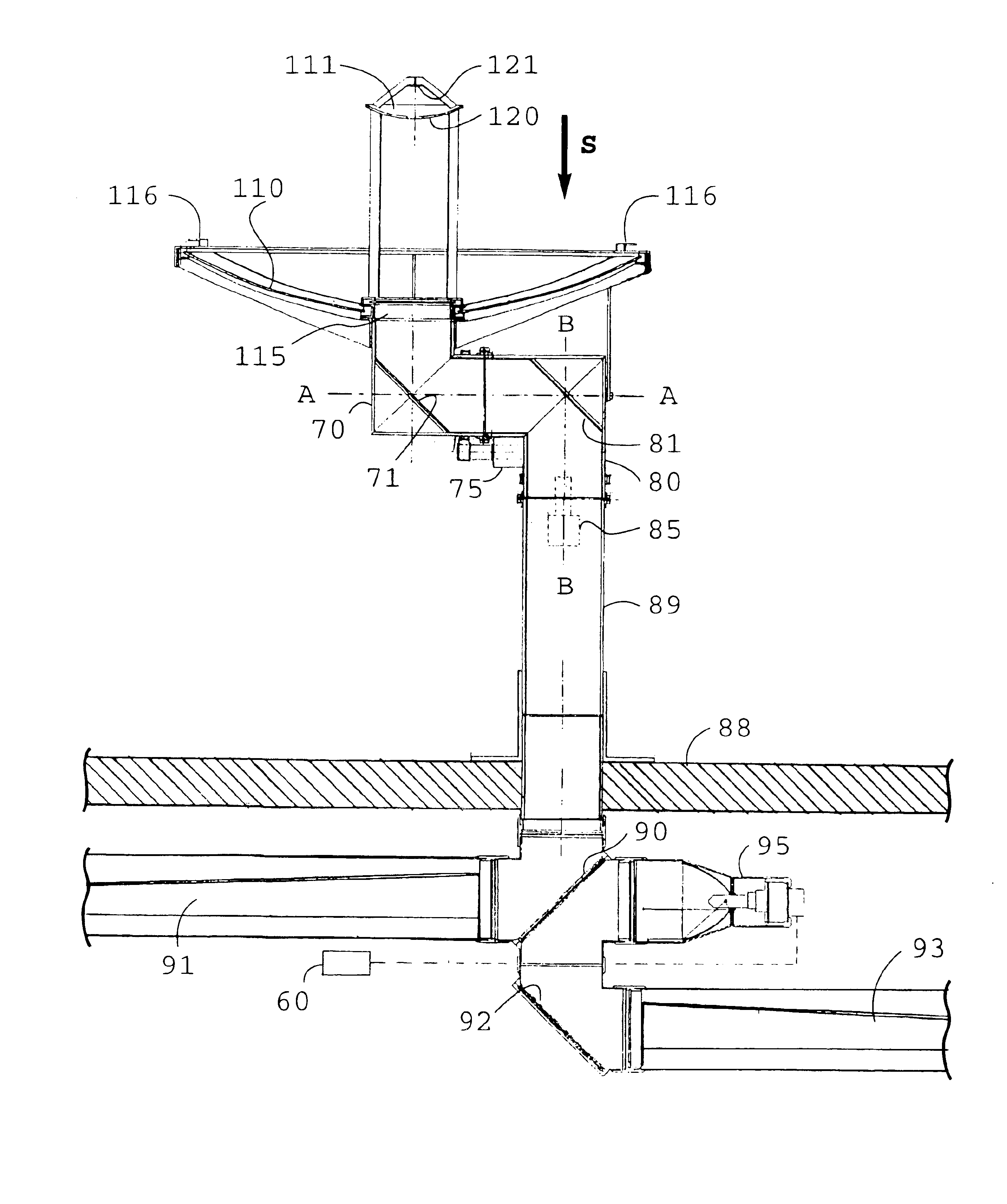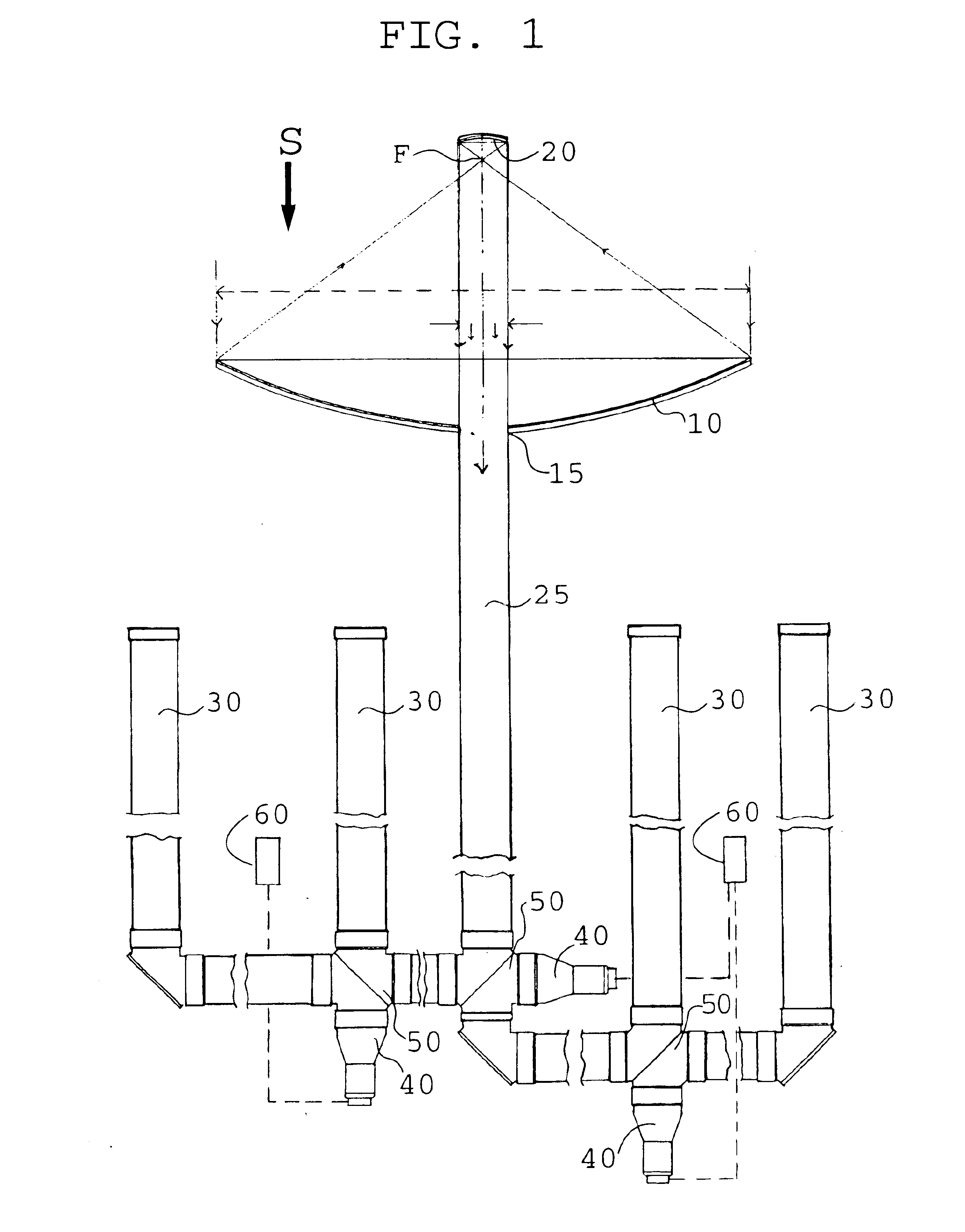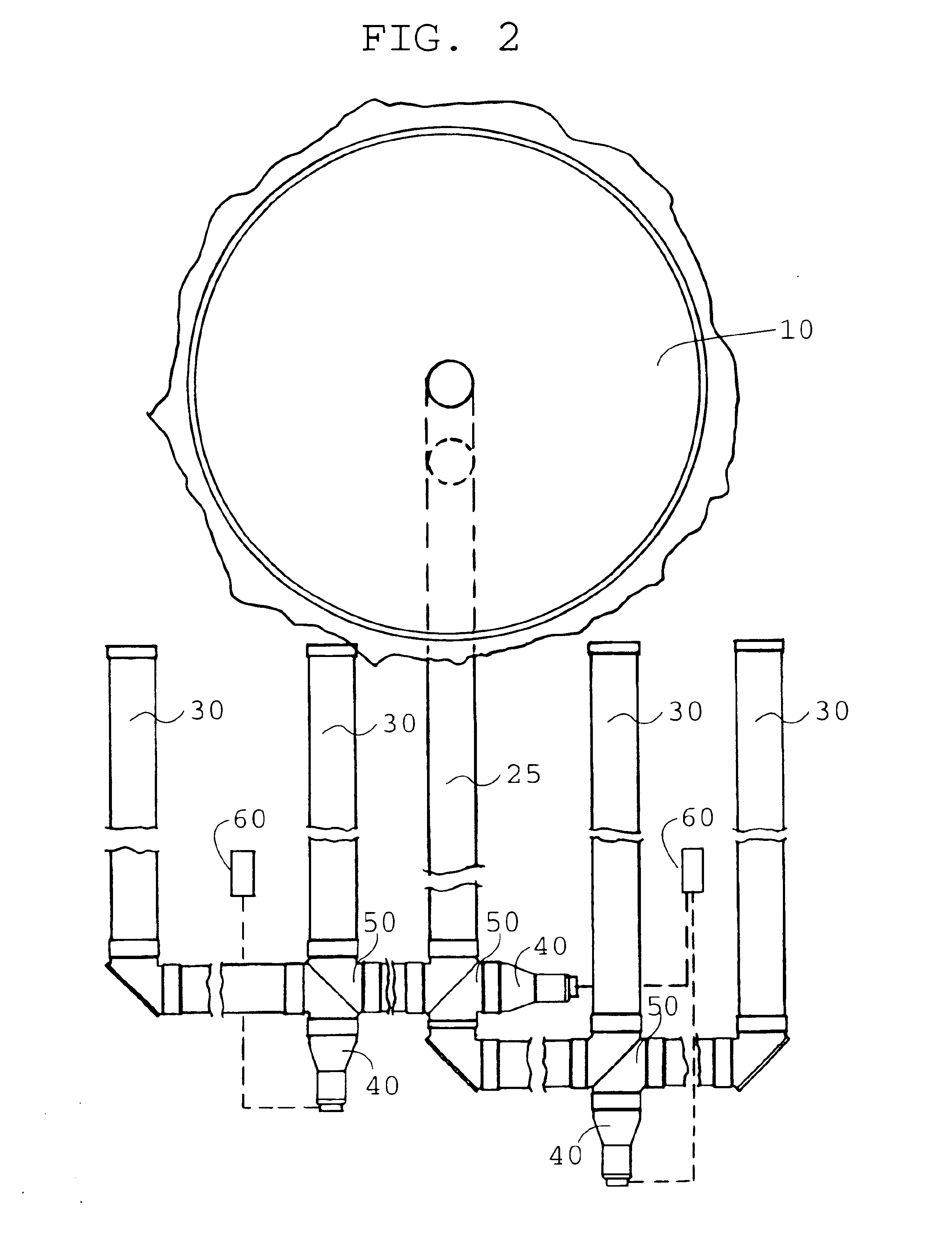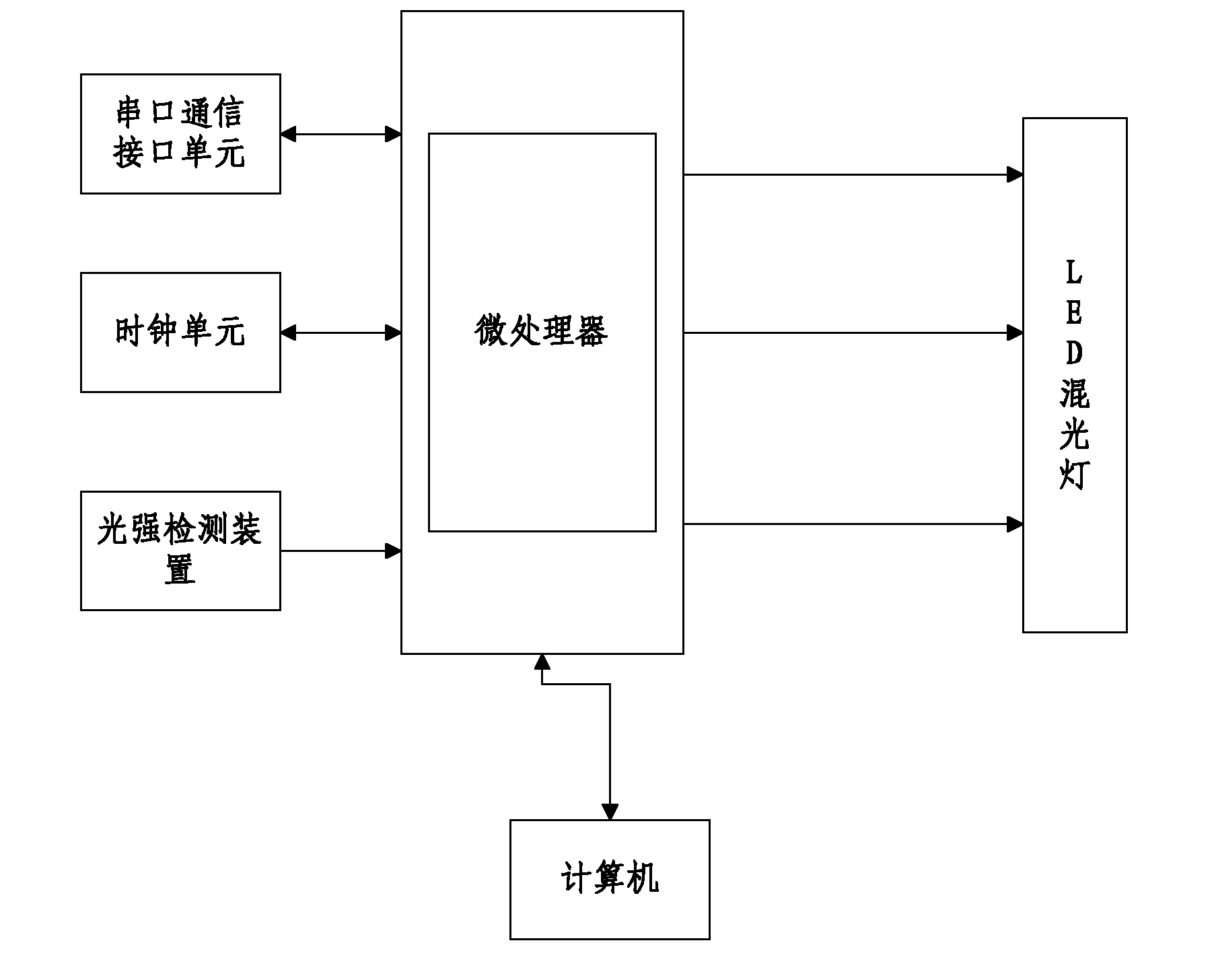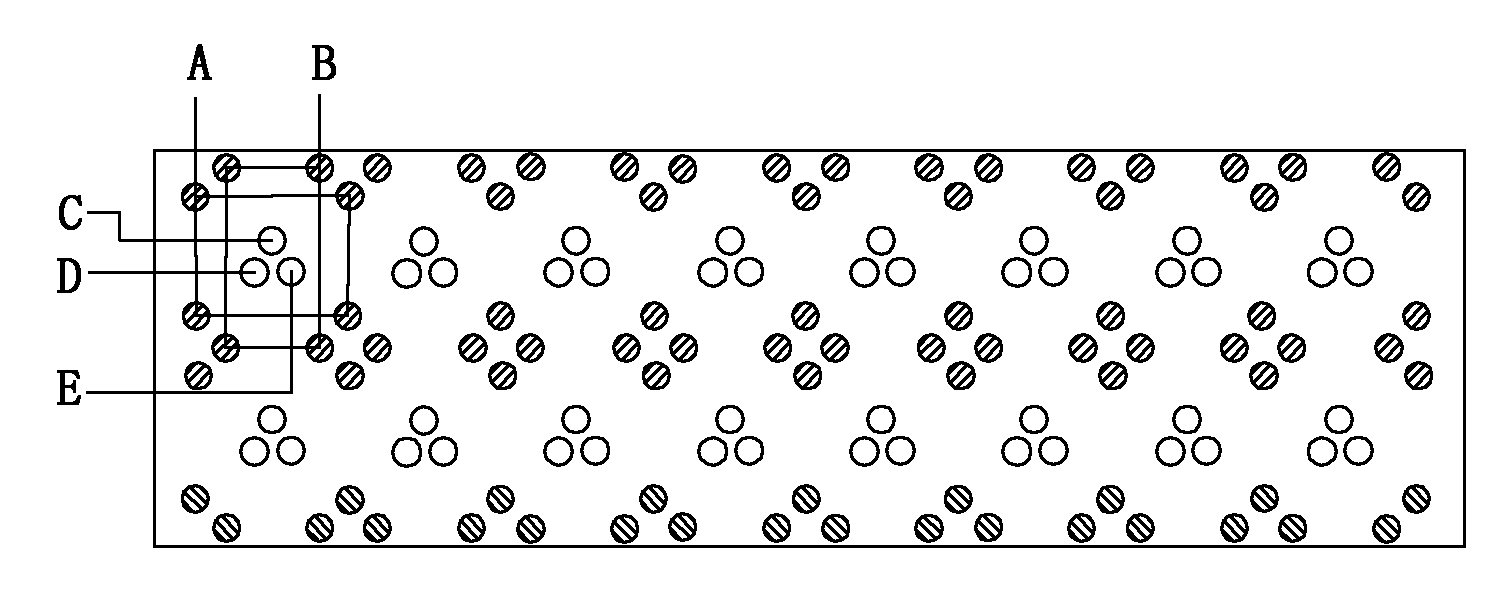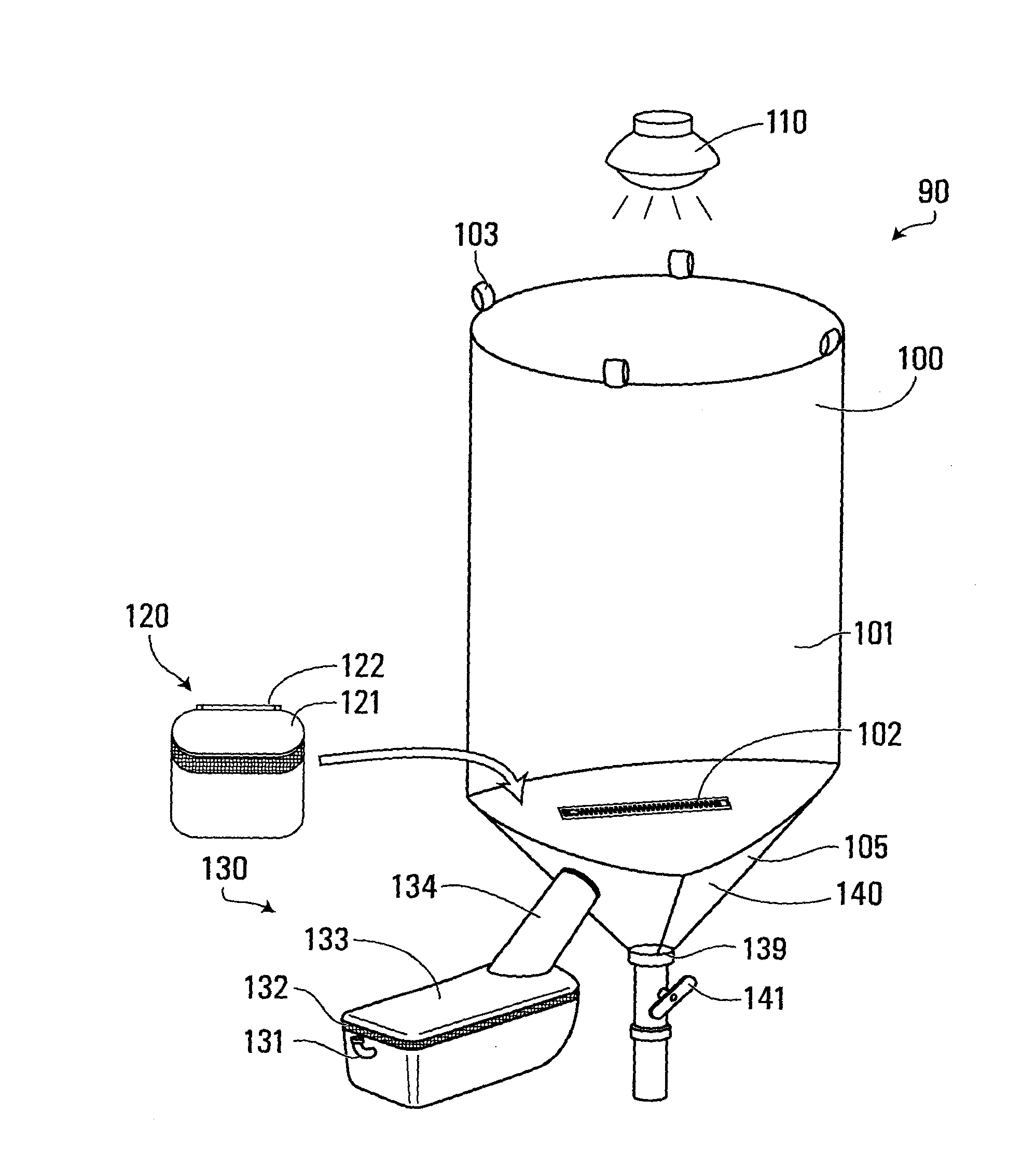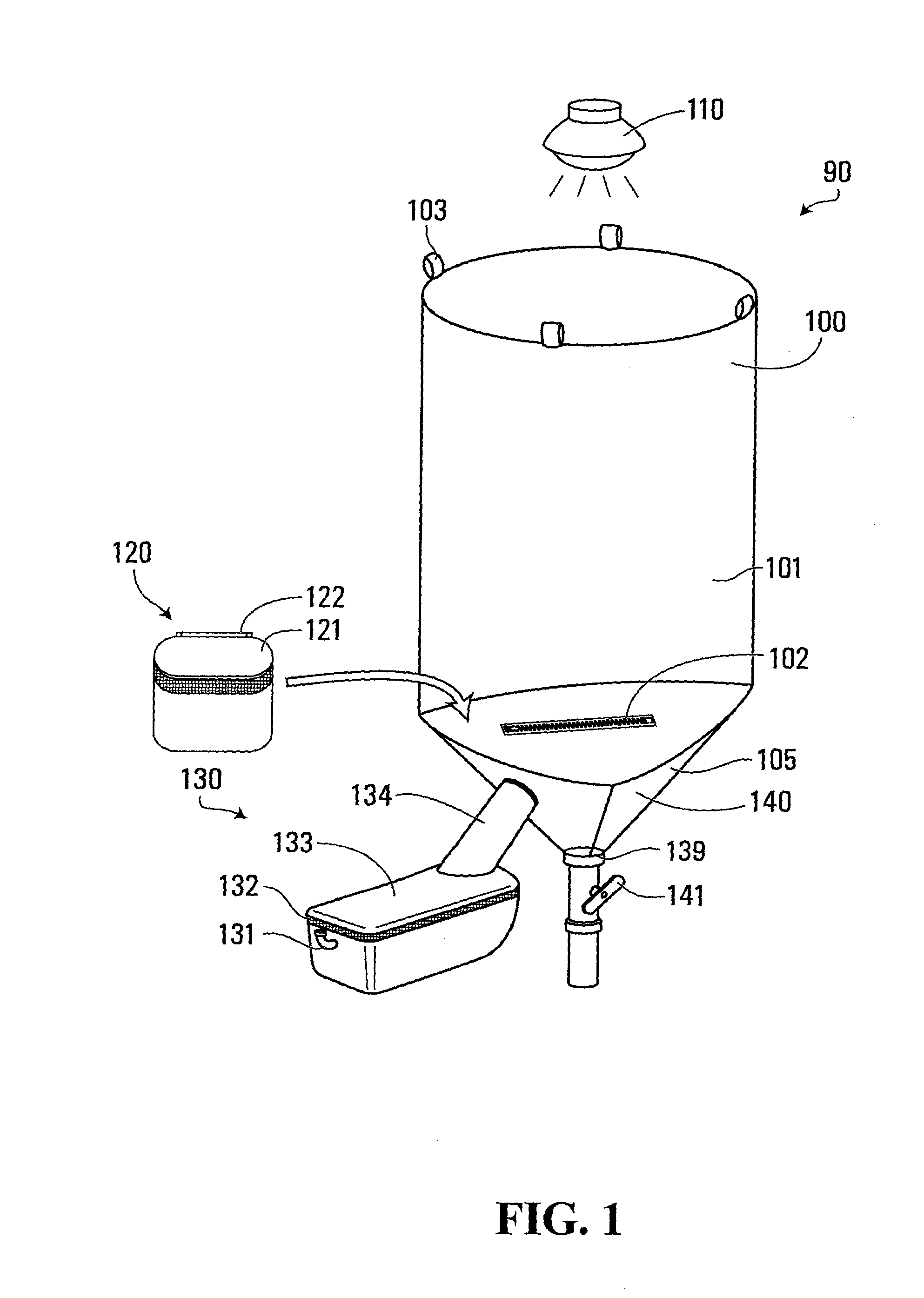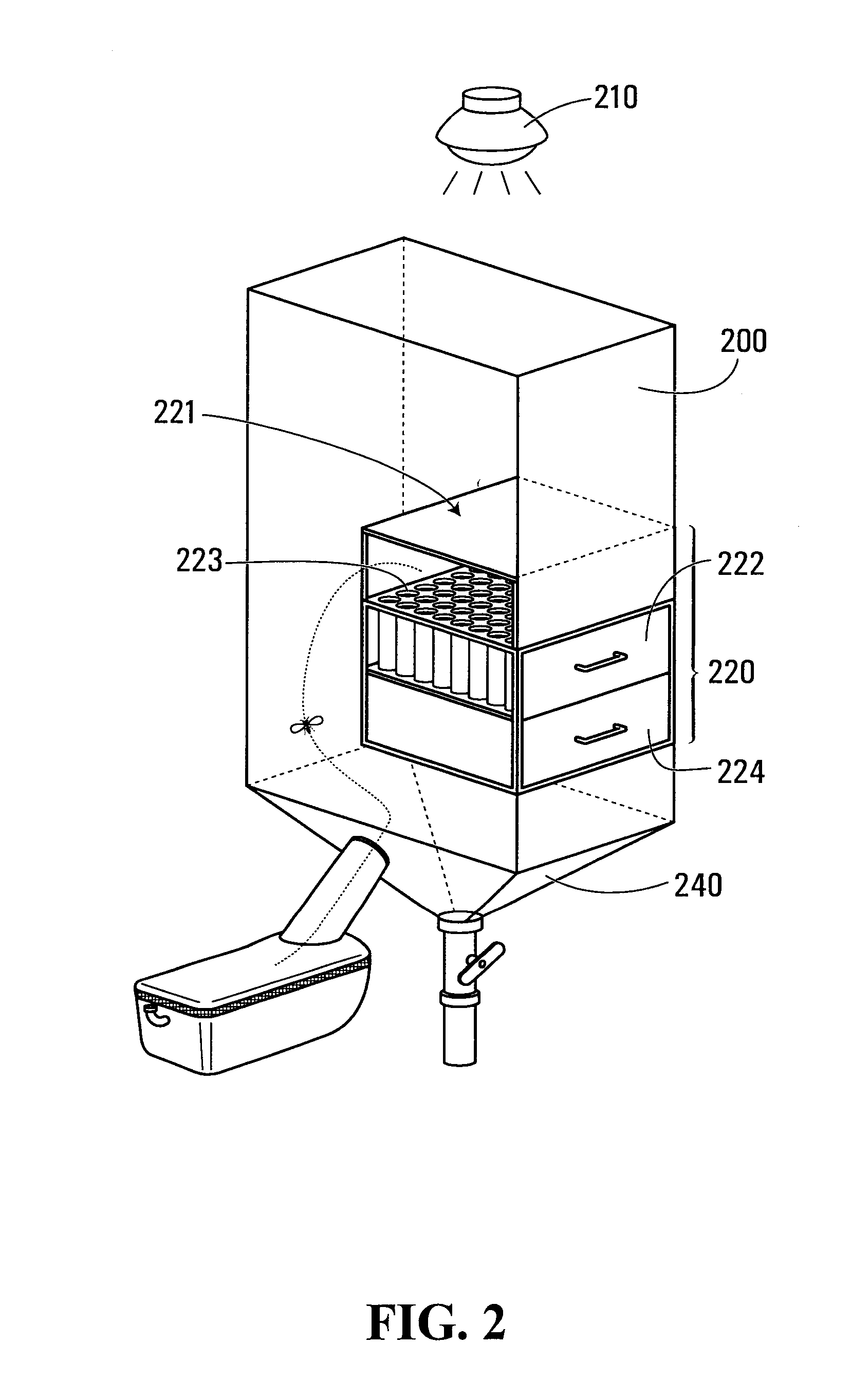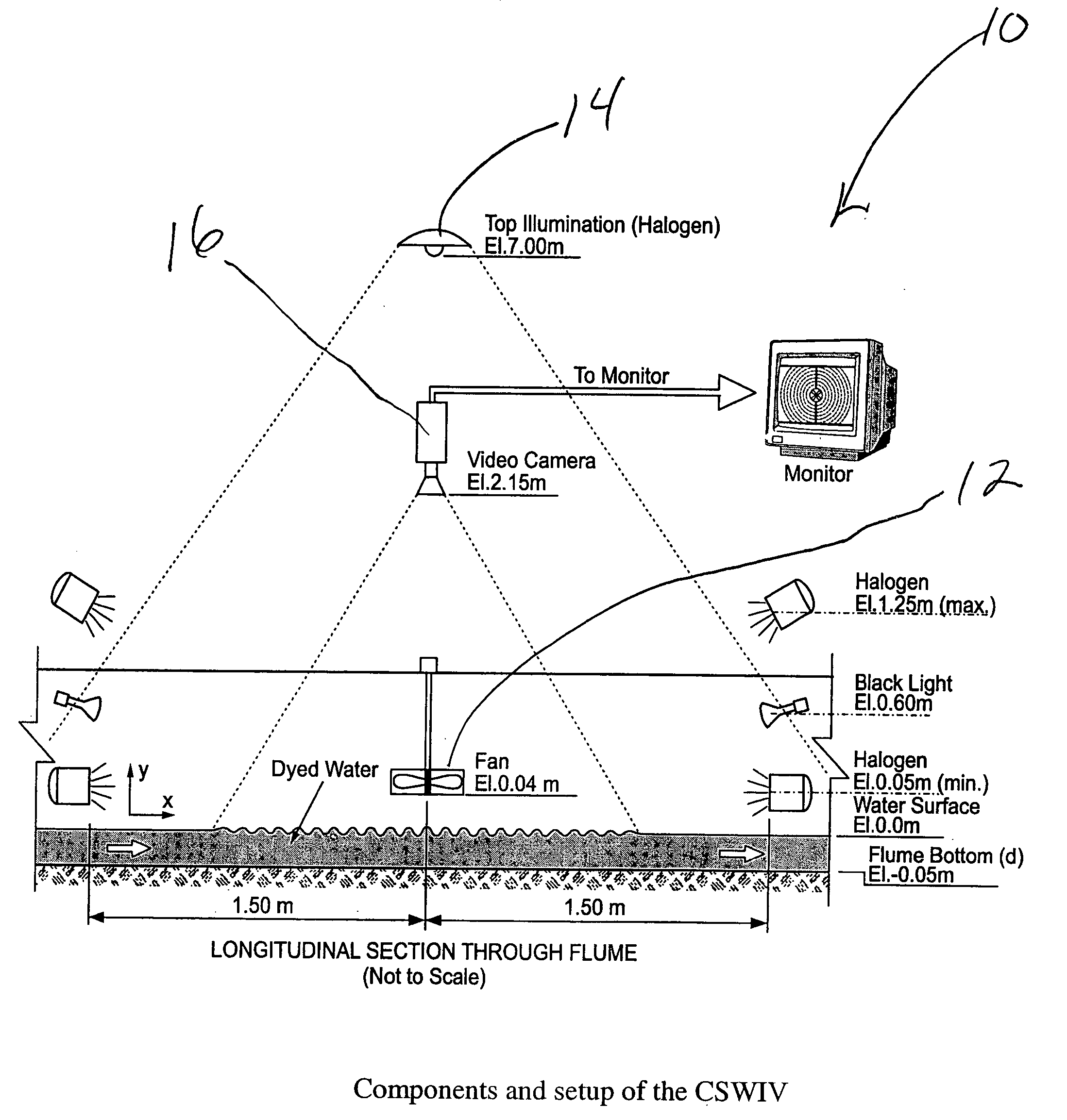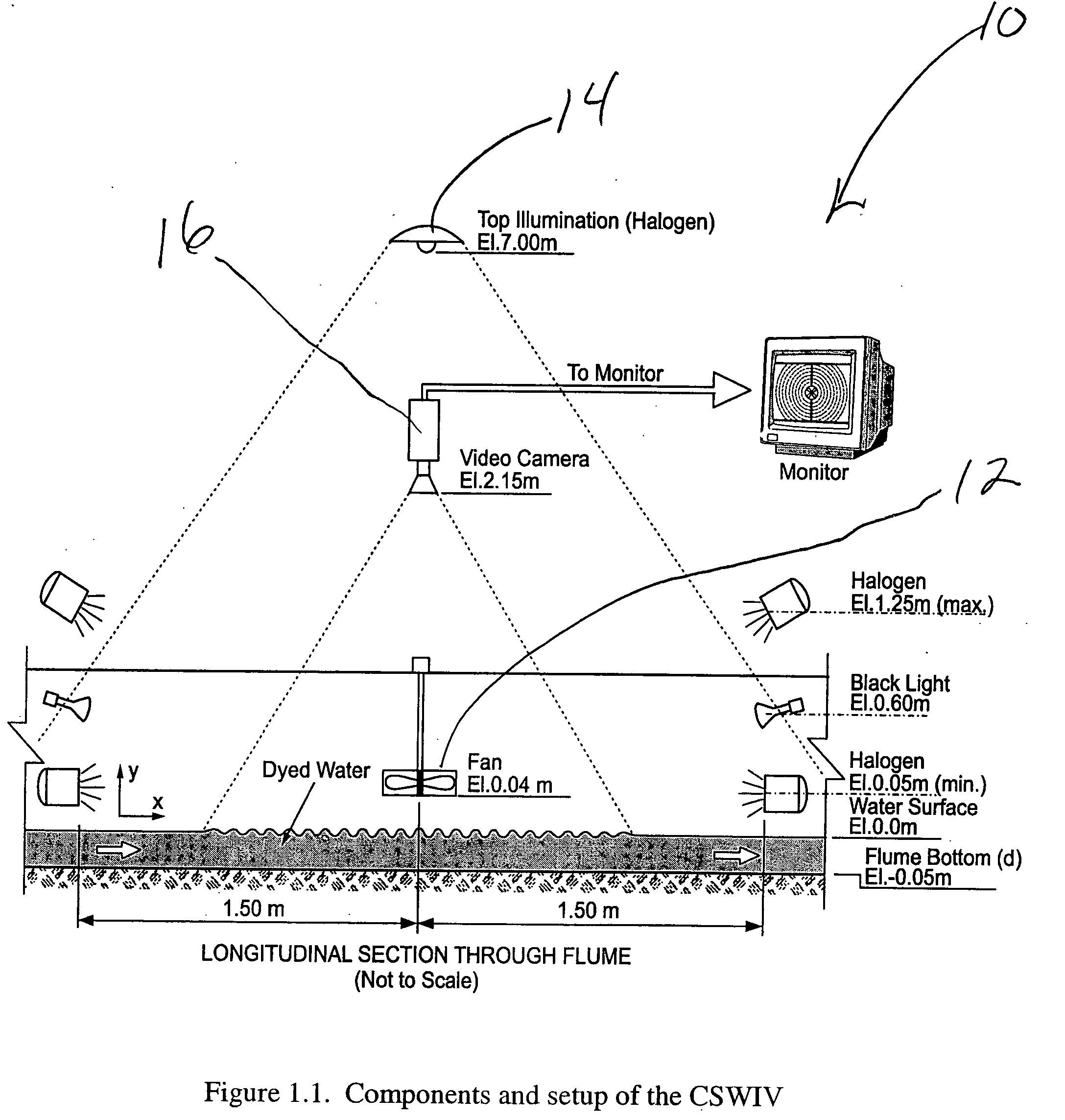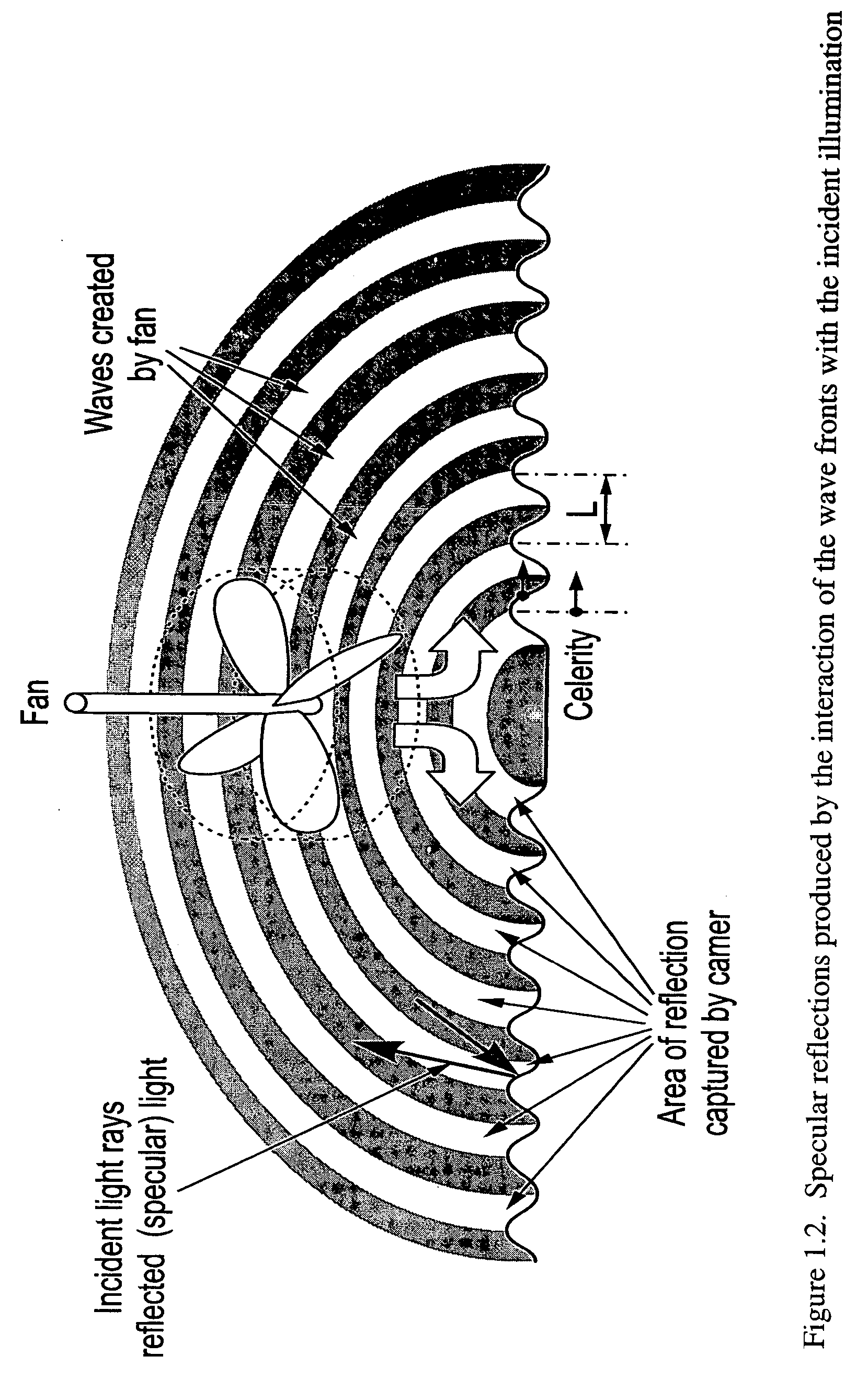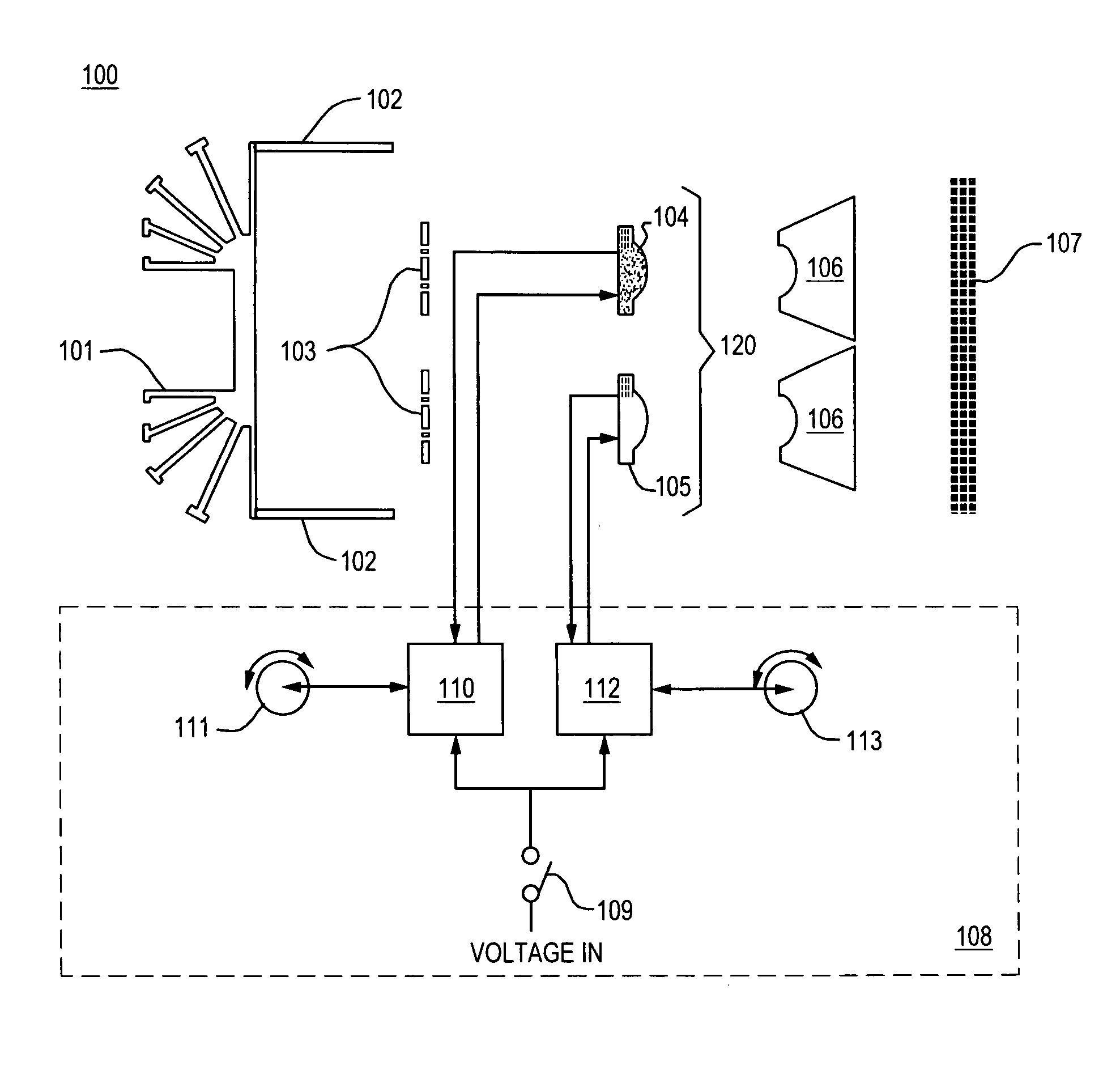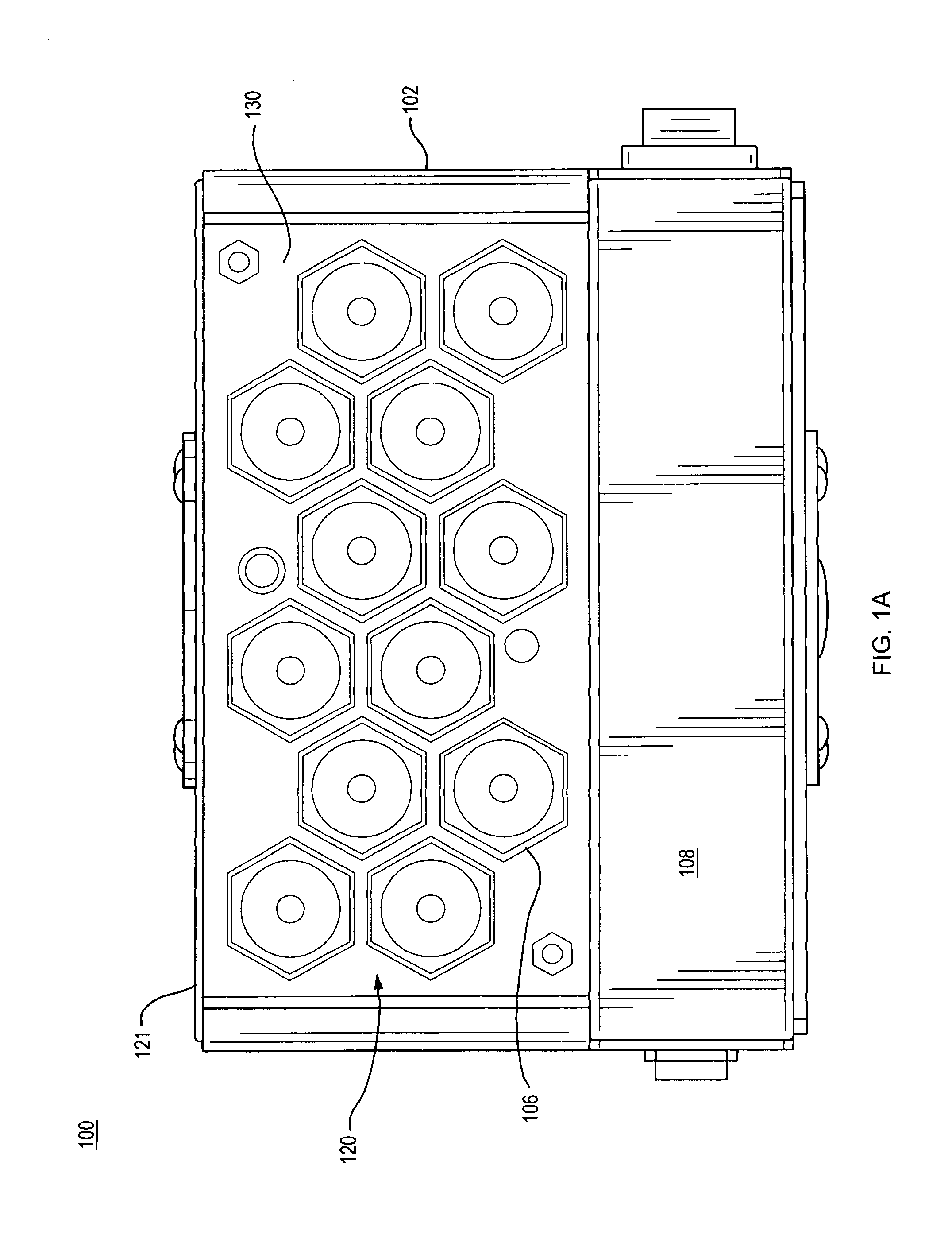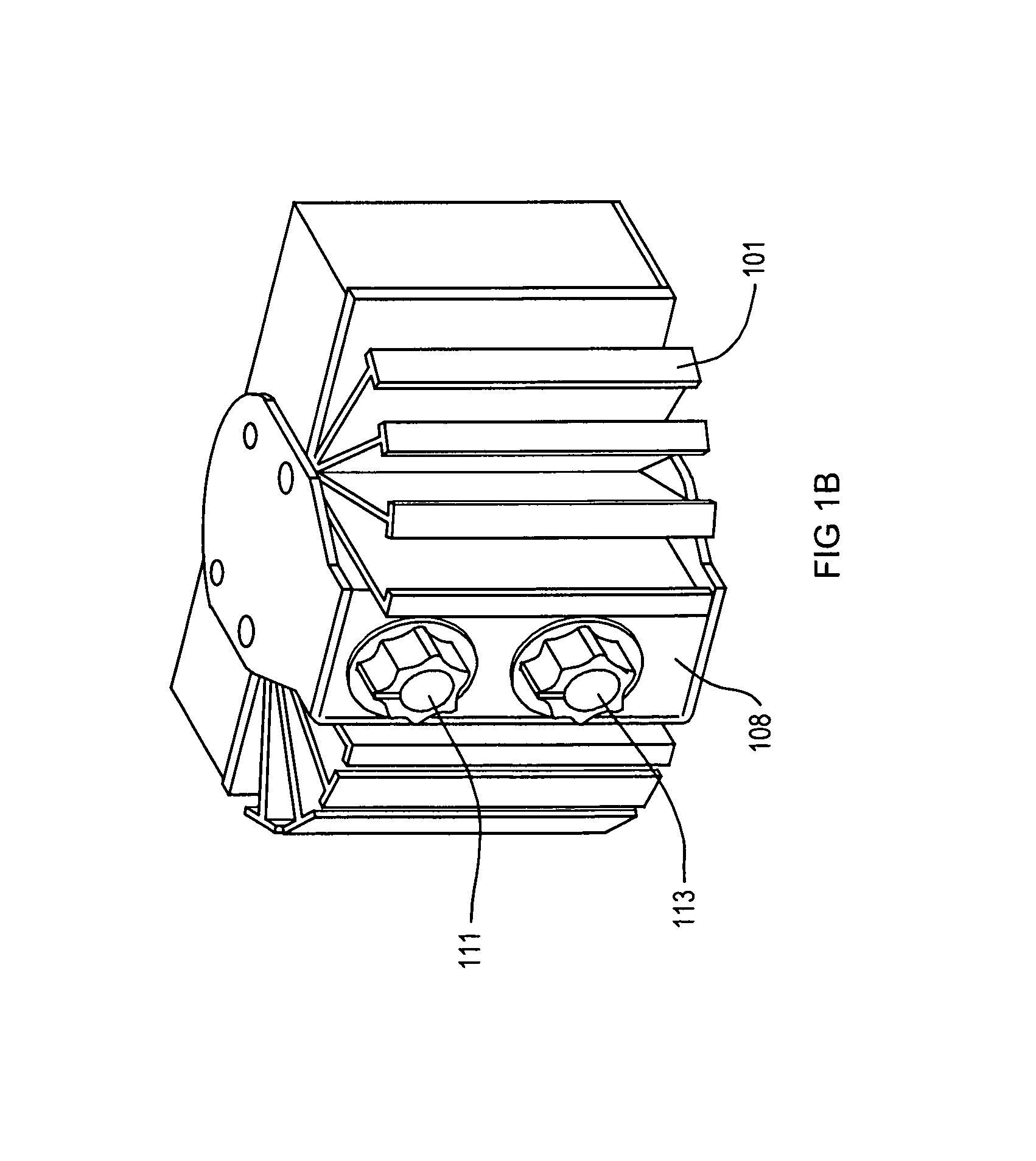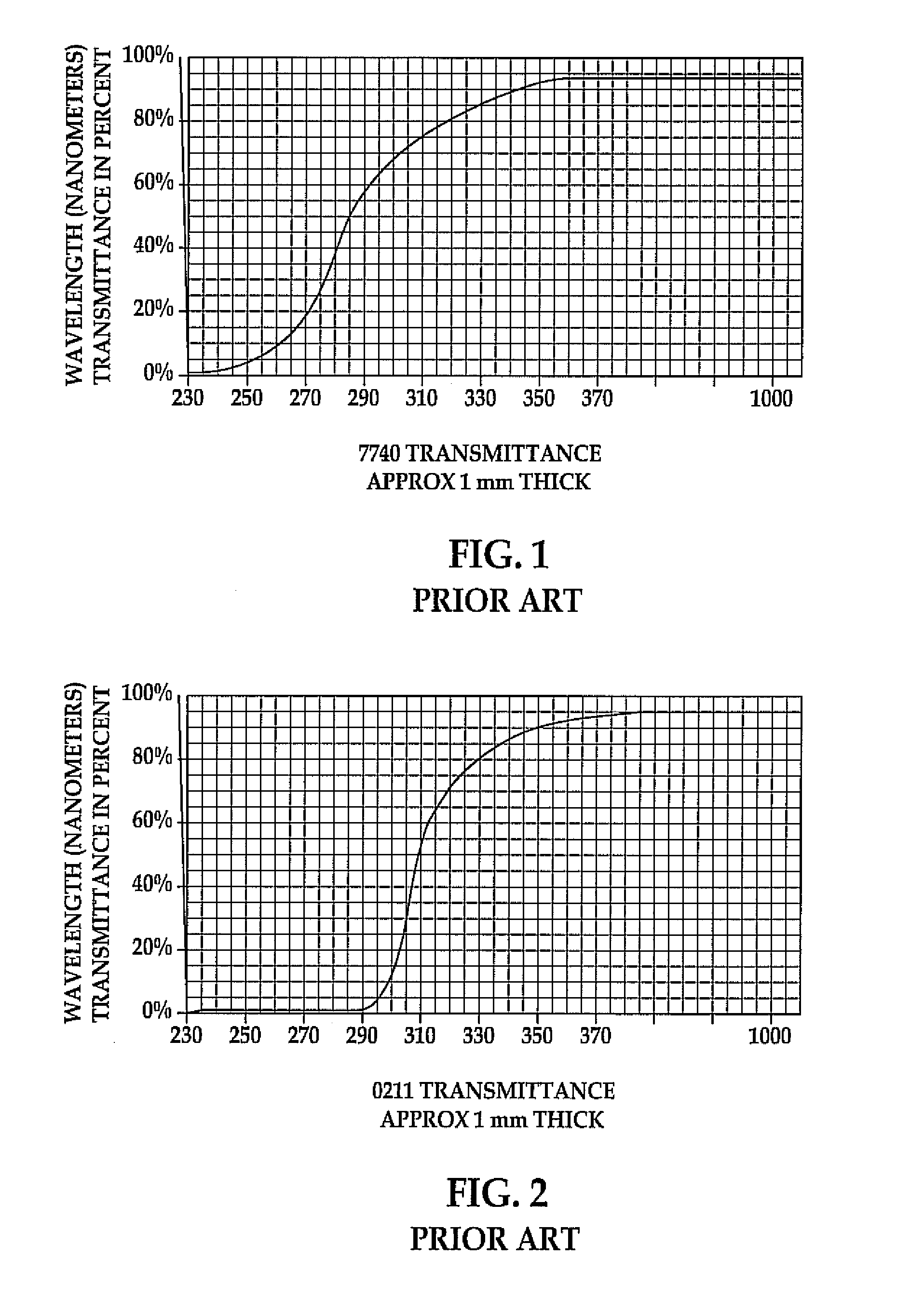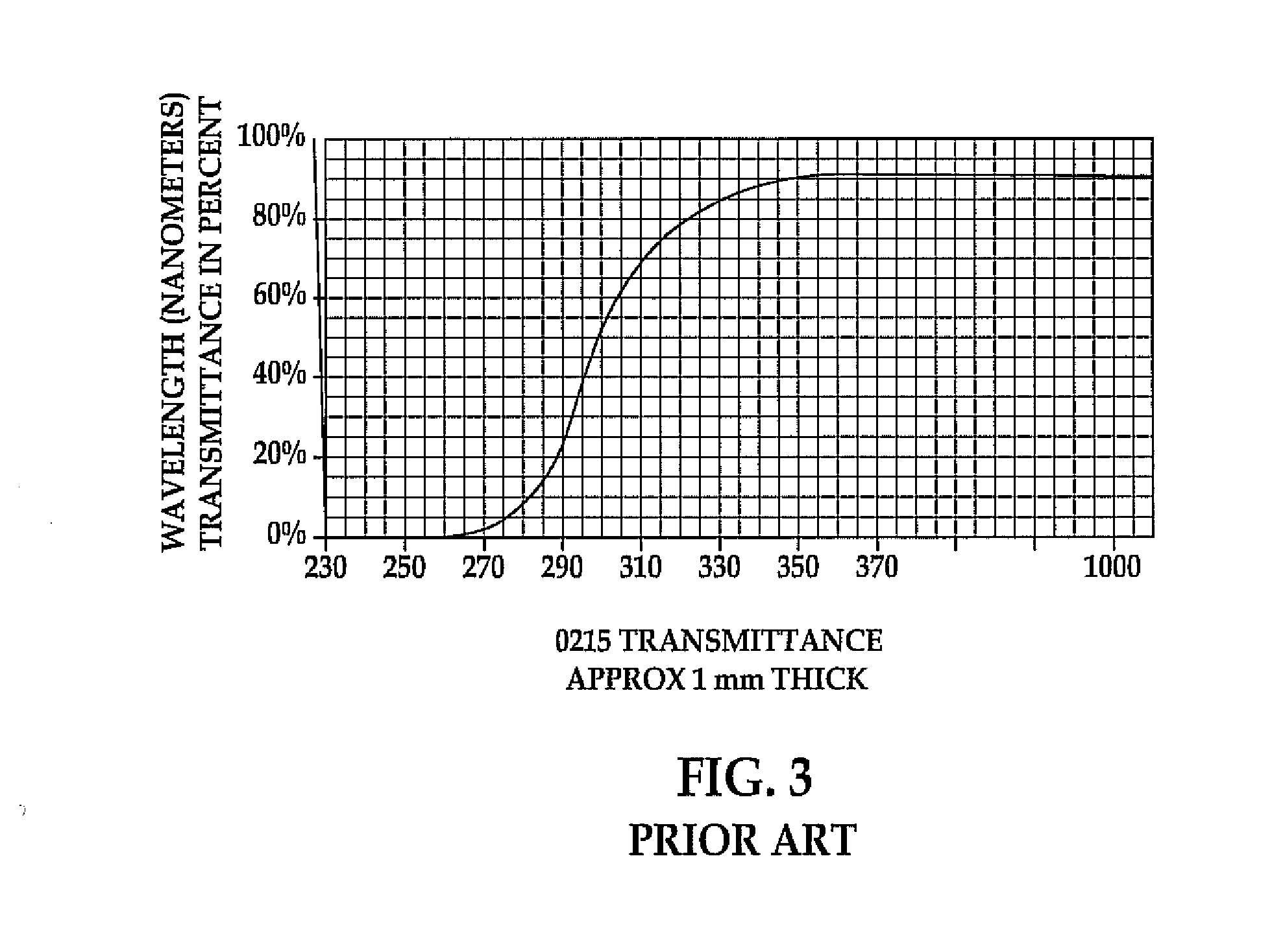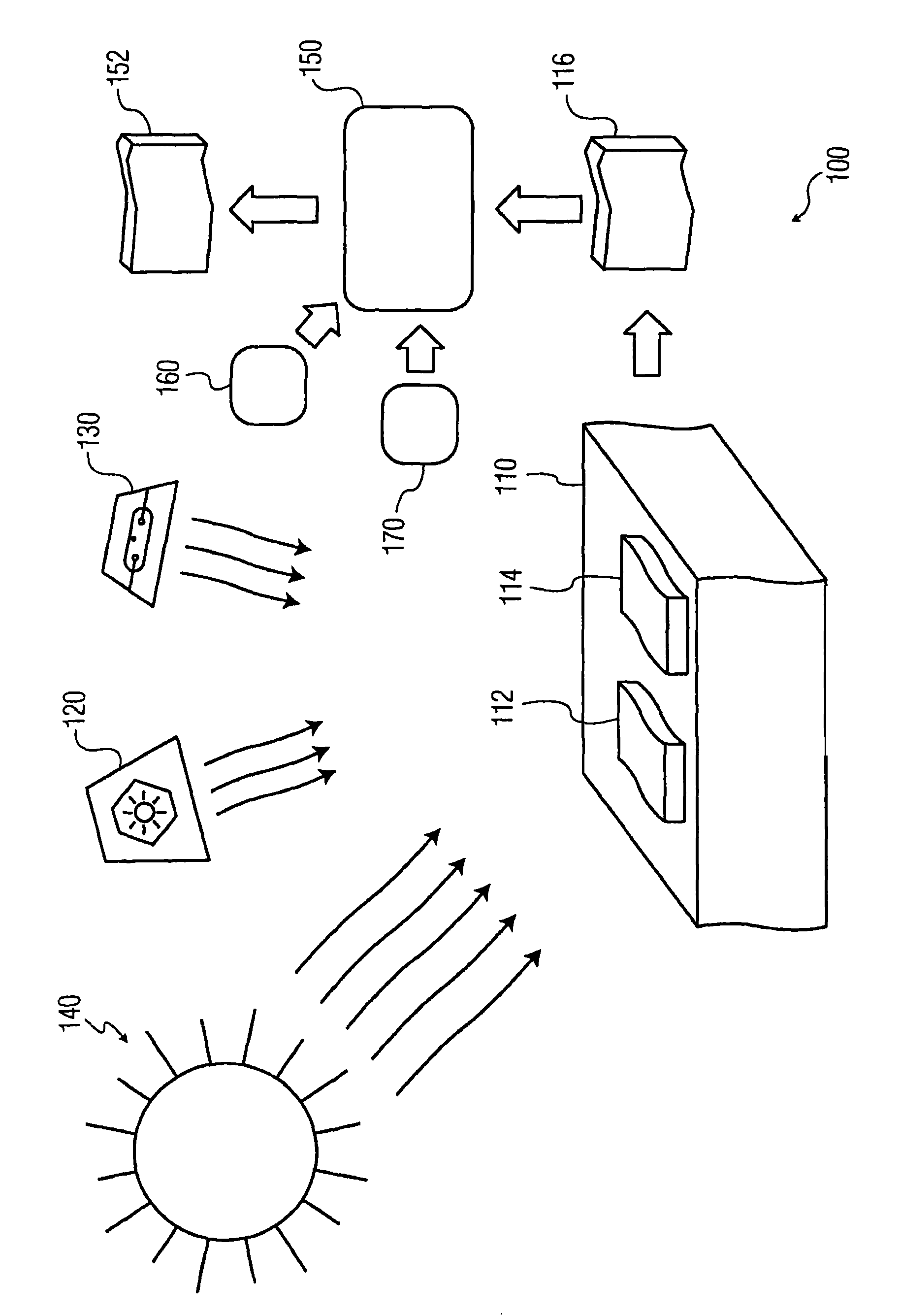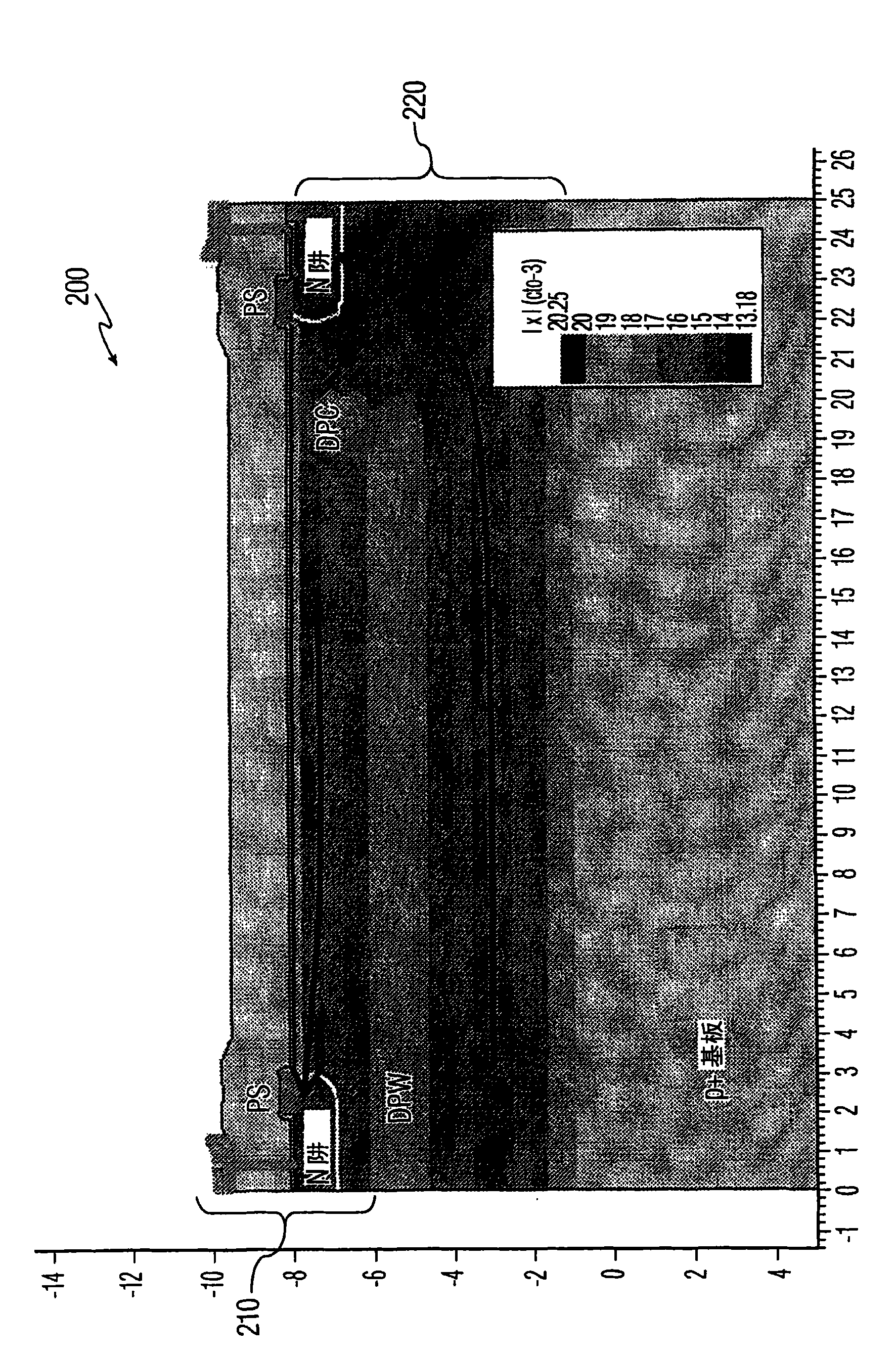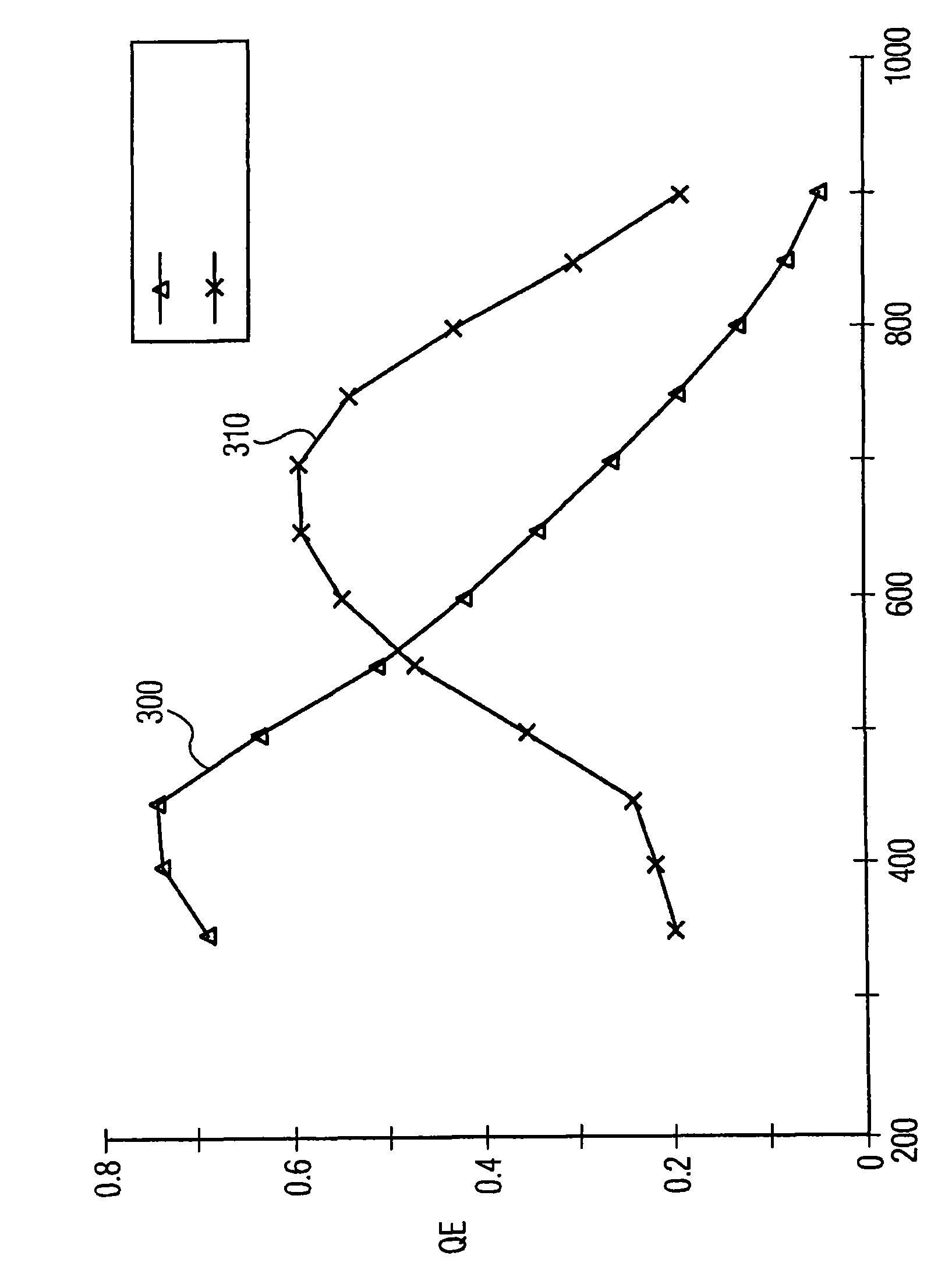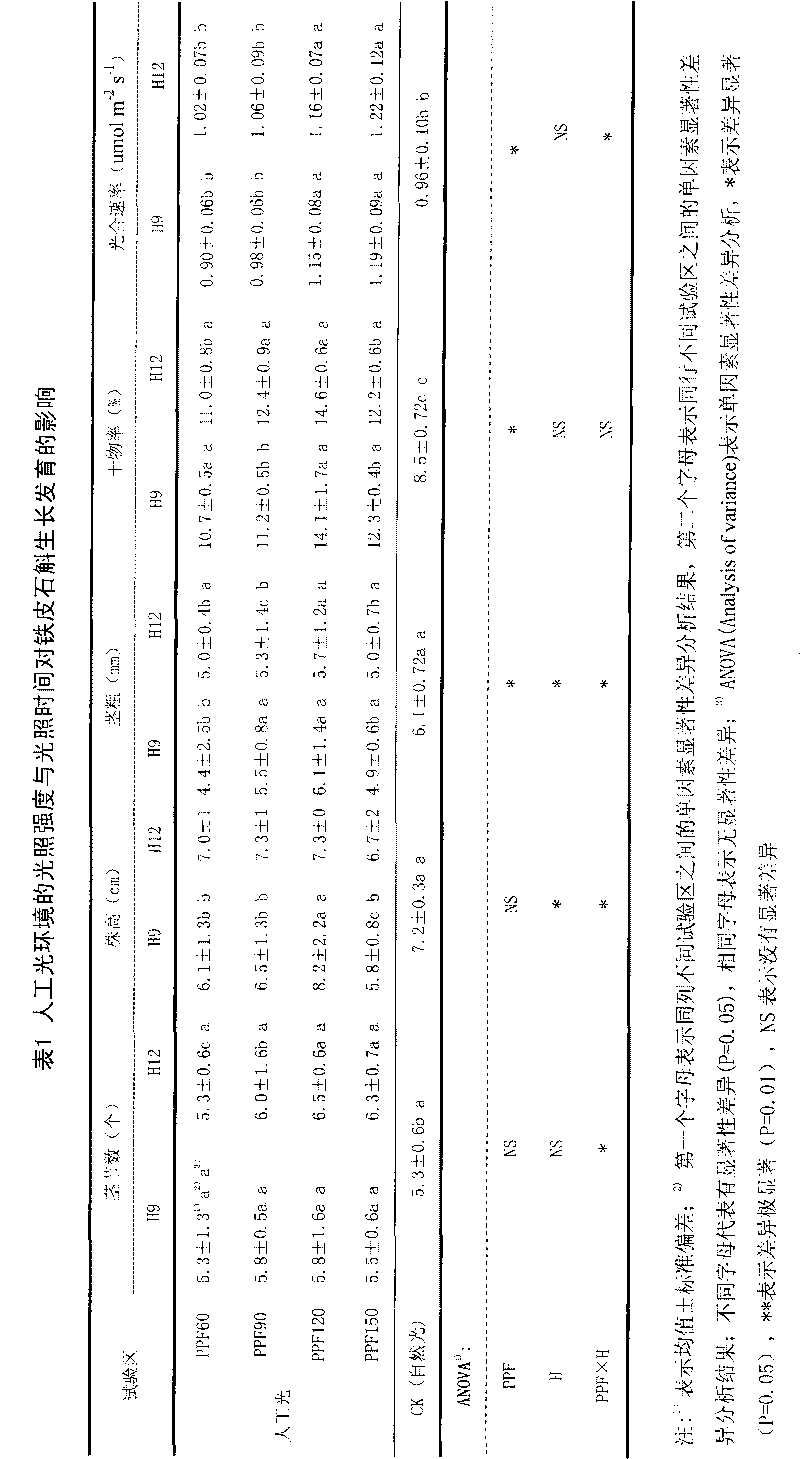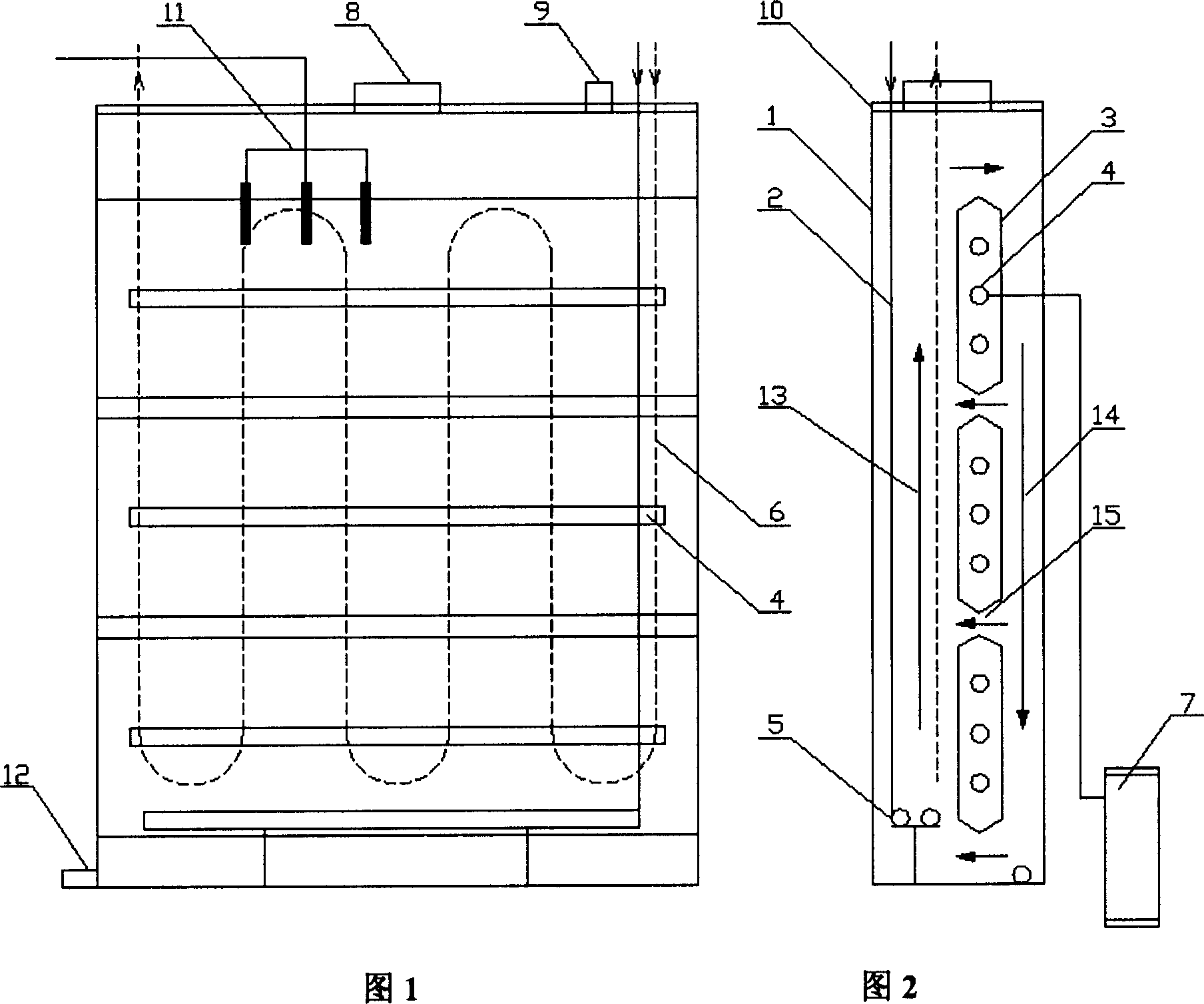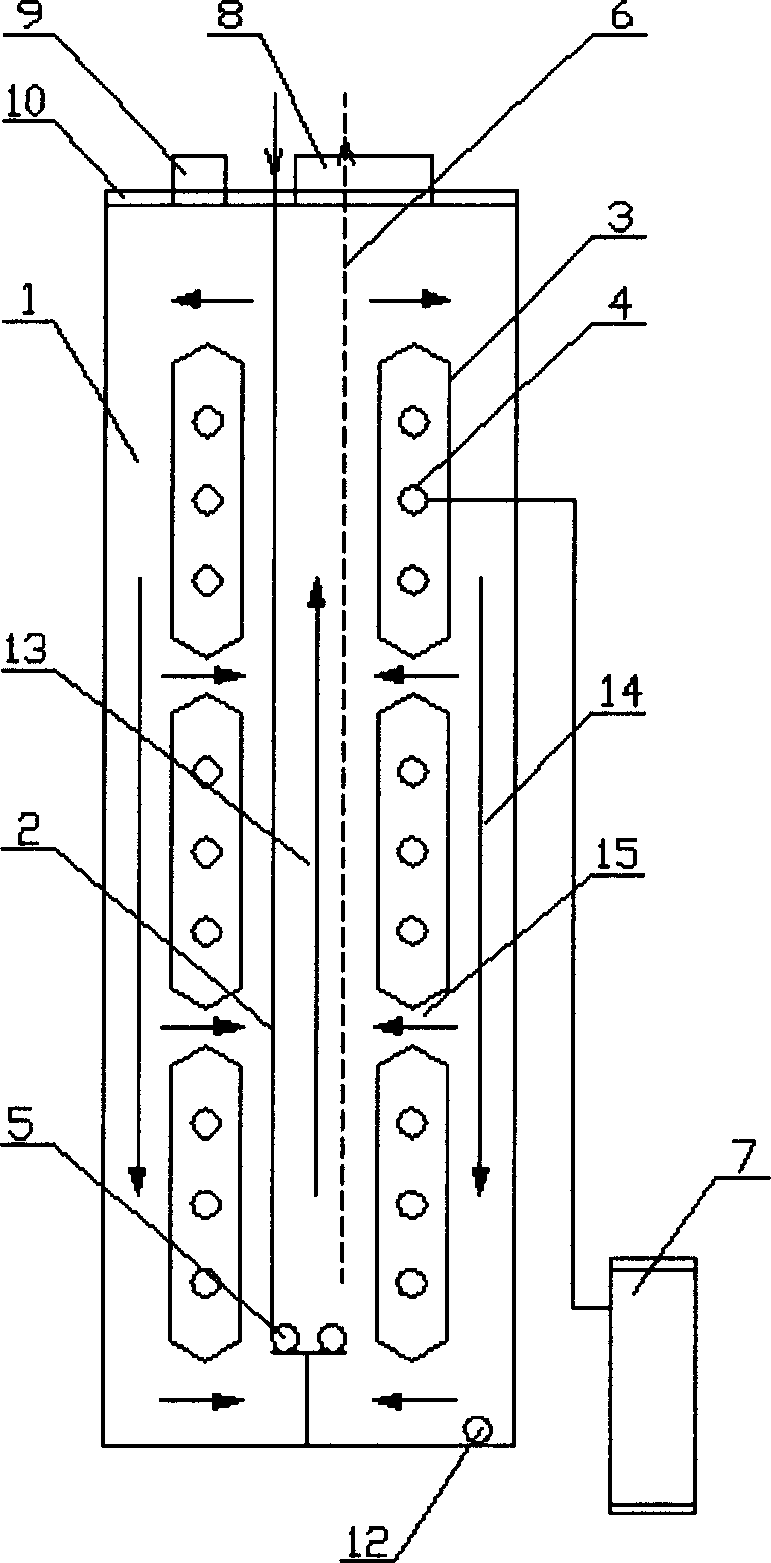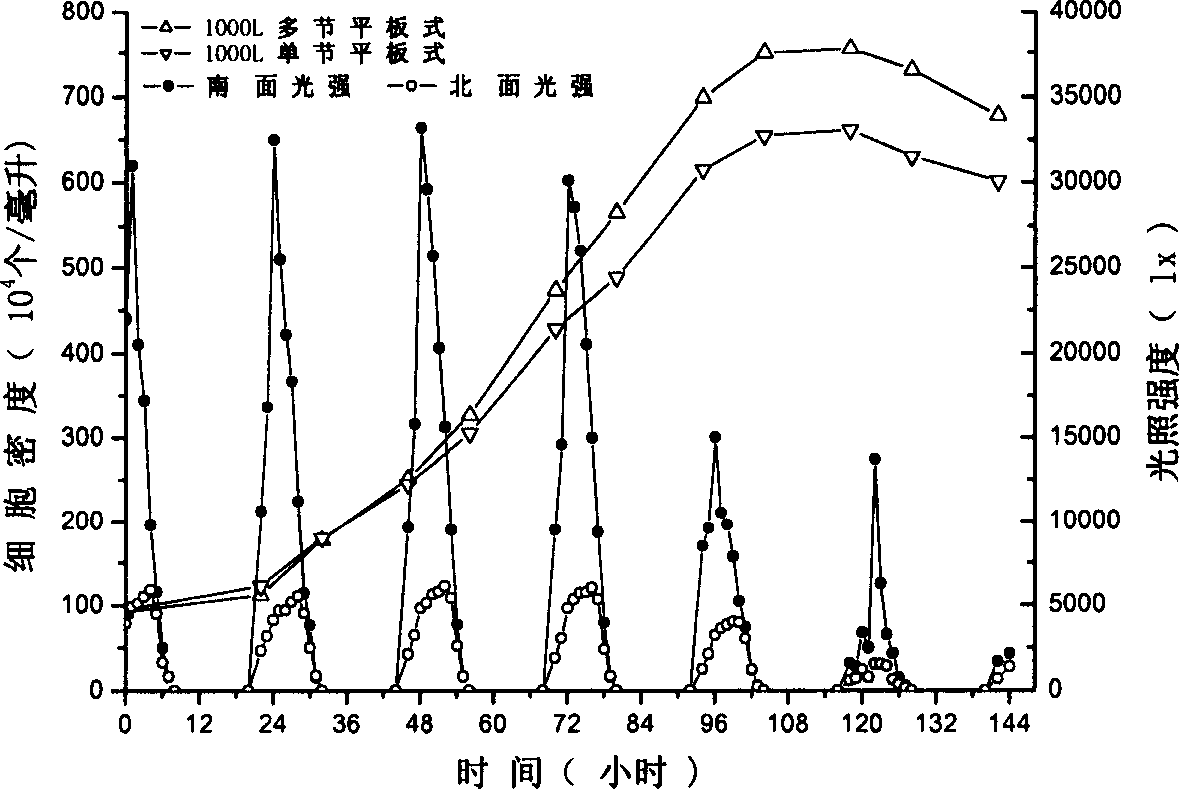Patents
Literature
Hiro is an intelligent assistant for R&D personnel, combined with Patent DNA, to facilitate innovative research.
897 results about "Artificial light" patented technology
Efficacy Topic
Property
Owner
Technical Advancement
Application Domain
Technology Topic
Technology Field Word
Patent Country/Region
Patent Type
Patent Status
Application Year
Inventor
System to control daylight and artificial illumination and sun glare in a space
ActiveUS20050110416A1Reduce system costEliminate needLight dependant control systemsElectrical apparatusControl systemElectric light
An illumination maintenance system for maintaining a desired illumination profile in a space throughout at least a portion of a day where the illumination sources include daylight and artificial light, the system comprising a first sensor for sensing an illumination level in at least a portion of the space, at least one window treatment for at least one opening for allowing daylight into the space, the window treatment selectively altering the amount of daylight entering the space, a plurality of electric lamps providing artificial light to supplement the daylight illumination of the space; the electric lamps being dimmable, a control system controlling the at least one window treatment and the plurality of electric lamps to maintain the desired illumination profile in the space, the control system controlling the plurality of electric lamps so that the dimming level of each lamp is adjusted to achieve the desired lighting profile and compensate for the daylight illumination in the space throughout at least the portion of the day; and the control system further operating to adjust the window treatment in the event of sun glare through the opening to reduce the sun glare and such that when the desired illumination profile within a defined tolerance is achieved, the control system stops varying the dimming levels of the lamps and the adjustment of the at least one window treatment.
Owner:LUTRON TECH CO LLC
Illumination systems, devices, and methods for biomass production
InactiveUS20090148931A1Sufficient amountMore energySolar heating energyBioreactor/fermenter combinationsLight energyLighting system
Illumination systems, devices, and methods for cultivating biomasses. A bioreactor system is operable for growing photosynthetic organisms. The bioreactor system includes a bioreactor and an illumination system. The illumination system includes one more optical waveguides configured to light at least some of a plurality of photosynthetic organisms retained in the bioreactor. In some embodiments, the one or more optical waveguides include a plurality of structures configured to direct light energy from a solar energy collector, and a plurality of artificial light sources, along the interior of the waveguide. In some embodiments, the one more optical waveguides include a plurality of light-diffusing structures configured to guide at least a portion of the light from the solar energy collector and a plurality of artificial light sources directed along the interior of the waveguide, to the exterior of the waveguide.
Owner:BIONAVITAS
System to control daylight and artificial illumination and sun glare in a space
ActiveUS7111952B2Eliminate needEasy to controlLight dependant control systemsElectrical apparatusControl systemEffect light
An illumination maintenance system for maintaining a desired illumination profile in a space throughout at least a portion of a day where the illumination sources include daylight and artificial light, the system comprising a first sensor for sensing an illumination level in at least a portion of the space, at least one window treatment for at least one opening for allowing daylight into the space, the window treatment selectively altering the amount of daylight entering the space, a plurality of electric lamps providing artificial light to supplement the daylight illumination of the space; the electric lamps being dimmable, a control system controlling the at least one window treatment and the plurality of electric lamps to maintain the desired illumination profile in the space, the control system controlling the plurality of electric lamps so that the dimming level of each lamp is adjusted to achieve the desired lighting profile and compensate for the daylight illumination in the space throughout at least the portion of the day; and the control system further operating to adjust the window treatment in the event of sun glare through the opening to reduce the sun glare and such that when the desired illumination profile within a defined tolerance is achieved, the control system stops varying the dimming levels of the lamps and the adjustment of the at least one window treatment.
Owner:LUTRON TECH CO LLC
Devices and methods for growing plants
InactiveUS20090151248A1Agriculture gas emission reductionCultivating equipmentsGuide tubeSurface cover
A countertop gardening appliance can include a base sized and dimensioned to fit on a countertop, a vessel removably supported by the base, the vessel defining a closed lower portion for storing a liquid, and an open upper portion, a gas diffuser located in the vessel, a gas pump located within the base, a conduit connecting the gas pump to the gas diffuser, a one-way valve in fluid communication with the conduit, a growing surface covering the open upper portion of the vessel, the growing surface including a receptacle adapted to receive a seed cartridge, a liquid level gauge indicating a level of the liquid in the vessel, a hood supported above the growing surface by a support arm connected to the base, the hood including an artificial light source, and a controller located within the base, the controller adapted to activate the artificial light source and the gas pump on predetermined time cycles.
Owner:AEROGROW INT
Closed type fully using artificial light environment controlled plant factory
ActiveCN101057550AControl light timeControl light intensityClimate change adaptationSaving energy measuresAir cycleEngineering
The invention discloses an environment control plant factory through seal-typed artificial light, which comprises the following parts: fender structure, air circulating system, temperature adjusting system, moisture adjusting system, CO2 supplying system, light supplying system, control system based on inserted network technique and automatic power-metering system, wherein the systems are seal, heat-proof and light-tight, which provides clean and fitful growing environment for plant. The invention saves cost and energy consumption, which realizes normalized and standardized cultivating management and planning manufacturing.
Owner:CHINA AGRI UNIV
Fiber optic sight for firearms with nighttime capabilities
InactiveUS7627976B1Increase the amount of lightSufficient protectionSighting devicesEpoxyNight vision
New and unique improvements of prior known fiber optic sights for firearms with day and night time capabilities are disclosed that comprise (A) a sight base, (B) a fiber optic rod mounted in said base having an angle cut at the distal end which is positioned on the underside of the rod, and (C) an artificial light insert that is positioned in a cavity in the fiber optic rod. The cavity is sealed with a fiber optic rod plug and epoxied using an optically clear epoxy. The sight provides increased light output, co-located day and night sight views with increased illumination during the day, and uses a low power tritium insert for night time use. At night the sight achieves a transition from a bright ring during the day to a small central dot at night while maintaining the same color light for both.
Owner:WILSONS GUN SHOP
Self-illuminated sighting device
An illuminated sighting device includes a capsule with an integrally formed lens that is adapted to face rearwardly for viewing by a user. An elongate light collector is positioned within the hollow interior of the capsule and is formed such that light can be gathered along its length and transmitted to its ends. One of the light collector ends is located adjacent to the first lens and defines a sight point or dot. An artificial light source is located within the capsule hollow interior and is oriented for projecting radiant energy into the second light collector end so that the sight point is viewable during dark or low light conditions.
Owner:GOOD SPORTSMAN MARKETING LLC
Method for measuring positioning points based on laser tracker in docking process of airplane parts
InactiveCN102519441AImprove assembly measurement accuracyReduce work intensitySurveying instrumentsUsing optical meansJet aeroplaneObservation point
The invention discloses a method for measuring positioning points based on a laser tracker in a docking process of airplane parts. The method provided by the invention comprises the following steps of 1, establishing a model of transformation between an airplane global coordinate system and a laser tracker measure coordinate system according to common observation points, 2, acquiring current calculating positions of positioning measure points of airplane parts according to a process joint sphere centre position, and 3, controlling and driving a laser tracker to search current accurate positions of the positioning measure points of the airplane parts from the current calculating positions according to a cross helical search method and to carry out automatic measure. The method provided by the invention has the advantages that 1, an advanced laser measure technology is adopted so that the airplane assembling measure precision is improved; and 2, a measure process does not need artificial light introduction and full automatic search measure of a docking assembling process is realized according to an algorithm so that working efficiency and measure precision are greatly improved and working strength of workers is reduced.
Owner:NANJING UNIV OF AERONAUTICS & ASTRONAUTICS
Artificial light apparatus and its use for influencing a condition in a subject
InactiveUS20100217358A1Inhibition effectMedical devicesLight therapySeasonal Affective DisordersCircadian rhythm
The present invention relates to an artificial light system for modulating circadian rhythms, increasing vigilance and influencing light-associated psychological conditions such as seasonal affective disorder. The system of the invention comprises a source of a green and / or red light and a source of blue light both light sources being controlled by a computer to provide predetermined light conditions. More specifically, the computer is programmed to provide pulses of blue light and continuous or pulsed red light, to enhance the efficacy of blue light, reduce blue-light hazard and avoid stroboscopic effect.
Owner:UNIV LAVAL
LCD with power saving features
InactiveUS7110062B1Reduce power consumptionStatic indicating devicesNon-linear opticsDisplay devicePower usage
Owner:MICROSOFT TECH LICENSING LLC
Smart lighting system and method thereof
InactiveUS20120139417A1OptimizationProvide powerPlanar light sourcesPoint-like light sourceMicrocontrollerCommand and control
A programmable and remotely controlled lighting system employing LED lamps is disclosed herein. The system and methods of the present invention are ideally suited for residential or commercial buildings, court yards, business parks, universities, etc. Initially light sensors are provided to the system measuring available natural and artificial light. A system or area brightness is controlled programmably or remotely via a dimmer with PWM (pulse-width-modulated) power for reduced energy consumption. Wireless command and control is provided by microcontrollers with radio frequency transmitters and receivers. Additional circuitry is included to adequately compensate for transient input voltage. The lighting system further may be easily implemented to other systems able to be controlled by computer such as video surveillance systems and
Owner:INNOVATIVE WIRELESS TECH
Hybrid lighting system
The invention provides a lighting apparatus comprising: a) a frame spanning the roof and interior of a building, the frame having a first opening at the building roof and a second opening opposed to the first opening at the building ceiling; b) a skylight at the first opening; c) a reflective lining between the first and second openings; d) a light diffuser at the second opening; and e) at least one artificial light source located between the skylight and the diffuser; where the artificial light source is positioned at the frame periphery.
Owner:ABL IP HLDG
Lighting fixture
A ceiling mounted lighting fixture for insertion in a ceiling grid wherein the source of artificial light is a plurality of light emitting diodes.
Owner:ESMAILZADEH ASHKAN +1
Anti-Reflection Film
InactiveUS20070285776A1Improve propertiesScratch resistantPolarising elementsCoatingsProduction rateRefractive index
An anti-reflection film having a hard coat layer attaining both improvement in resistance to unevenness in interference under an artificial light source and solution to handling problems such as curling and brittleness and sufficient anti-reflection properties, scratch resistance and productivity is provided. The anti-reflection film includes a transparent support, a hard coat layer, and a low refractive index layer having in this order. The dry thickness of the hard coat layer is from 6 to 15 μm. The color difference of light from an artificial light source reflected by the hard coat layer between at an arbitrary point and another arbitrary point disposed 5 mm apart therefrom in the film longitudinal or crosswise direction is 2.0 or less as calculated in terms of ΔEab* value of CIE.
Owner:FUJIFILM CORP
System to control daylight and artificial illumination and sun glare in a space
ActiveCN101421558APrecise Local LightingDifferent lighting needsLight dependant control systemsElectrical apparatusControl systemLuminosity
An illumination maintenance system for maintaining a desired illumination profile in a space throughout at least a portion of a day where the illumination sources include daylight and artificial light, the system comprising a first sensor for sensing an illumination level in at least a portion of the space, at least one window treatment for at least one opening for allowing daylight into the space, the window treatment selectively altering the amount of daylight entering the space, a plurality of electric lamps providing artificial light to supplement the daylight illumination of the space; the electric lamps being dimmable, a control system controlling the at least one window treatment and the plurality of electric lamps to maintain the desired illumination profile in the space, the control system controlling the plurality of electric lamps so that the dimming level of each lamp is adjusted to achieve the desired lighting profile and compensate for the daylight illumination in the space throughout at least the portion of the day; and the control system further operating to adjust the window treatment in the event of sun glare through the opening to reduce the sun glare and such that when the desired illumination profile within a defined tolerance is achieved, the control system stops varying the dimming levels of the lamps and the adjustment of the at least one window treatment.
Owner:LUTRON ELECTRONICS CO INC
Camera-based heliostat calibration with artificial light sources
ActiveUS20100031952A1Error minimizationReduce search timeSolar heating energyPhotometry using reference valueHeliostatLight source
Systems and methods of calibrating heliostat parameters for subsequent open-loop sun-tracking, the calibration based on driving artificial light source reflections from one or more heliostats into one or more image sensors.
Owner:SEPCOIII ELECTRIC POWER CONSTR CO LTD
Process and system for producing algal oil
InactiveUS20130115664A1Bioreactor/fermenter combinationsBiological substance pretreatmentsBiotechnologySufficient time
A method for producing an algal oil is provided. The method includes continuously providing a growth medium and an algal strain to a bioreactor at a predetermined fluid flow rate; illuminating the growth medium and algal strain contained within the bioreactor by a first artificial light source for a time sufficient to effect lipid production by the algal strain; continuously withdrawing a portion of the growth medium and algal strain contained within the bioreactor at the predetermined fluid flow rate; and treating the withdrawn portion of the growth medium and algal strain to produce and isolate a lipid produced by the algal strain.
Owner:KHANNA SURAJIT
Integrated artificial and natural lighting system
ActiveUS7057821B2Reduce heat buildupEasy to modifyOptical radiation measurementLight source combinationsFresnel lensElectricity
An artificial and natural lighting system placed in the roof of a building that is substantially self-contained and powered. A photovoltaic cell provides electricity stored in a battery to power light emitting diodes. A highly reflective interior coating applied to the light shaft maximizes lighting intensity. A sensor detects illumination intensity and temperature within the light shaft to control the balance of natural and artificial light provided to maintain predetermined illumination intensity. The light shaft is insulated to reduce heat transfer and a thermal collector removes heat from the building. In one embodiment, a Fresnel lens is utilized to focus natural light onto the photovoltaic cell. In another embodiment, conventional fluorescent lighting powered by external line voltage is combined with light emitting diodes powered primarily by a rechargeable battery. The present invention, being substantially self-contained, is easily retrofitted to existing buildings with a minimum of connections and provides substantial energy efficiencies in illuminating the building.
Owner:SUNPORT IND
Phosphorescent blends
InactiveUS20050035331A1Avoid safety hazardsFilm/foil adhesivesLuminescent compositionsPhosphatePreventing injury
Owner:SUN XIAO DONG
Integrated artificial and natural lighting system
ActiveUS20060007549A1Reduce heat buildupEasy to modifyLight source combinationsPoint-like light sourceElectrical batteryEffect light
An artificial and natural lighting system placed in the roof of a building that is substantially self-contained and powered. A photovoltaic cell provides electricity stored in a battery to power light emitting diodes. A highly reflective interior coating applied to the light shaft maximizes lighting intensity. A sensor detects illumination intensity and temperature within the light shaft to control the balance of natural and artificial light provided to maintain predetermined illumination intensity. The light shaft is insulated to reduce heat transfer and a thermal collector removes heat from the building. In one embodiment, a Fresnel lens is utilized to focus natural light onto the photovoltaic cell. In another embodiment, conventional fluorescent lighting powered by external line voltage is combined with light emitting diodes powered primarily by a rechargeable battery. The present invention, being substantially self-contained, is easily retrofitted to existing buildings with a minimum of connections and provides substantial energy efficiencies in illuminating the building.
Owner:SUNPORT IND
Location mapped by the frequency of the light emitted by an artificial light source
InactiveUS20140046624A1Precise positioningBeacon systems using electromagnetic wavesDigital computer detailsLight signalMobile device
A mobile device may determine its location within an environment having a plurality of light sources in response to the unique frequencies and the predetermined locations of the light sources. For some embodiments, the mobile device can determine its location by detecting the frequencies of light signals emitted from the light sources, providing the determined frequencies as search keys to retrieve the predetermined locations of the light sources from a look-up table, detecting the intensity of light signals emitted from the light sources, correlating the light intensities to distances, and then calculating the position of the mobile device in response to the correlated distances and the predetermined locations of the light sources.
Owner:QUALCOMM INC
Light tube system for distributing sunlight or artificial light singly or in combination
InactiveUS6840645B2Minimize the losses inherentlyReduce demandMechanical apparatusBuilding locksLight reflectionEffect light
Hybrid lighting systems use light distributor tubes to distribute artificial light and natural sunlight through the same distributor tubes. Devices for gathering uncollimated light from conventional sources (such as electrically energized arcs or filaments housed in evacuated or gas filled glass envelopes) and directing the light into the ends of tubes designed to distribute such light. Devices for gathering and concentrating inherently collimated sunlight to be fed into the same light distributing tubes used by the artificial light. One preferred embodiment comprises a light gathering and concentrating system in the form of a pair of opposed parabolic reflectors, one which is preferably large, e.g. having a diameter of five feet, and the other much smaller, e.g. the size of the much smaller distribution tubes. This light gathering system is connected to the light distribution tubes through a pair 90° elbows which are rotatable in the X and Y axis in order to track the location of the sun in the sky. The two parabolic reflectors are positioned to share a common focal point so that the larger reflector will direct the sunlight through the focal point of the smaller reflector, which will, reflect the light as concentrated, collimated light. A central aperture in the larger reflector passes the concentrated beam on its way to the distribution tubes.
Owner:WALTER A JOHANSON
Light supplement method for greenhouse plant cultivation
InactiveCN102138464AImprove or change the qualitySolve efficiency problemsGreenhouse cultivationArtificial lightLight source
The invention discloses a light supplement method for greenhouse plant cultivation. At present, filament lamps, fluorescent lamps, sodium lamp, high pressure mercury lamps and the like are used as the main artificial light sources for supplementing light in greenhouse plant cultivation in China, but the emission spectra of these artificial light sources are incapable of well satisfying the selective demands of the growth of plants for light and the light utilization rate is low. The invention is characterized by using a light supplementing system to supplement light to greenhouse plants, wherein the light supplementing system comprises an LED mixed light lamp, a controller, a light intensity detecting device and a light source automatic lifting device; the controller comprises a microprocessor, a clock unit connected with the microprocessor, a serial communication port unit and a light intensity detection device; the microprocessor is connected with the LED mixed light lamp through an (input / output) I / O port wire; and the LED mixed light lamp is arranged on the light source automatic lifting device. In the invention, the problems of low efficiency of greenhouse light source, low utilization rate of effective physiological radiation light, overhigh operation and maintenance cost, overhigh energy consumption and the like are solved.
Owner:HANGZHOU HANHUI OPTOELECTRONICS TECH
Contained systems to provide reproductive habitat for hermetia illucens
An apparatus and method of inducing black soldier flies to emerge, mate and lay eggs is provided. The method involves exposing at least one male black soldier fly and at least one female black soldier fly to artificial light in an enclosed space. The artificial light includes at least one wavelength in a visible spectrum and at least one wavelength in an ultraviolet spectrum.
Owner:AVRIO SUBORDINATED DEBT LLP III
Controlled surface wave image velocimetry
InactiveUS20050018882A1Improve the problemEasy maintenanceVolume/mass flow measurementCharacter and pattern recognitionImage resolutionClassical mechanics
An apparatus, method, and system of gathering information useful to derive the velocity of the free surface liquid flow in an open channel flow. The method involves recording successive images of controlled surface waves on the open channel flow with sufficient resolution to derive spread of fronts of the controlled surface waves, using image velocimetry to derive celerity of controlled surface waves, and inferring the velocity vector field of the underlying liquid flow using wave theory elements or calibrations. An apparatus according to one aspect of the invention uses an artificial nonintrusive mechanism to set up the controlled surface waves, uses artificial light to illuminate the controlled surface wave to accentuate its affronts, digital camera to capture the successive images. Software can be used to utilizes image velocimetry and to infer the velocity vector field.
Owner:UNIV OF IOWA RES FOUND
Virtual single light source having variable color temperature with integral thermal management
ActiveUS7845824B2Control function faster and easyIncrease powerLighting support devicesPoint-like light sourceEngineeringWhite light
A lamp that allows a user to adjust parameters to control emitted white light, specifically quality, intensity and color temperature. Under such control, the lamp can match, complement, or augment ambient or available natural or artificial light. In specific embodiments, the lamp uses high power, high CRI, white LED sources; integral thermal management that also functions as LED structural support; integral optics (secondary lenses) with accommodation for diffusing elements; and manually responsive controls.
Owner:ROBOTHAM CREATIVE
Process of photomorphogenically enhancing plants
InactiveUS20080120736A1Improve the level ofFlavor can be alteredMutant preparationSaving energy measuresTransmittanceBorosilicate glass
A process for photomorphogenically enhancing plants is presented wherein a natural or artificial light source emits light through a transmittive material. The material is optionally borosilicate glass with a steep edge situation at or near 280 nm so as to selectively filter out light in the UVC or low UVB regions. The glass allows high transmissibility such that as much as 98% of all light at or above the edge situation passes thorough the material. The percent transmission and edge situation may be defined by glass thickness or by combining multiple types of glass. The light is then contacted with a plant whereby a photomorphogenic response is elicited.
Owner:HURST WILLIAM E
Indoor/outdoor detection
InactiveCN101779109APower managementPhotometry using reference valueHand heldUltimate tensile strength
A light sensor is used to detect ambient light conditions. According to an example embodiment, a light sensor (112) detects color temperature and, in some instances, intensity characteristics of ambient light (120, 130, 140) in an environment and uses these detected characteristics (116) to determine the location of the sensor relative to natural and artificial light sources. This location determination is used to selectively operate circuits in a device such as a hand-held telephone, computer device or personal data assistant (PDA).
Owner:NXP BV
Artificial light cultivating method of dendrobium candidum
ActiveCN101699984AShorten the production cycleUniform qualityColor/spectral properties measurementsAgriculture gas emission reductionAir velocityNutrition
The invention discloses an artificial light cultivating method of dendrobium candidum, belonging to the technical field of medical plant cultivation. The method comprises the following steps: naturalized young plants are transplanted to a nutrition pot or a potted tray containing base material and placed in a three-dimensional cultivating shelf of an artificial light closed plant factory; wherein cultivating conditions are as follows: the illumination intensity is 60-150 mu mol.m-2.s-1; the illumination time is 9-12h.d-1, the temperature is 24-27 DEG C; the relative humidity is 65-80%; the CO2 concentration is 400-800 mu mol.m-1; and the air velocity is 0.3-0.6 m.s-1; after the young plants are transplanted, atomizing keeps the humidifying state of leaf surfaces of the young plants before 2 weeks; after two weeks, the young plants are watered; according to the principle of keeping the humidification of the base material, macroelement nutrient solution is applied every 7 to 15 days; microelement nutrient solution is applied every 25 to 35 days; bottom surface is watered every 3 to 5 days; the young plants are harvested after being cultivated for 1.5 to 2 years and every half year is a picking time. The method shortens the production period, guarantees the uniform quality of the products, increases the yield, and is easy to realize standardization, industrialization and scale production.
Owner:CHINA AGRI UNIV
Multi-section flat type photo-bioreactor
ActiveCN1880442AOvercoming problems during scale-upWell mixedBioreactor/fermenter combinationsBiological substance pretreatmentsVertical planePhotobioreactor
The invention discloses a flat optical biological reactor, which consists of transparent flat box and gas-supplying device, wherein multiple hollow diversion baffle cavities are set in the box, which contain one or more artificial light source; the cavity is set on the vertical plane in the reactor with gap among each diversion baffle cavity.
Owner:JIAXING ZEYUAN BIOLOGICAL PROD
Features
- R&D
- Intellectual Property
- Life Sciences
- Materials
- Tech Scout
Why Patsnap Eureka
- Unparalleled Data Quality
- Higher Quality Content
- 60% Fewer Hallucinations
Social media
Patsnap Eureka Blog
Learn More Browse by: Latest US Patents, China's latest patents, Technical Efficacy Thesaurus, Application Domain, Technology Topic, Popular Technical Reports.
© 2025 PatSnap. All rights reserved.Legal|Privacy policy|Modern Slavery Act Transparency Statement|Sitemap|About US| Contact US: help@patsnap.com
